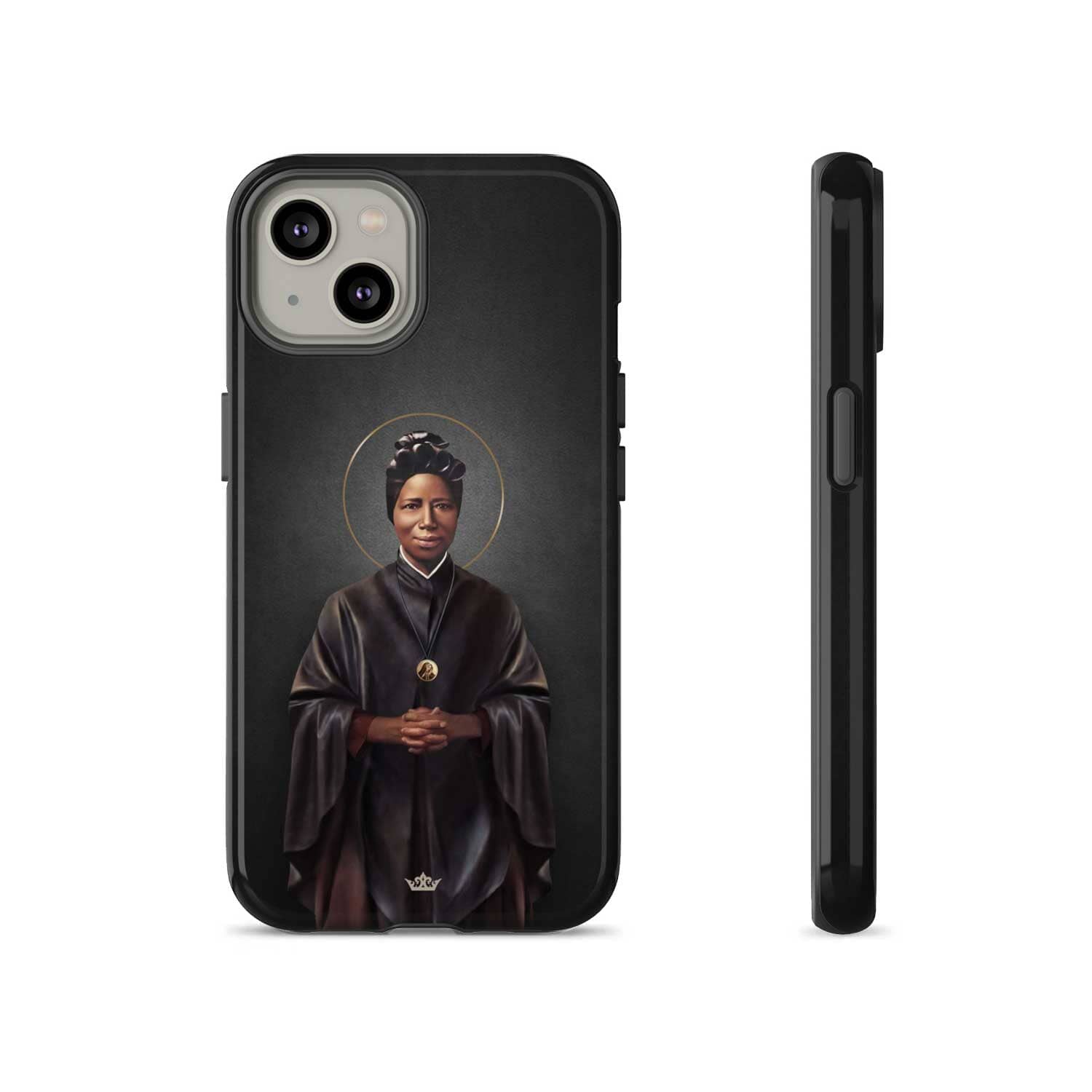
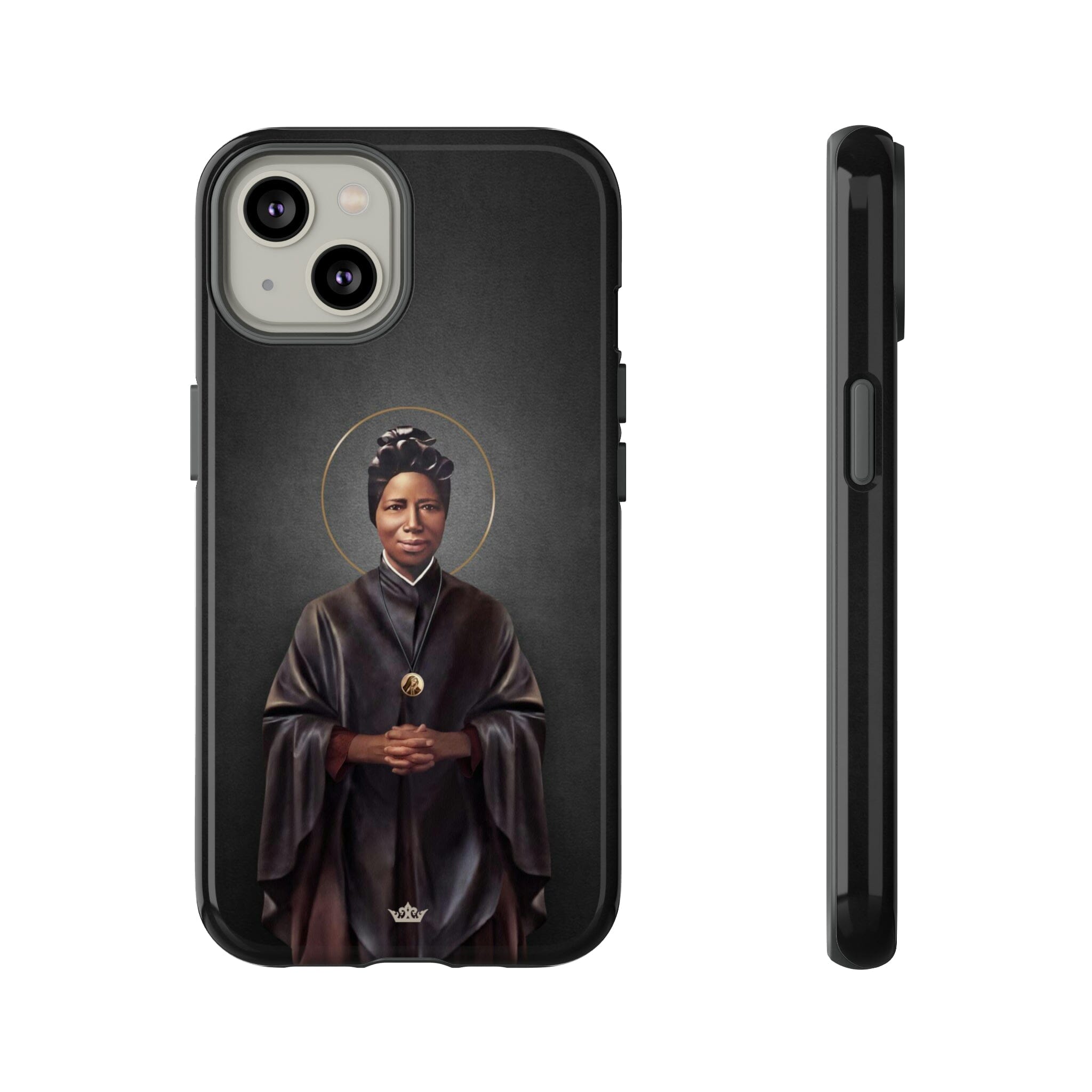


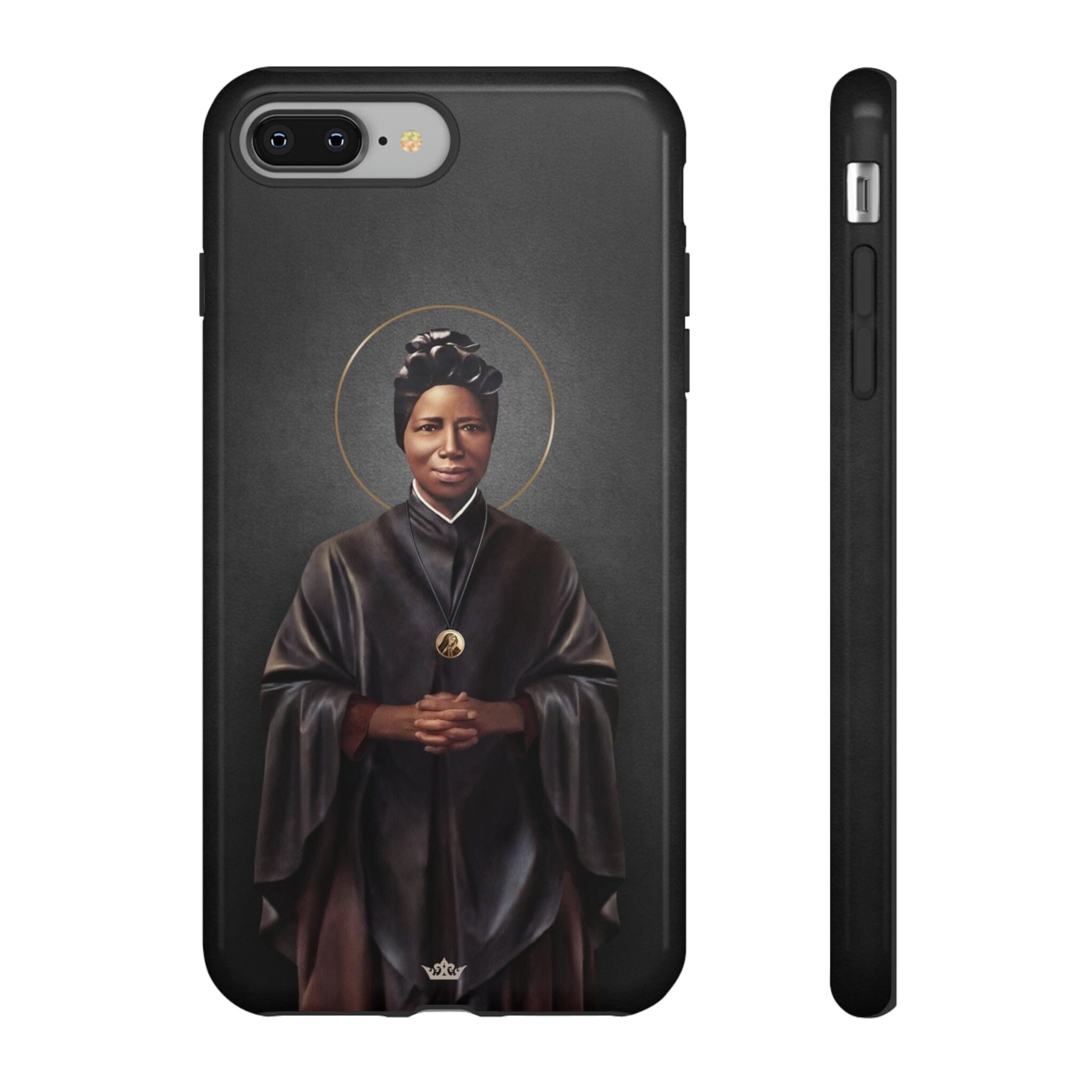

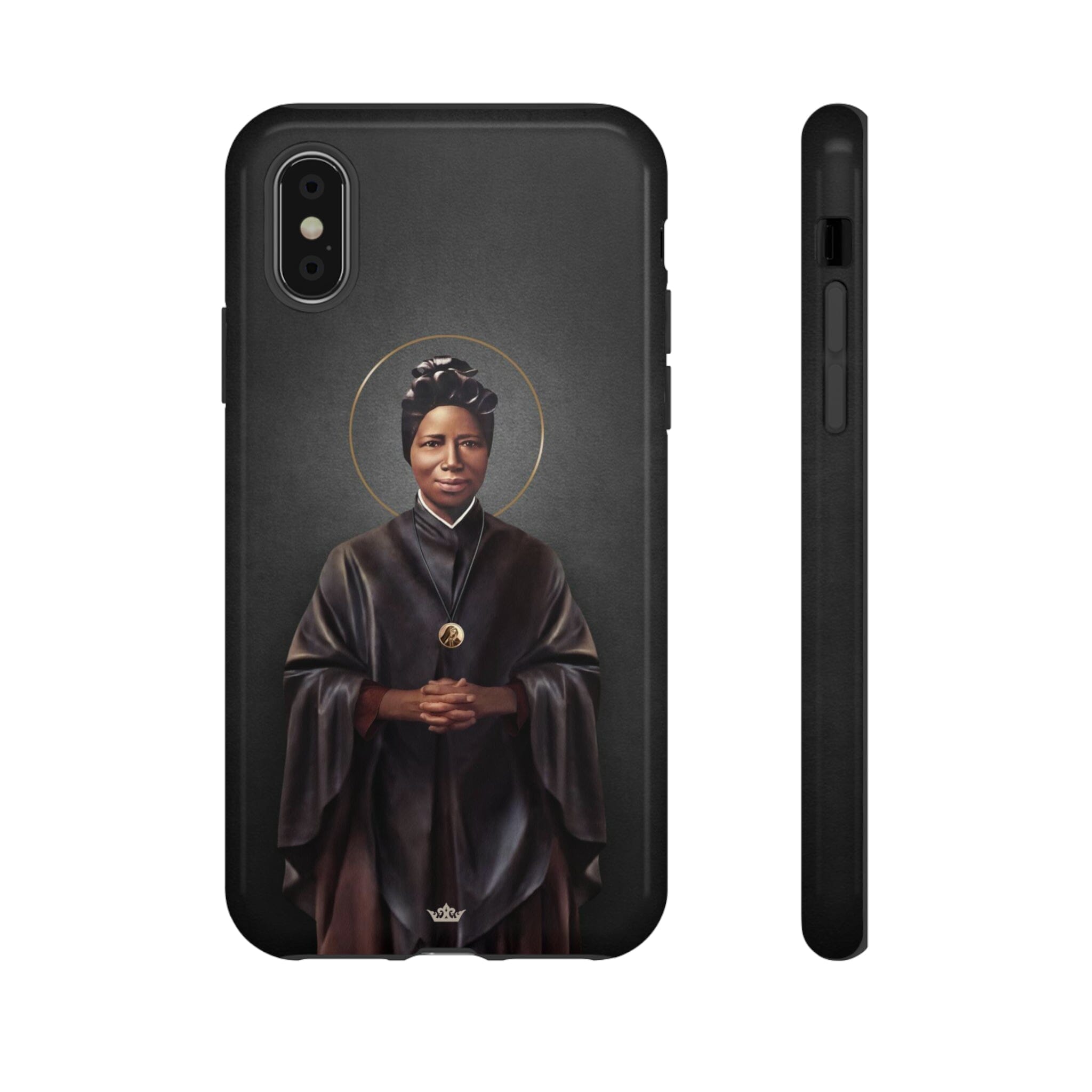
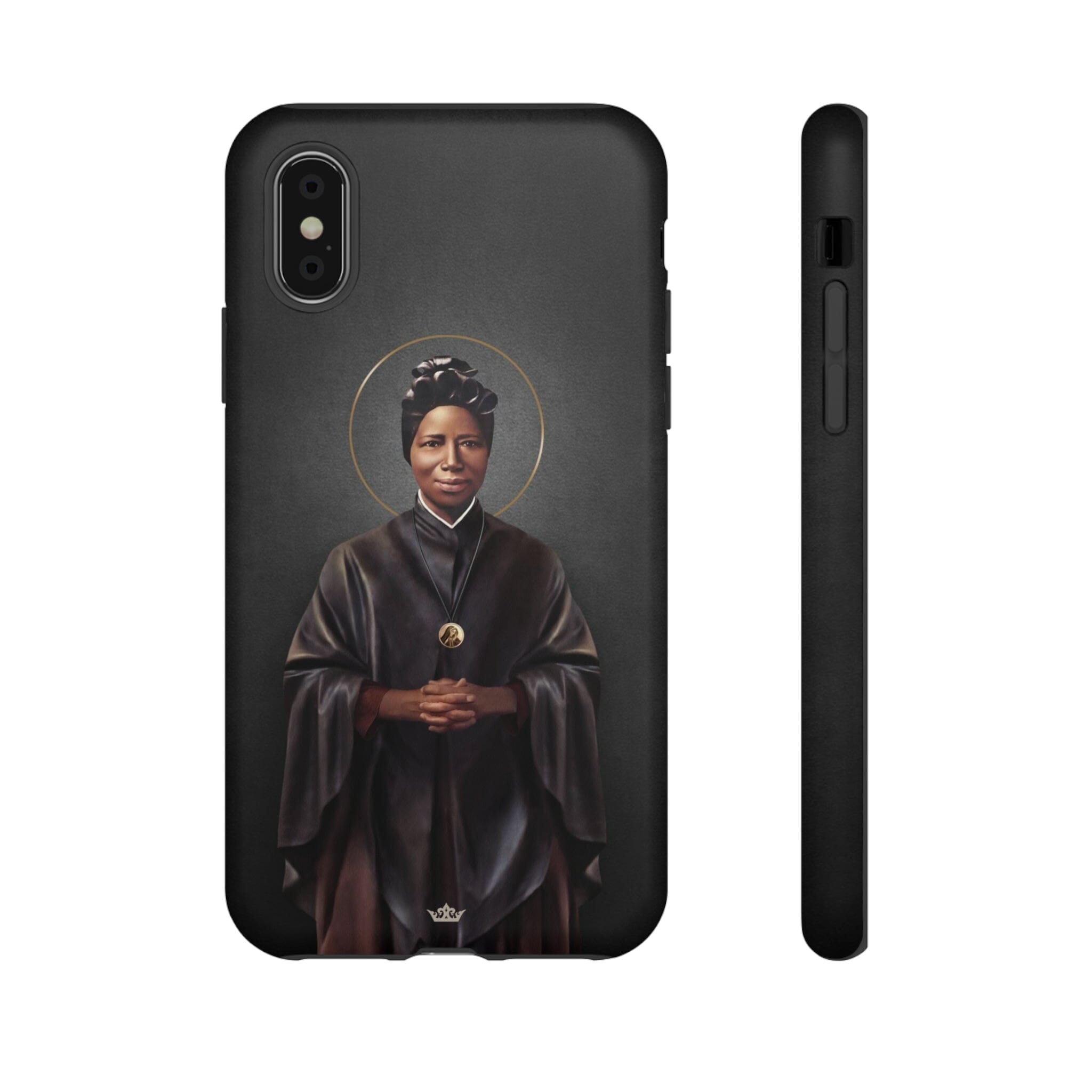

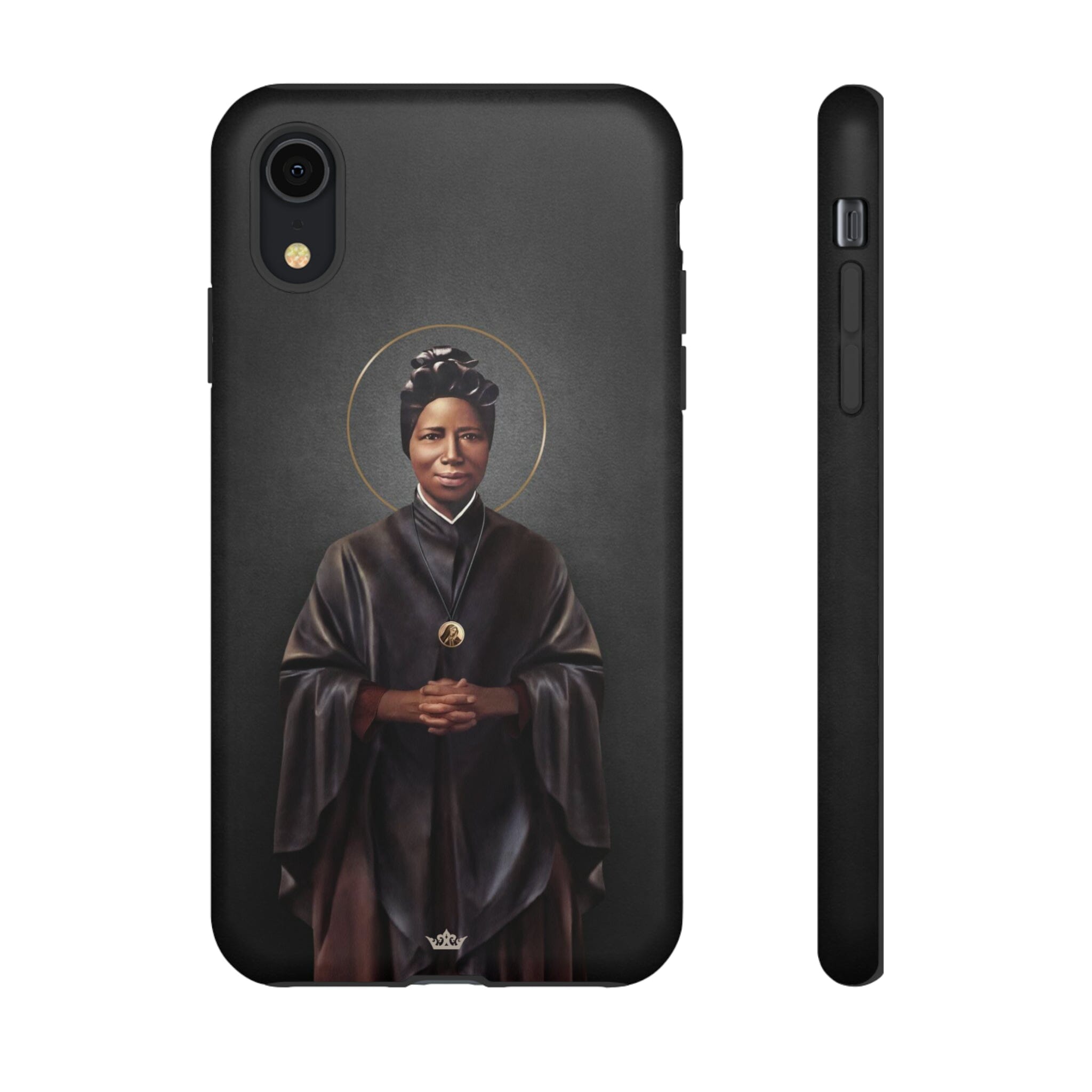
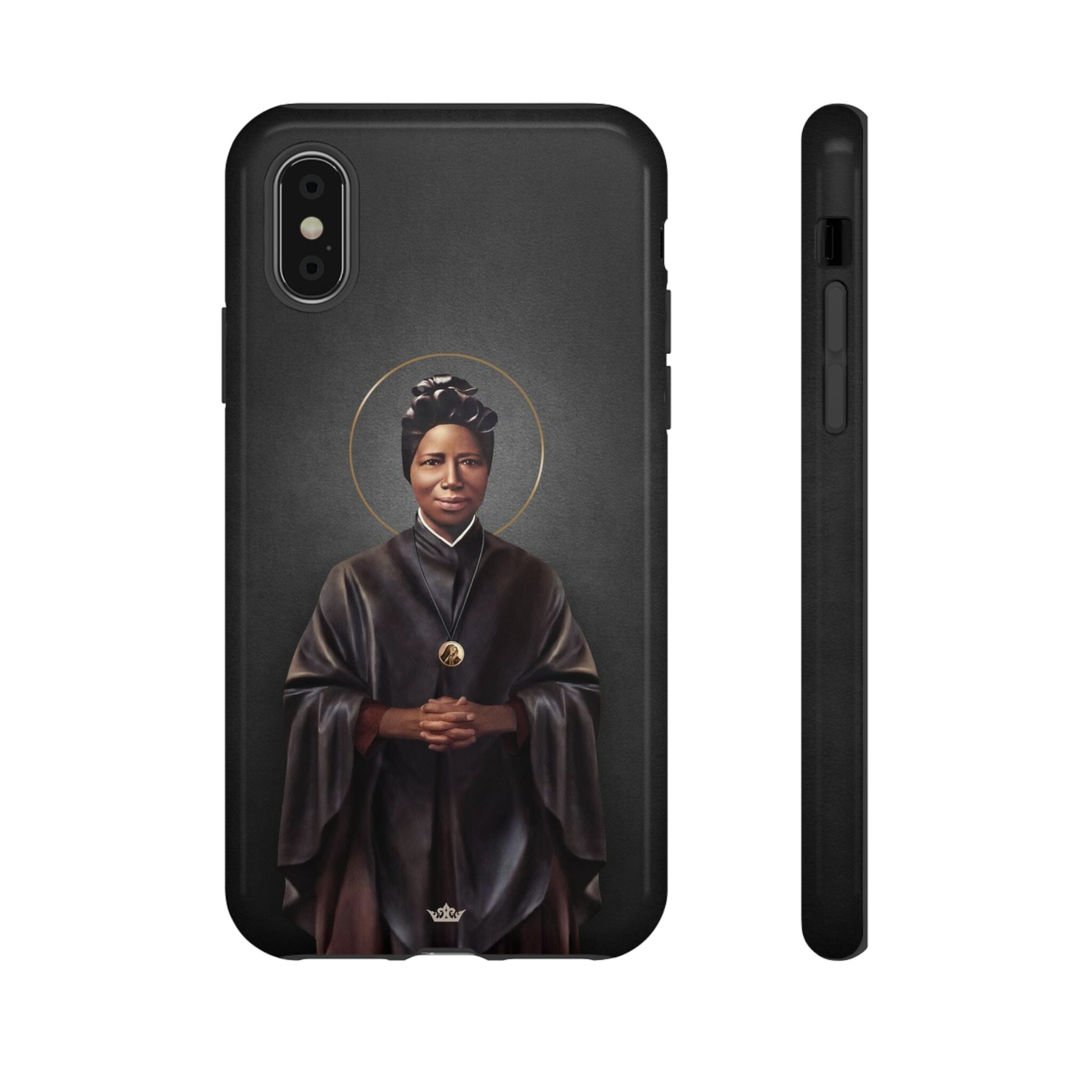

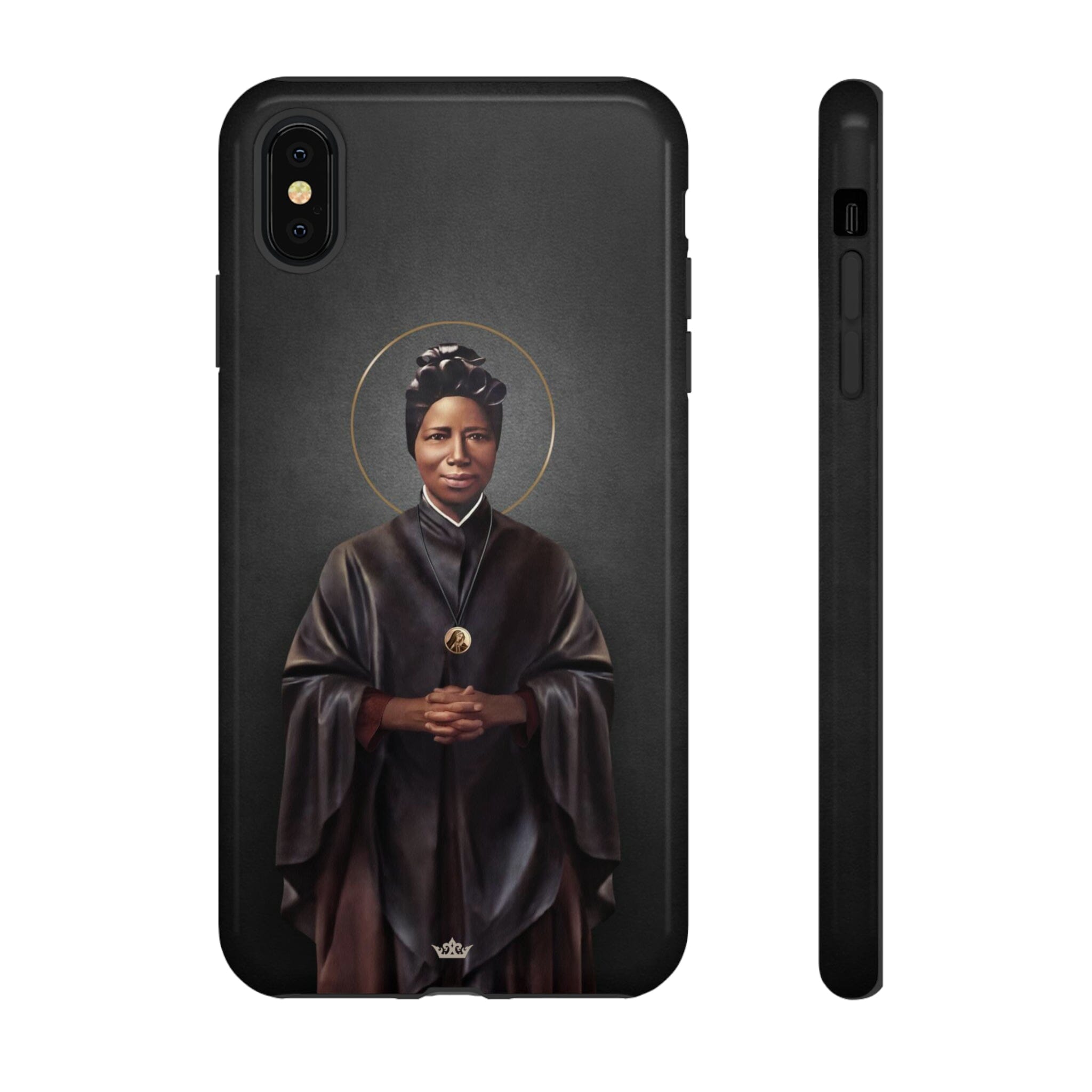
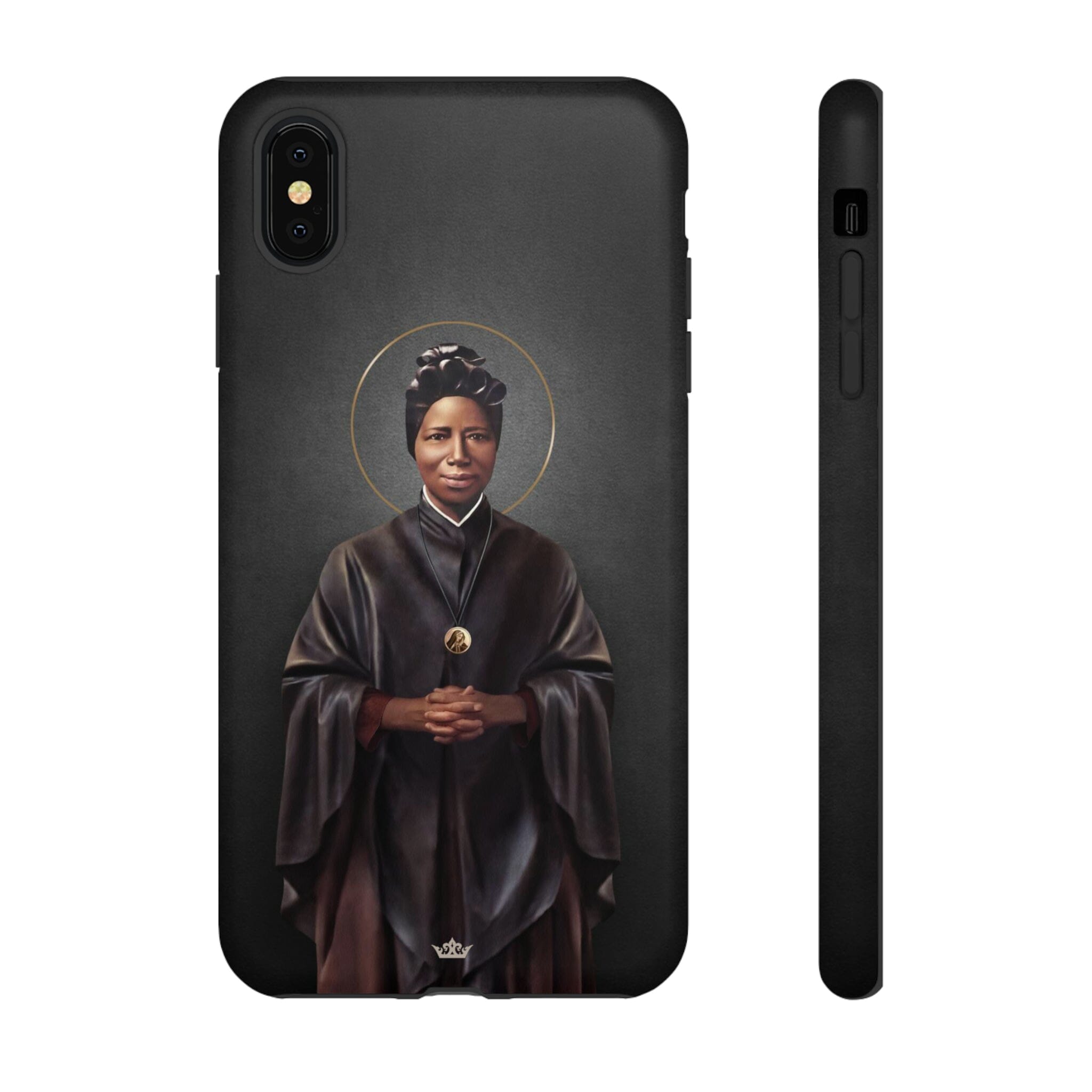
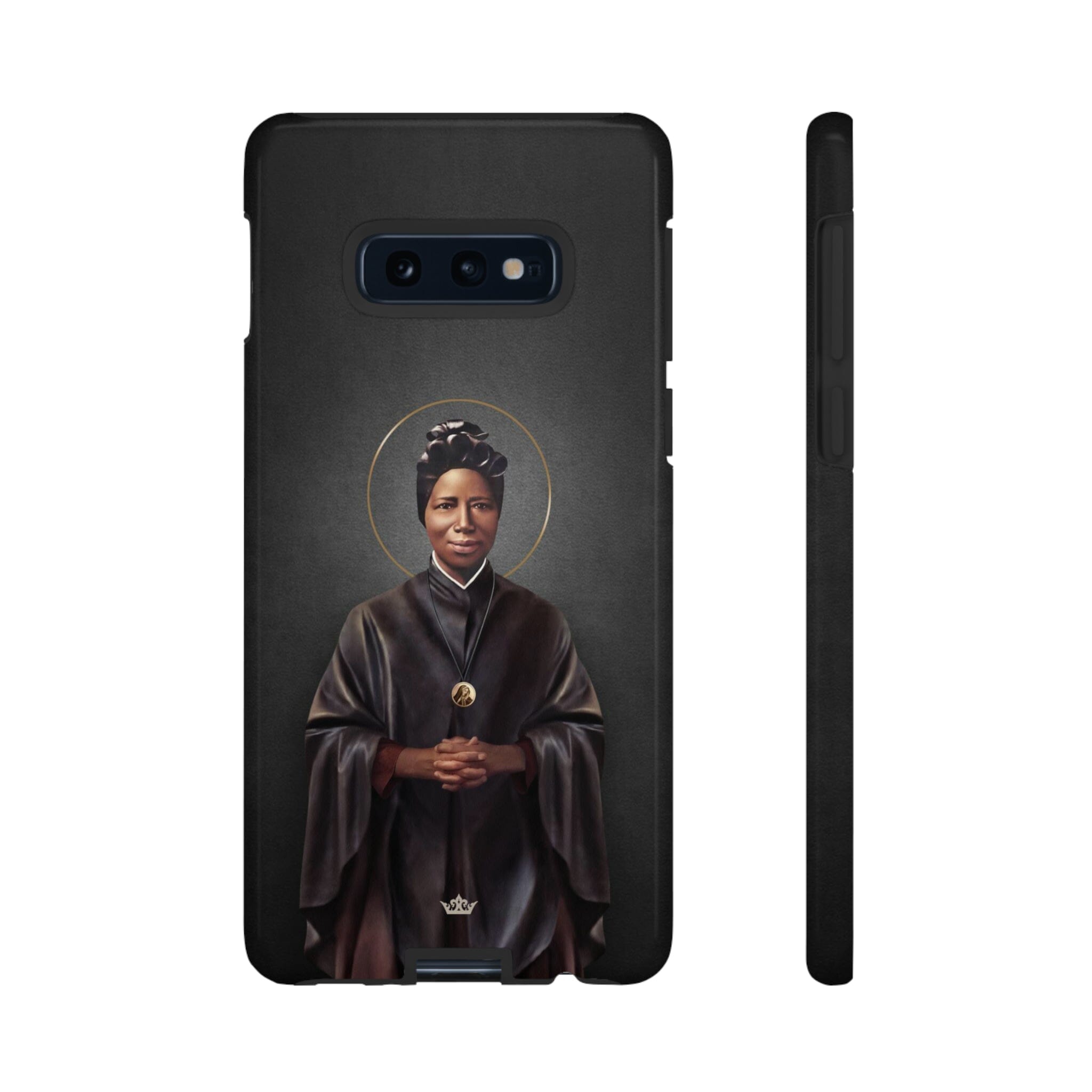
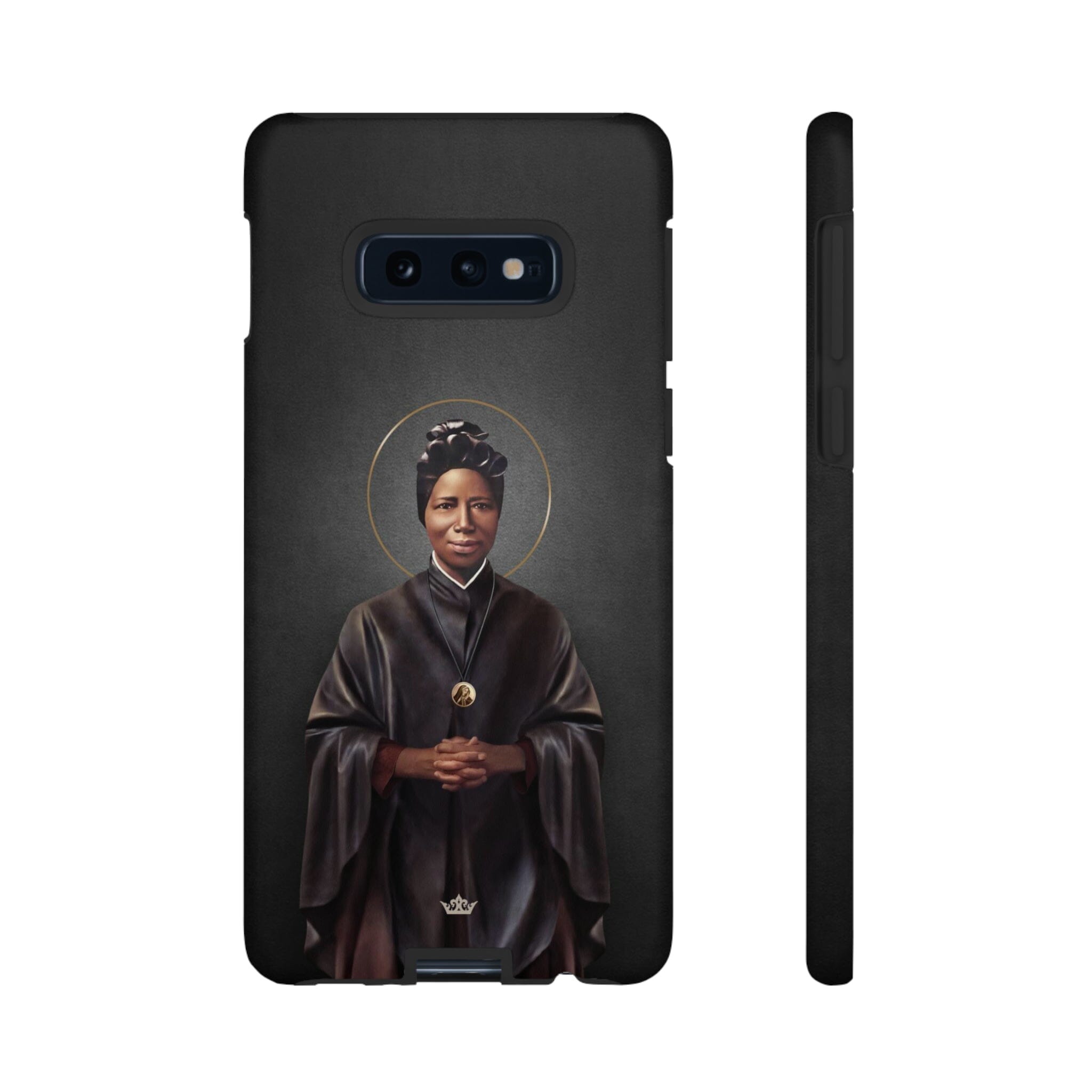
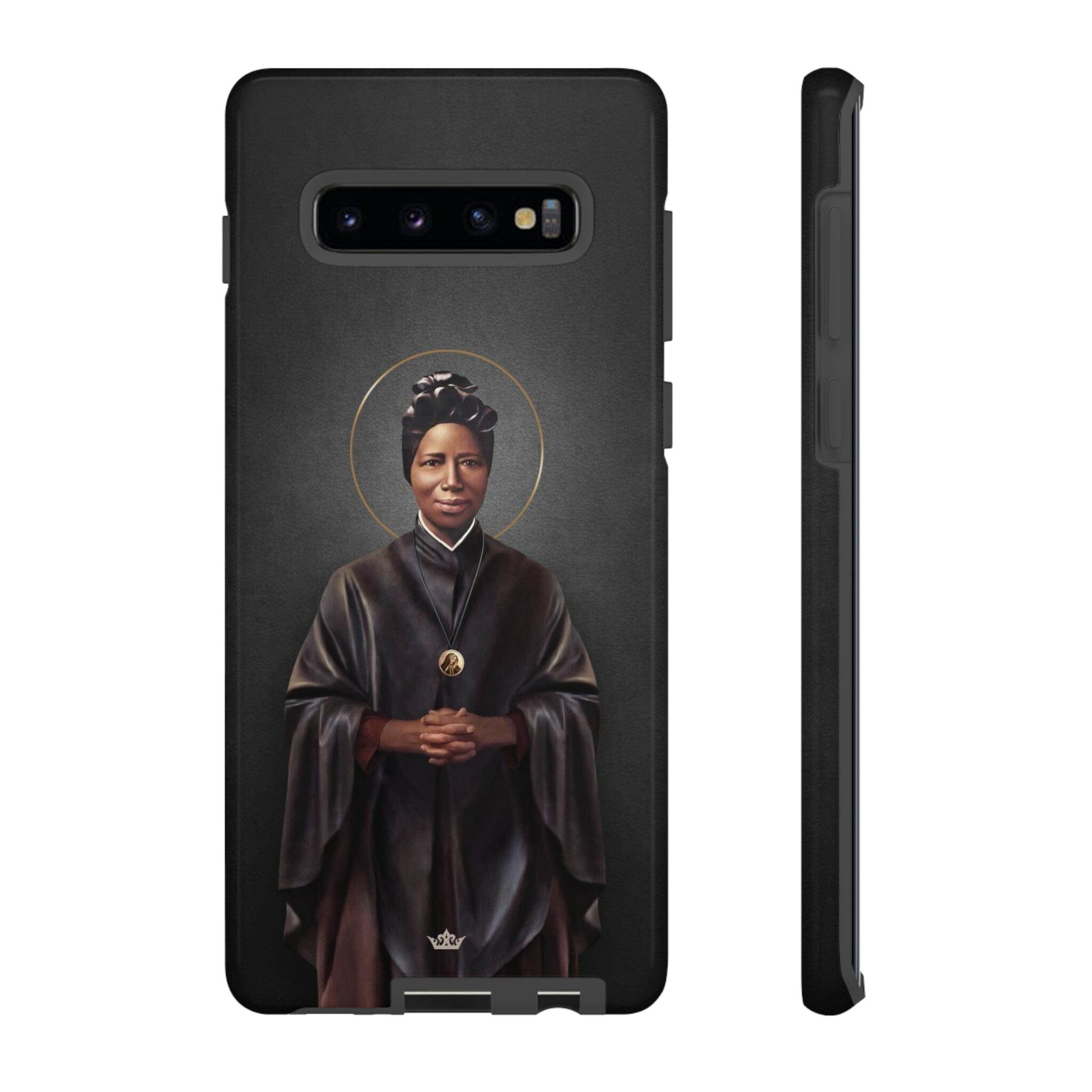
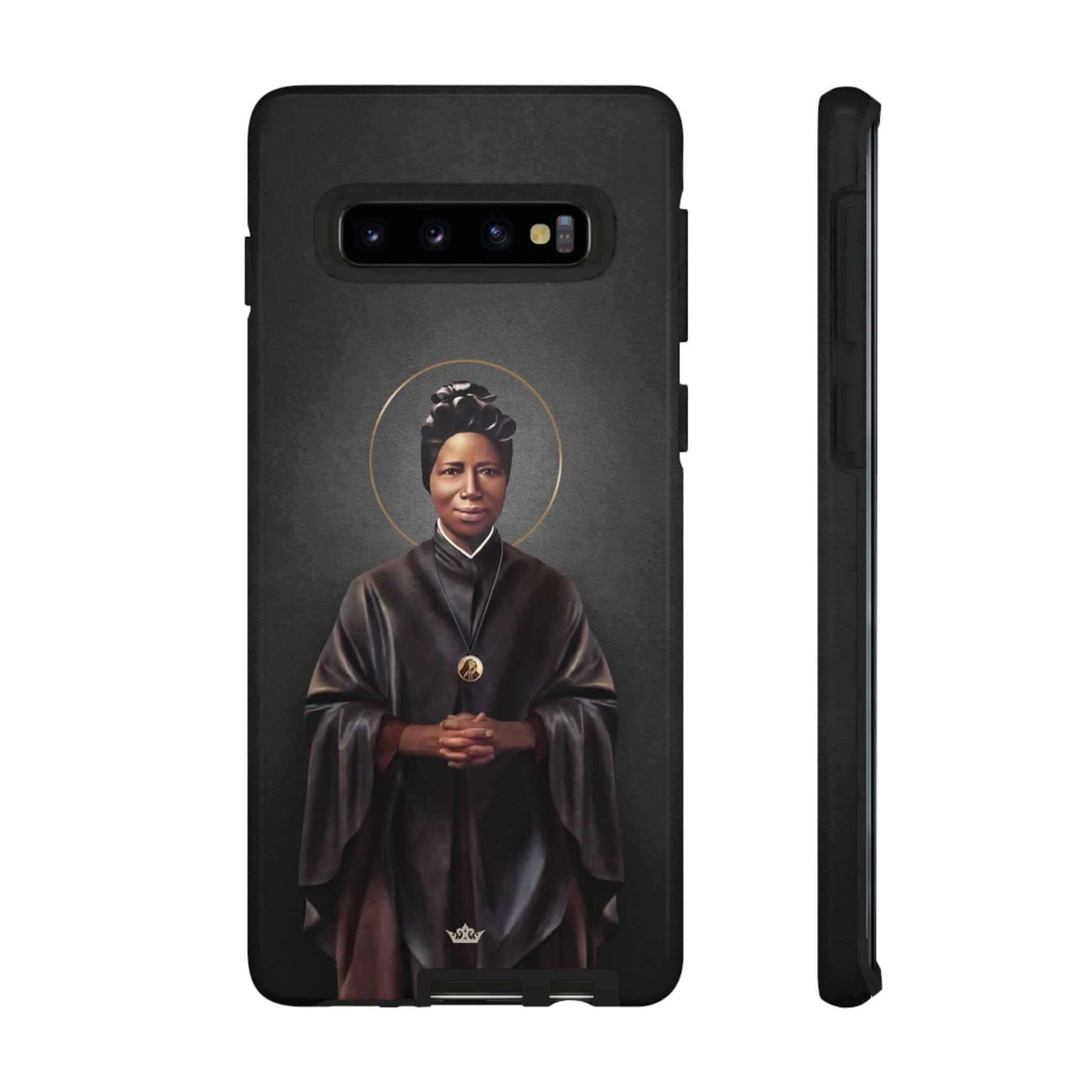
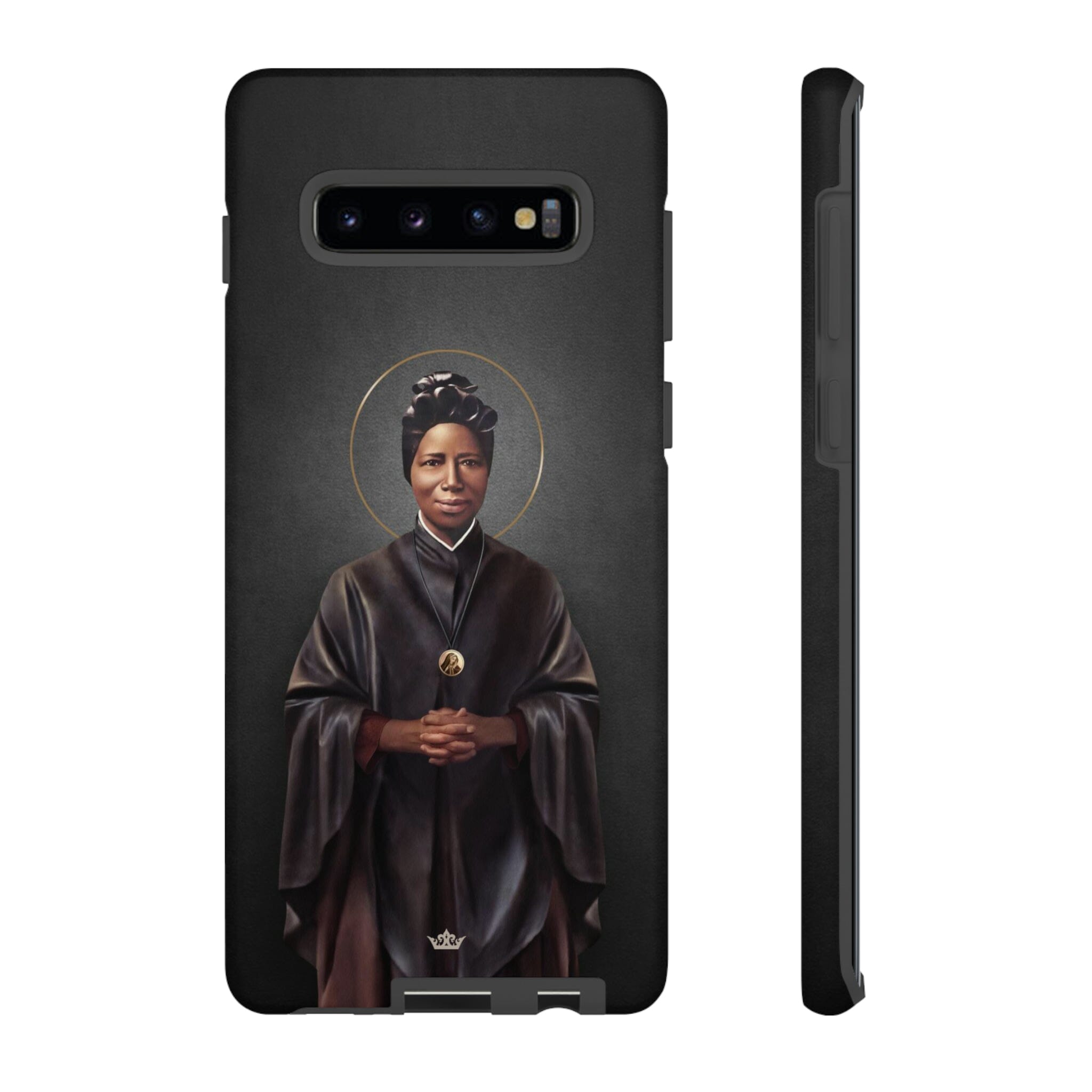
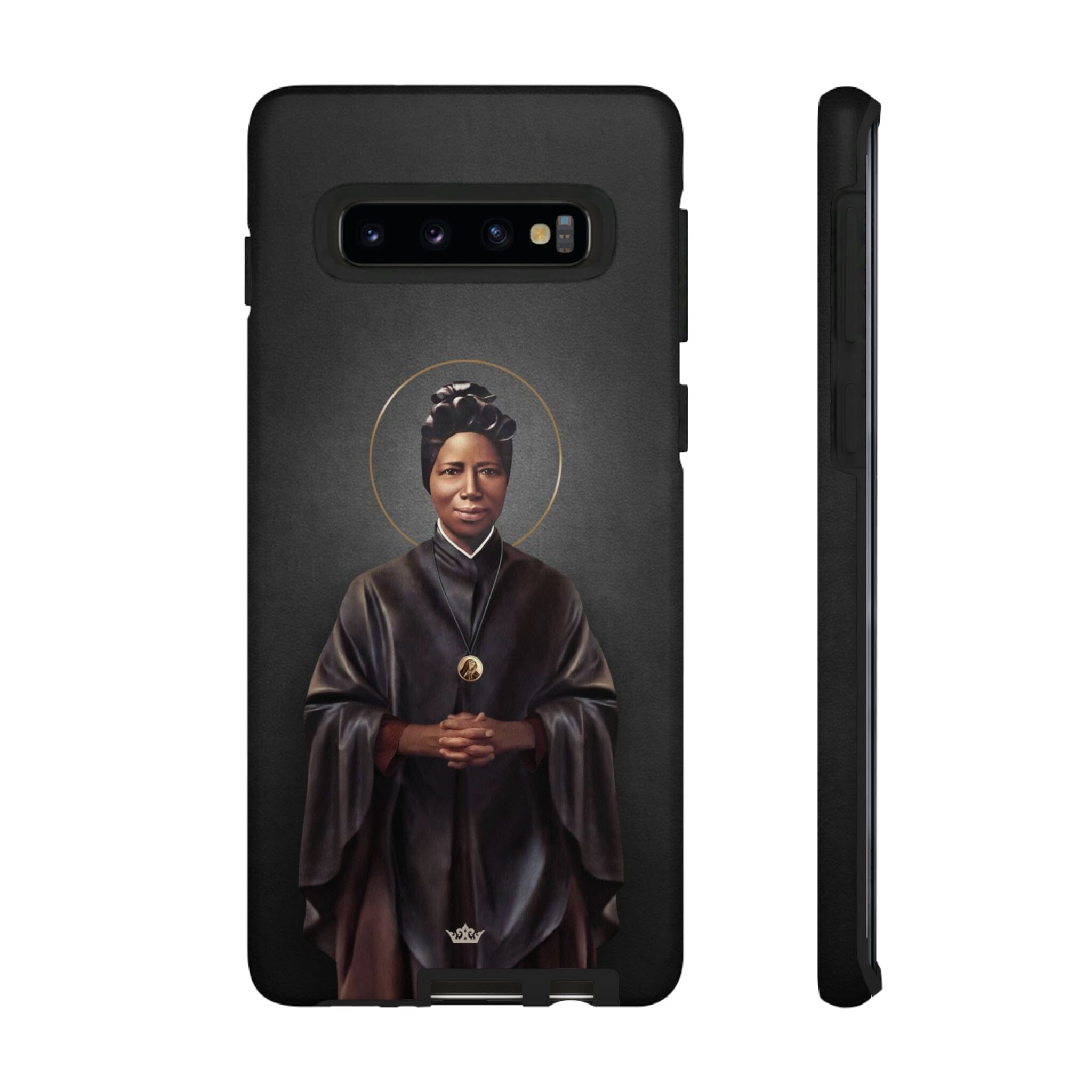
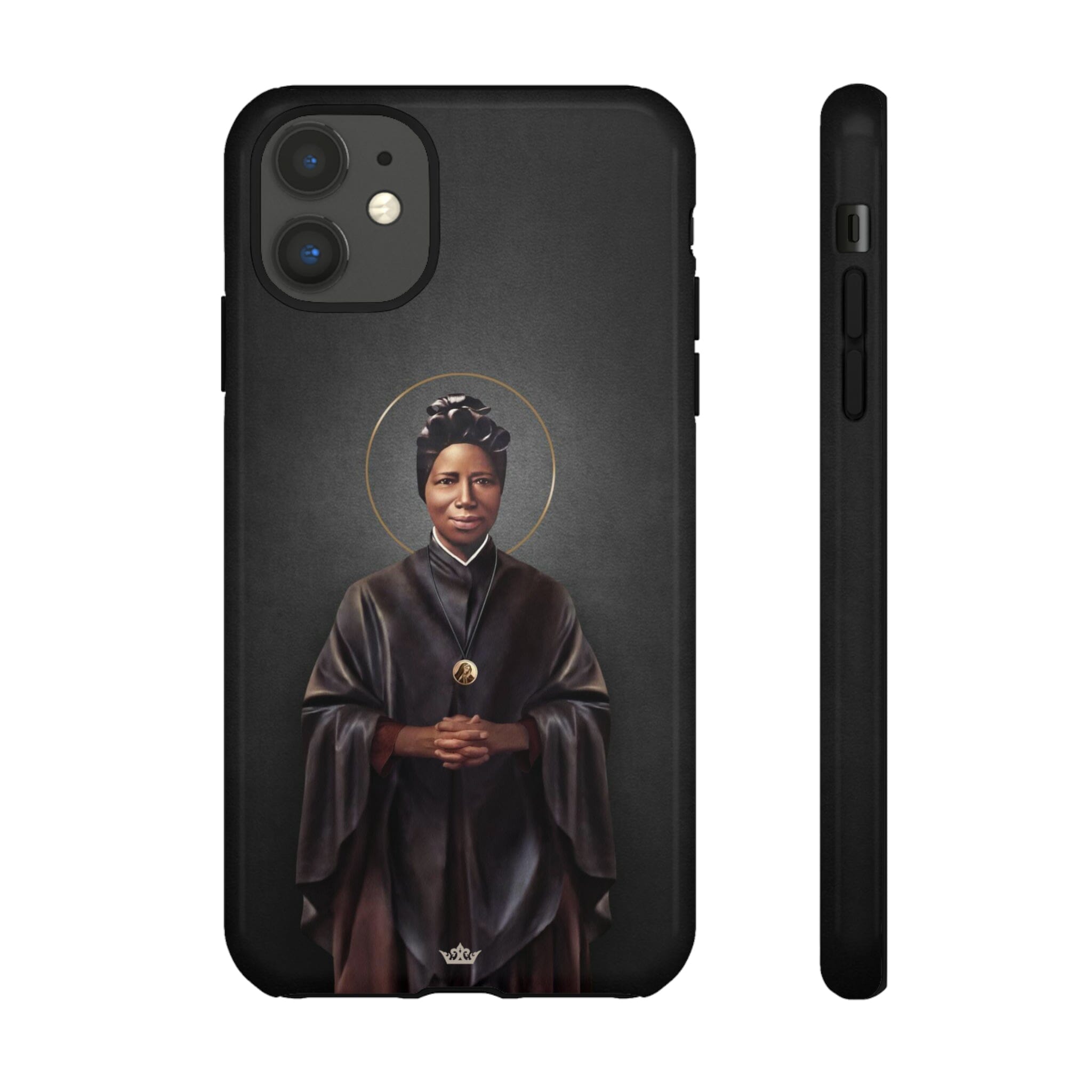
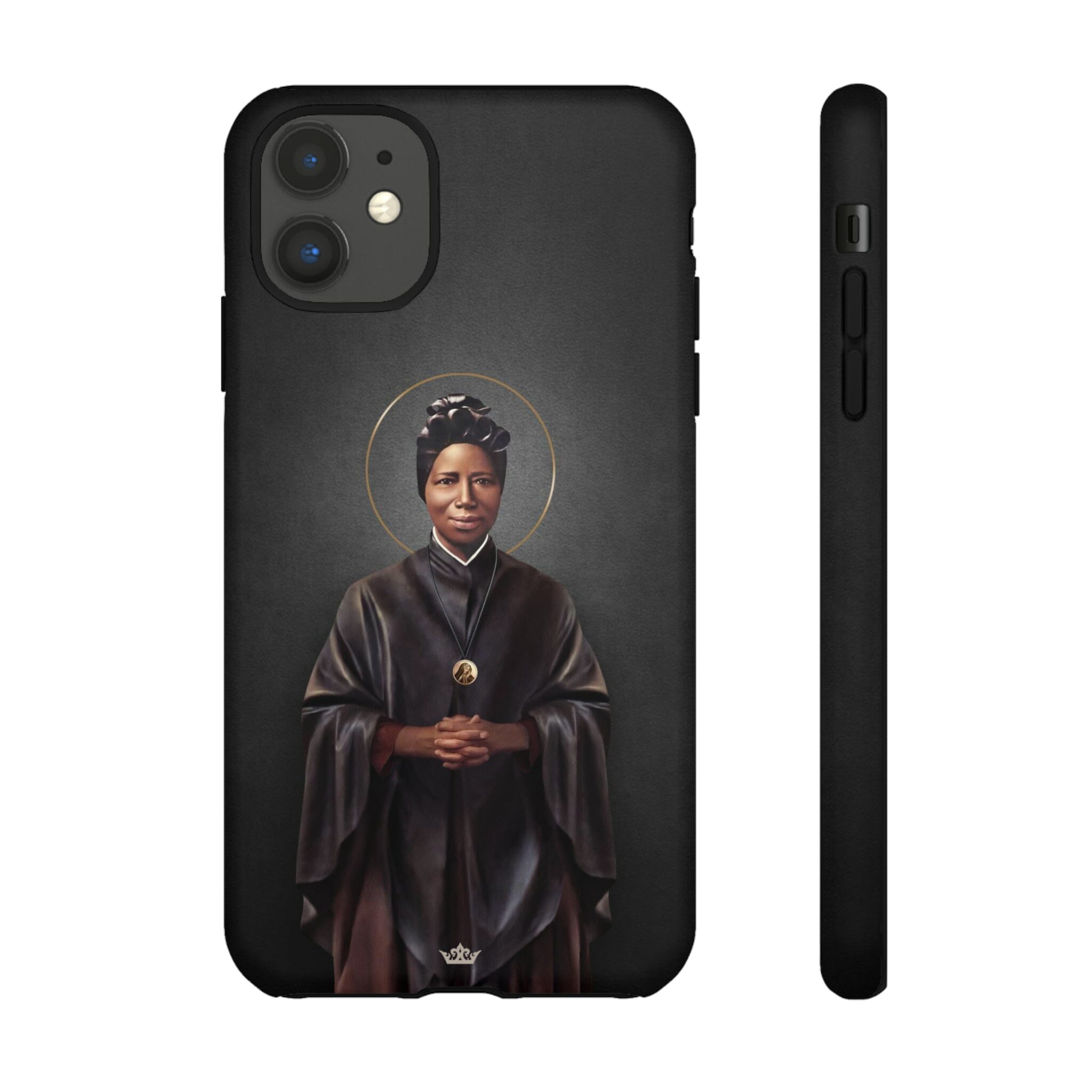
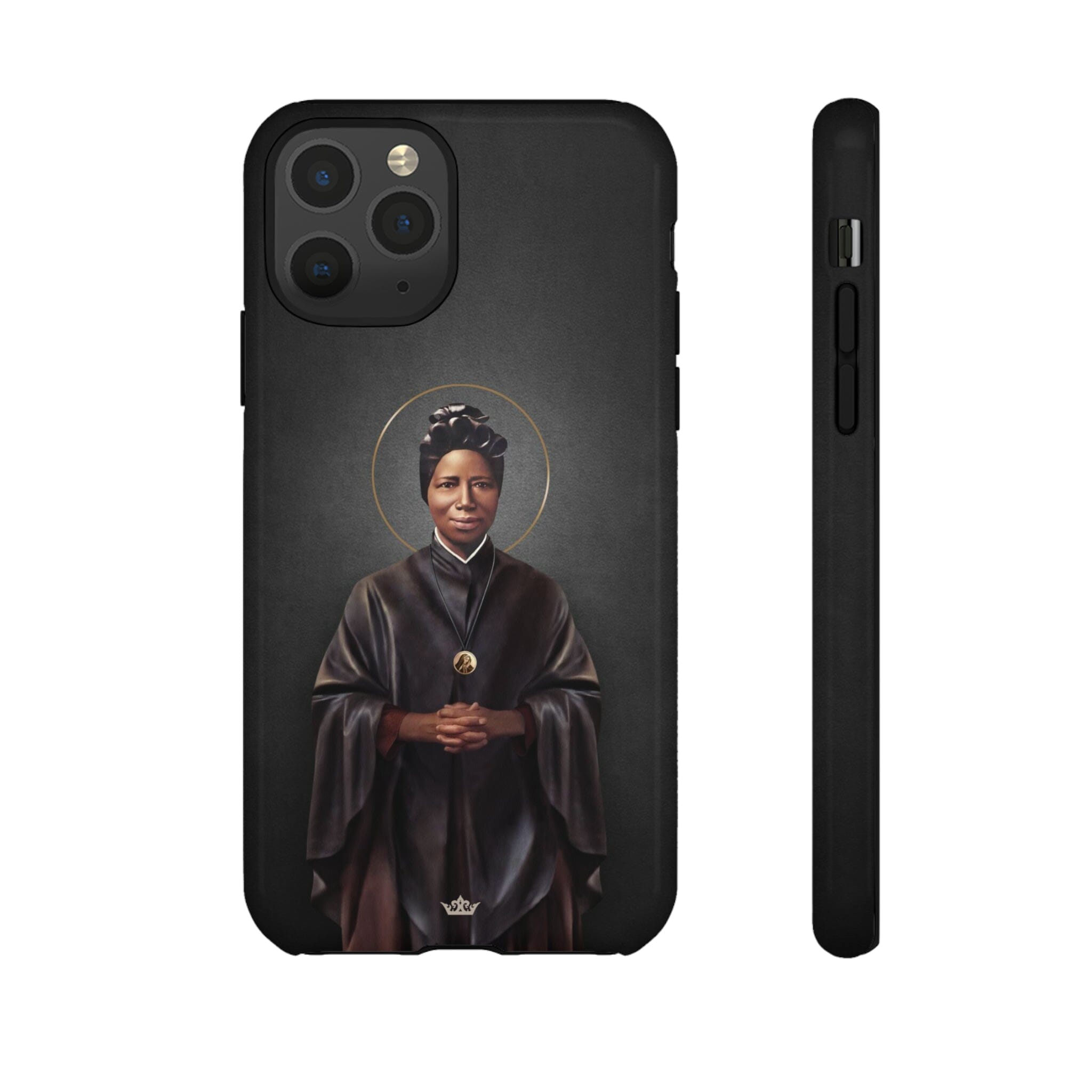
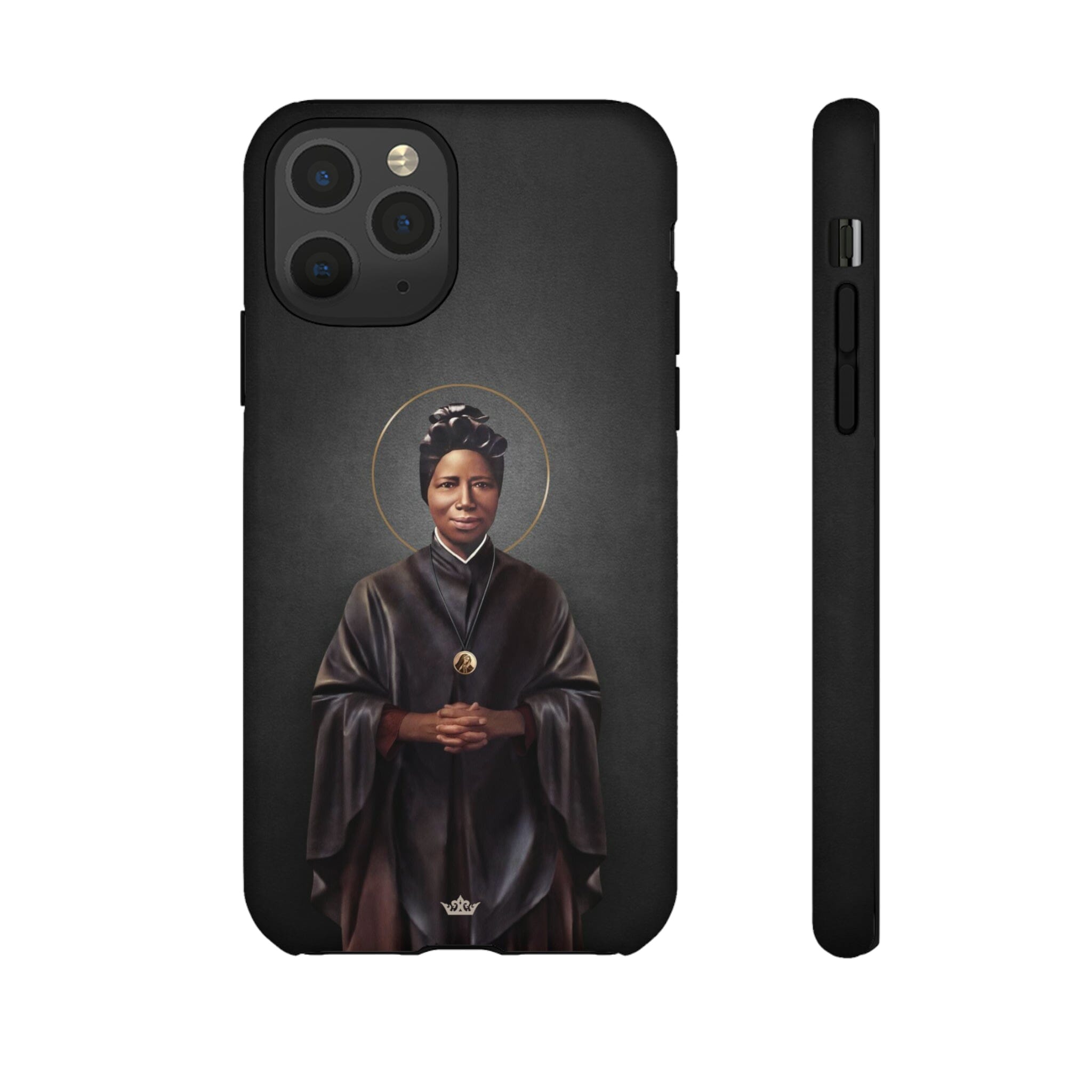
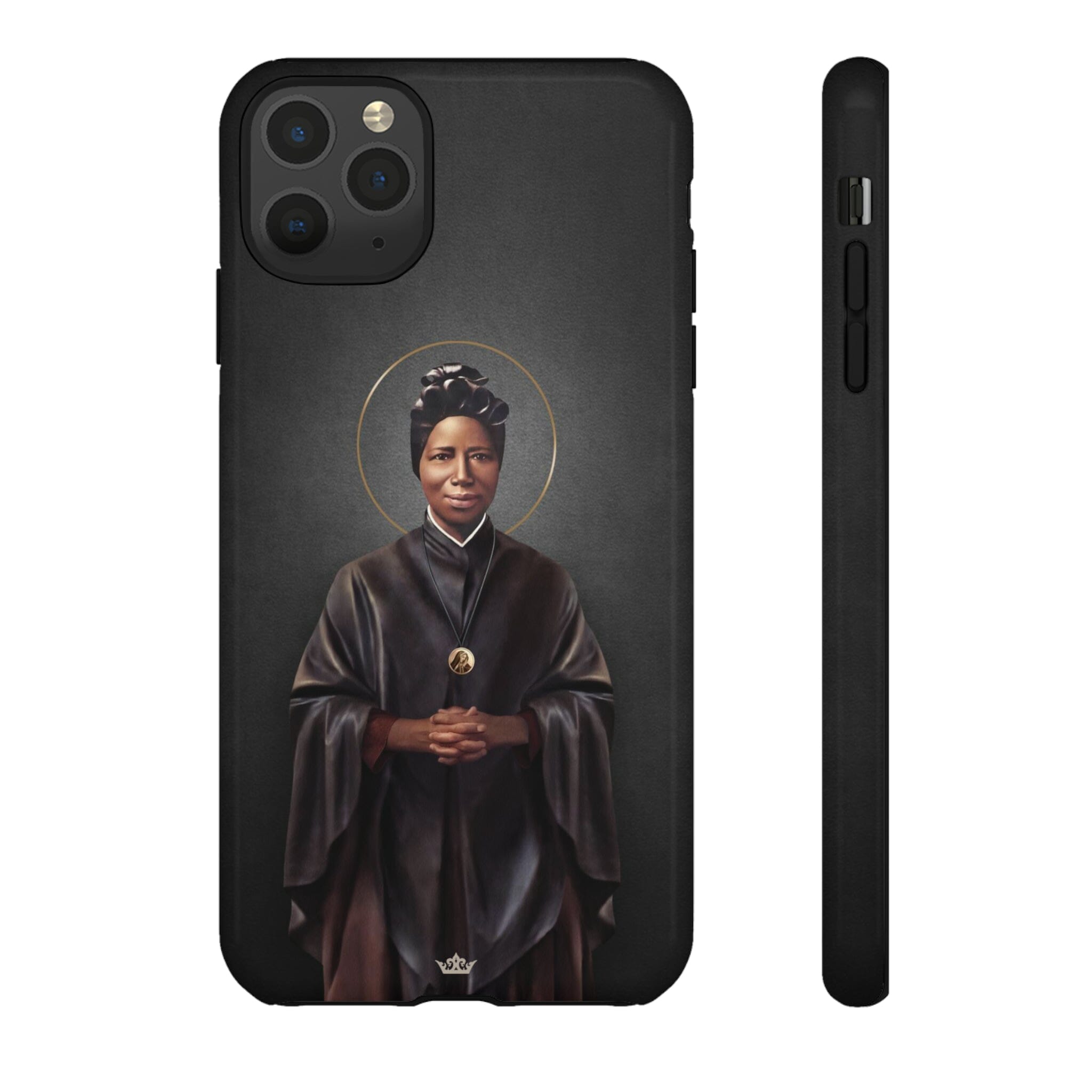
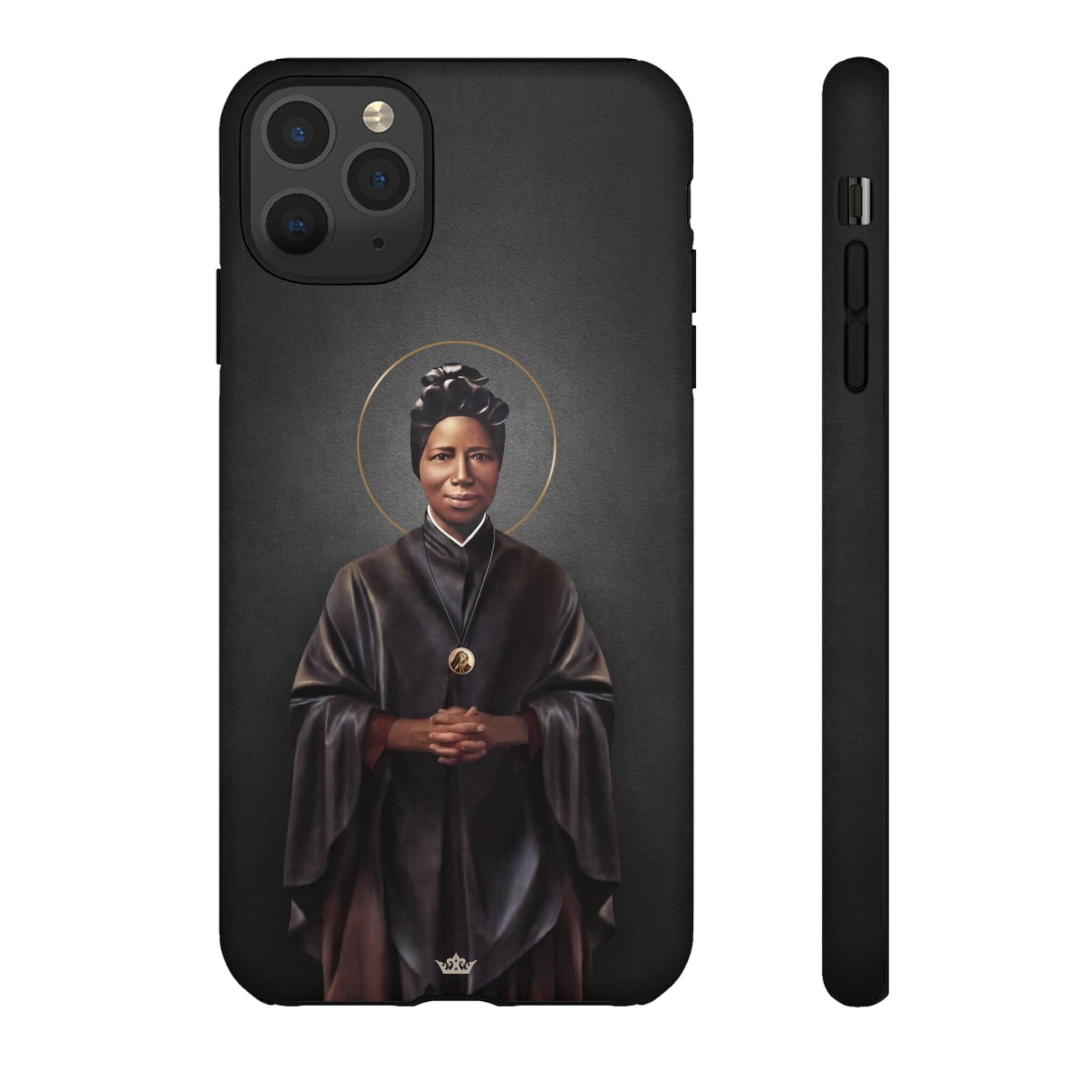
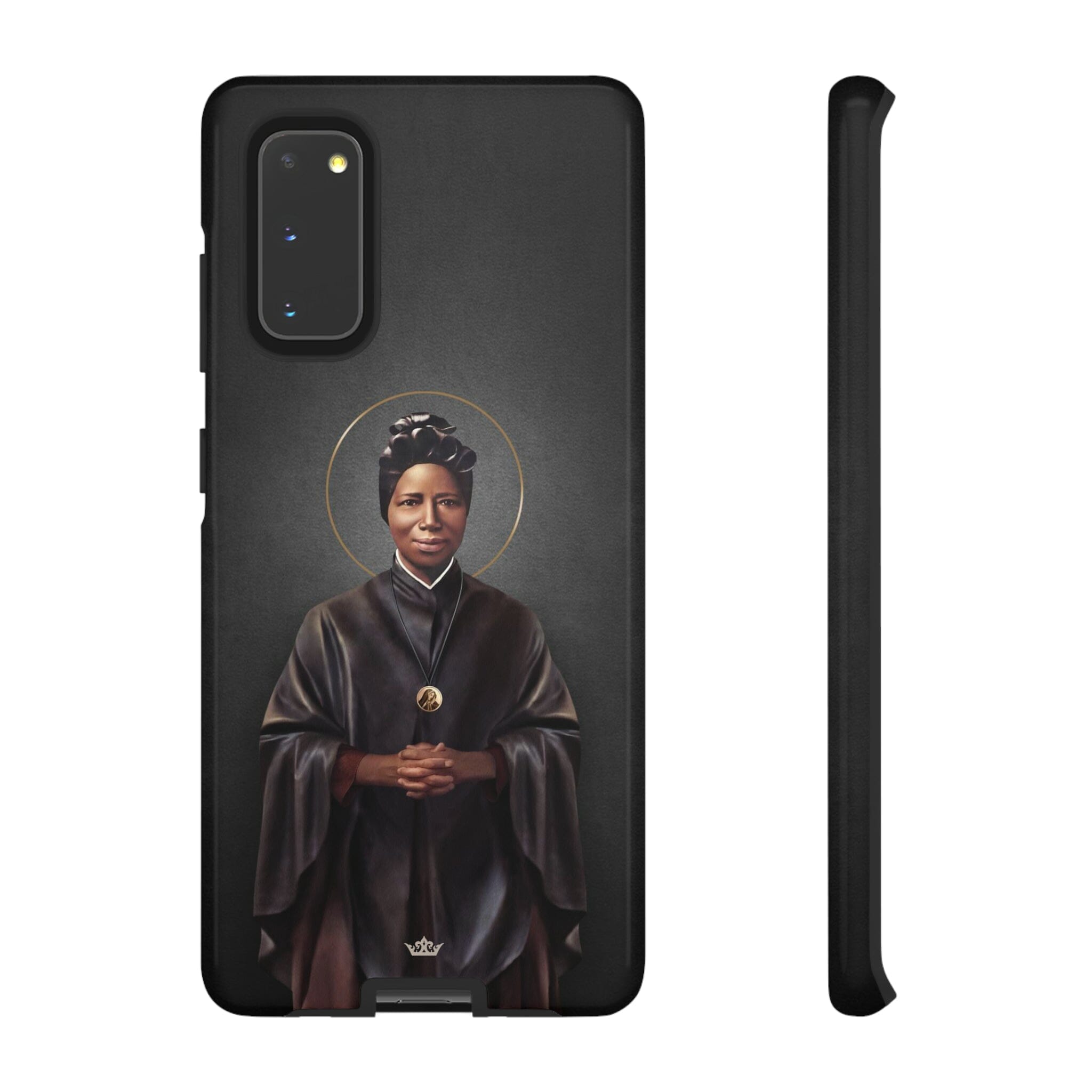
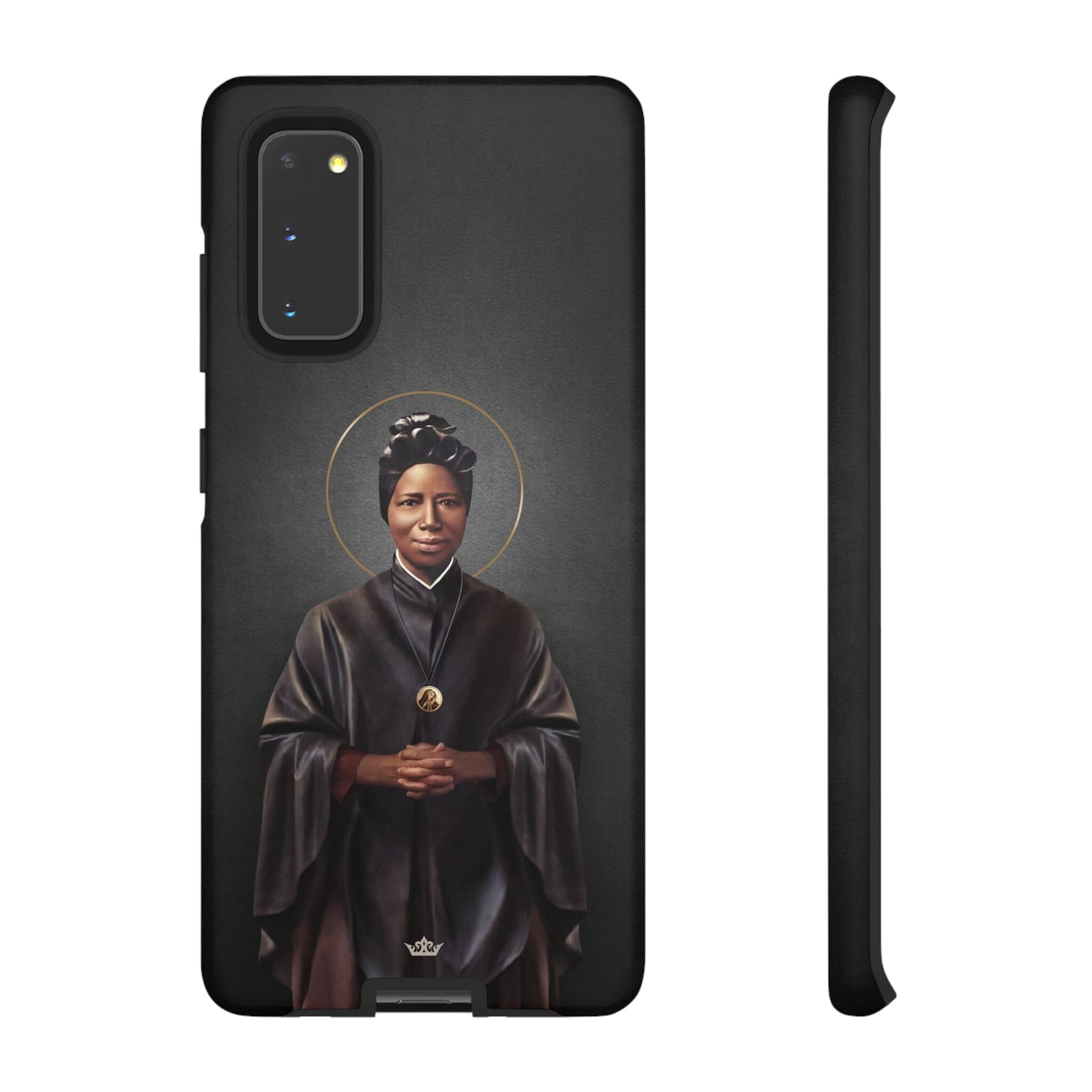
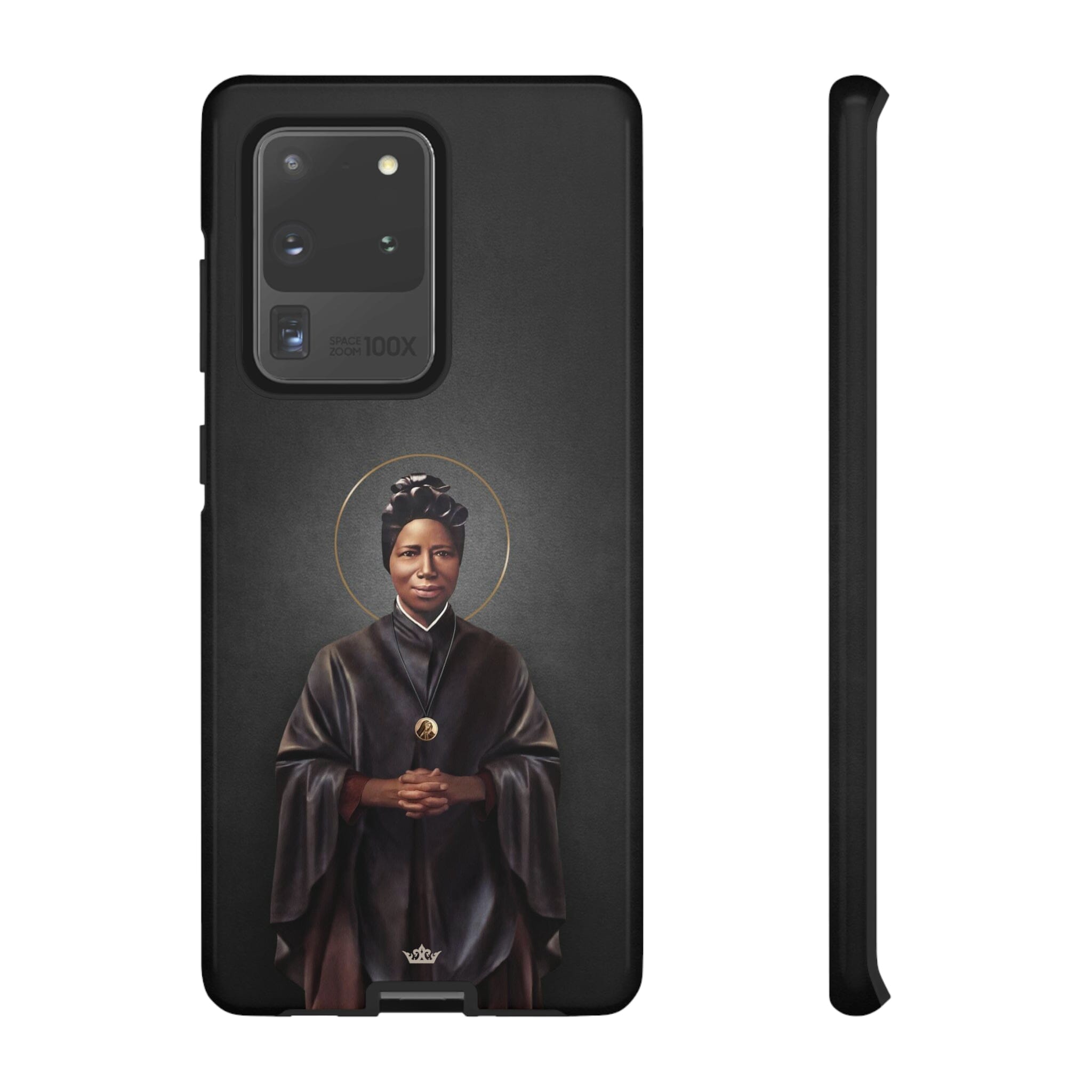
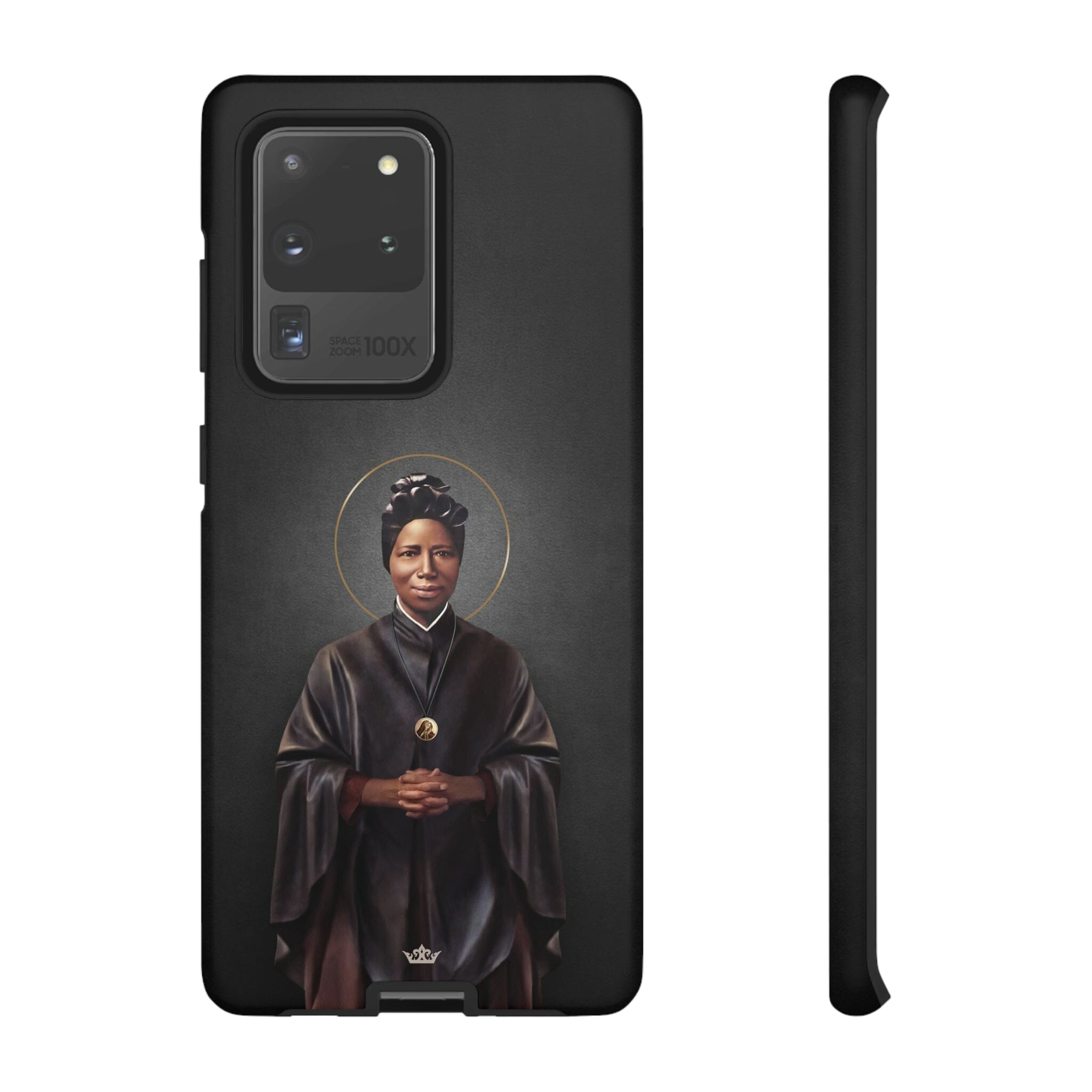
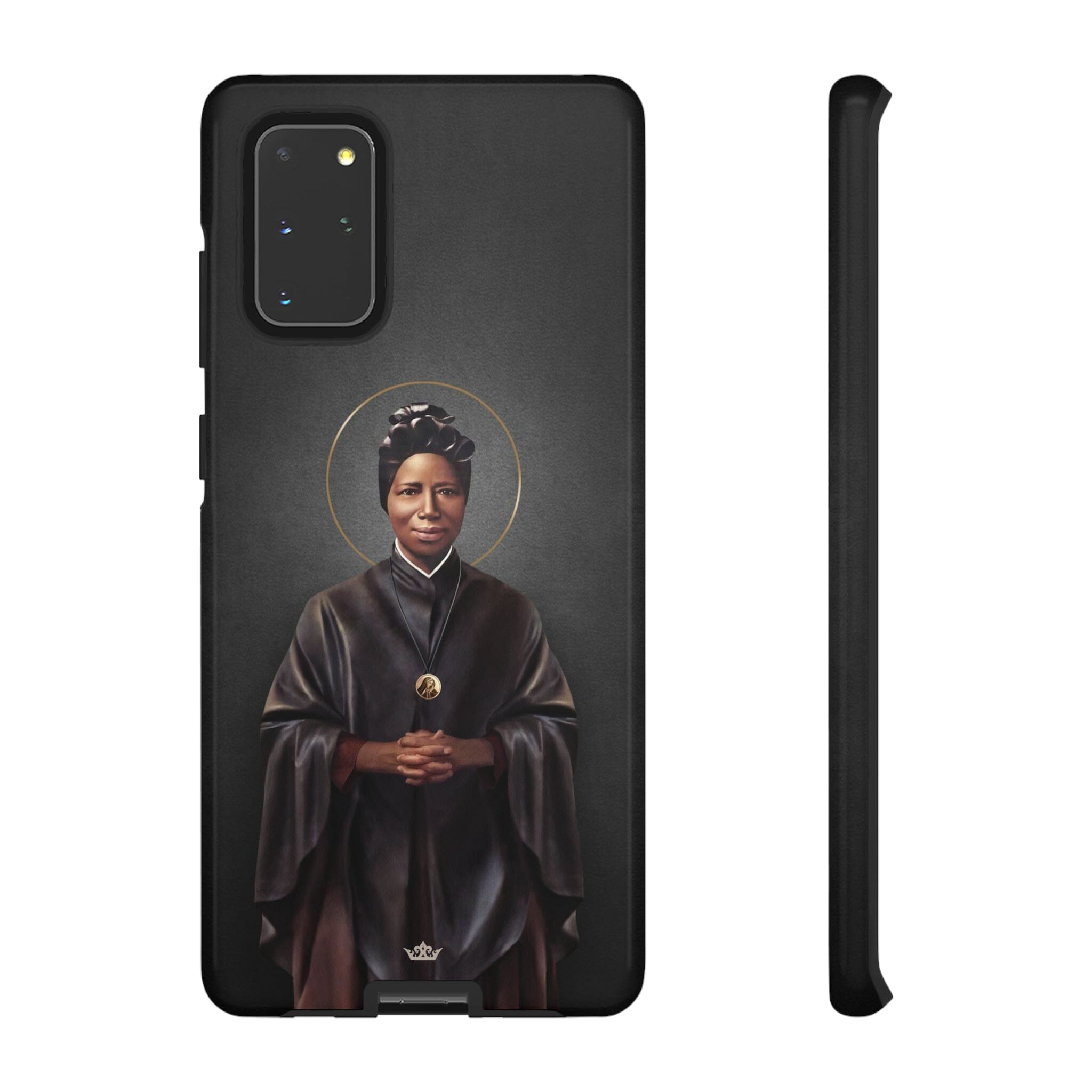
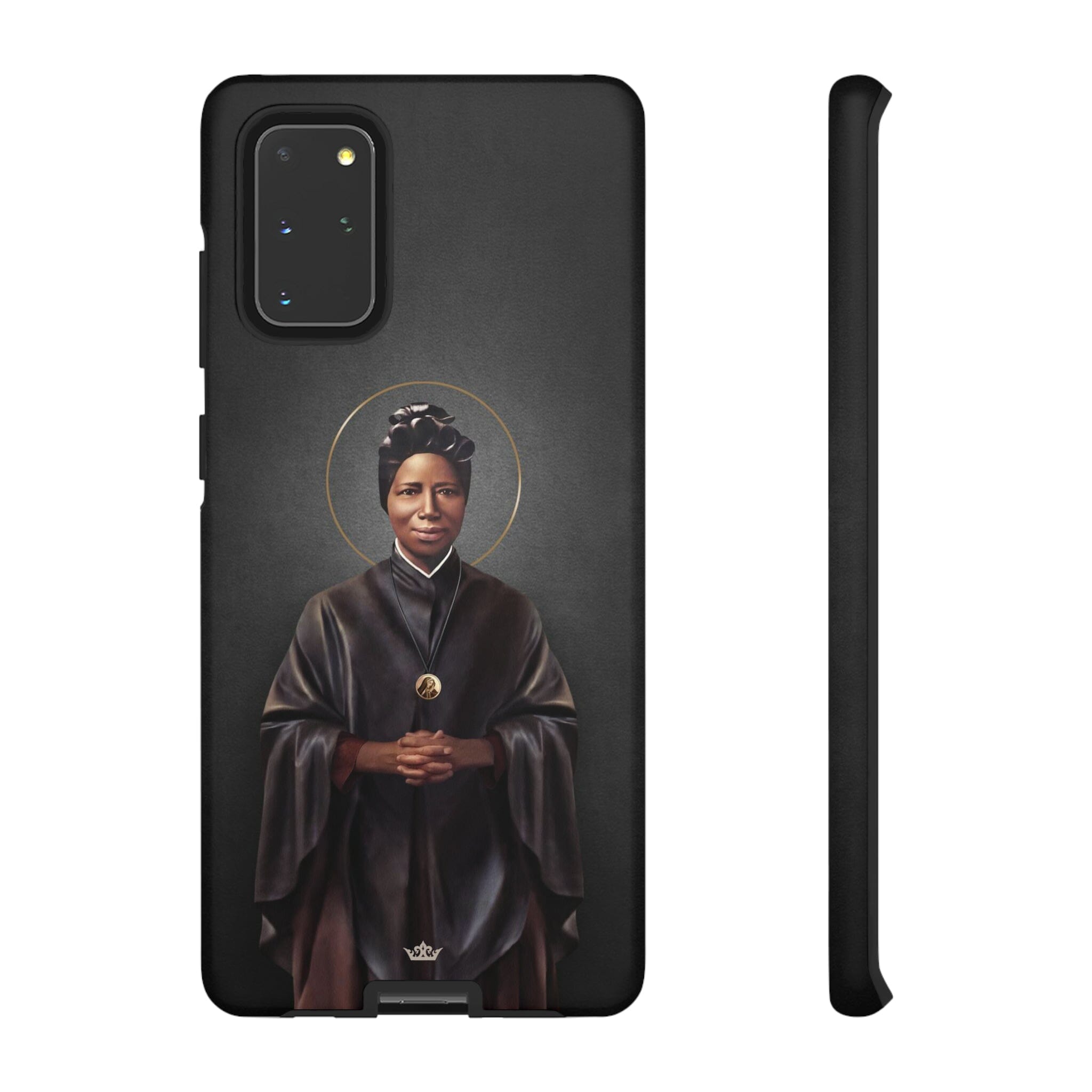
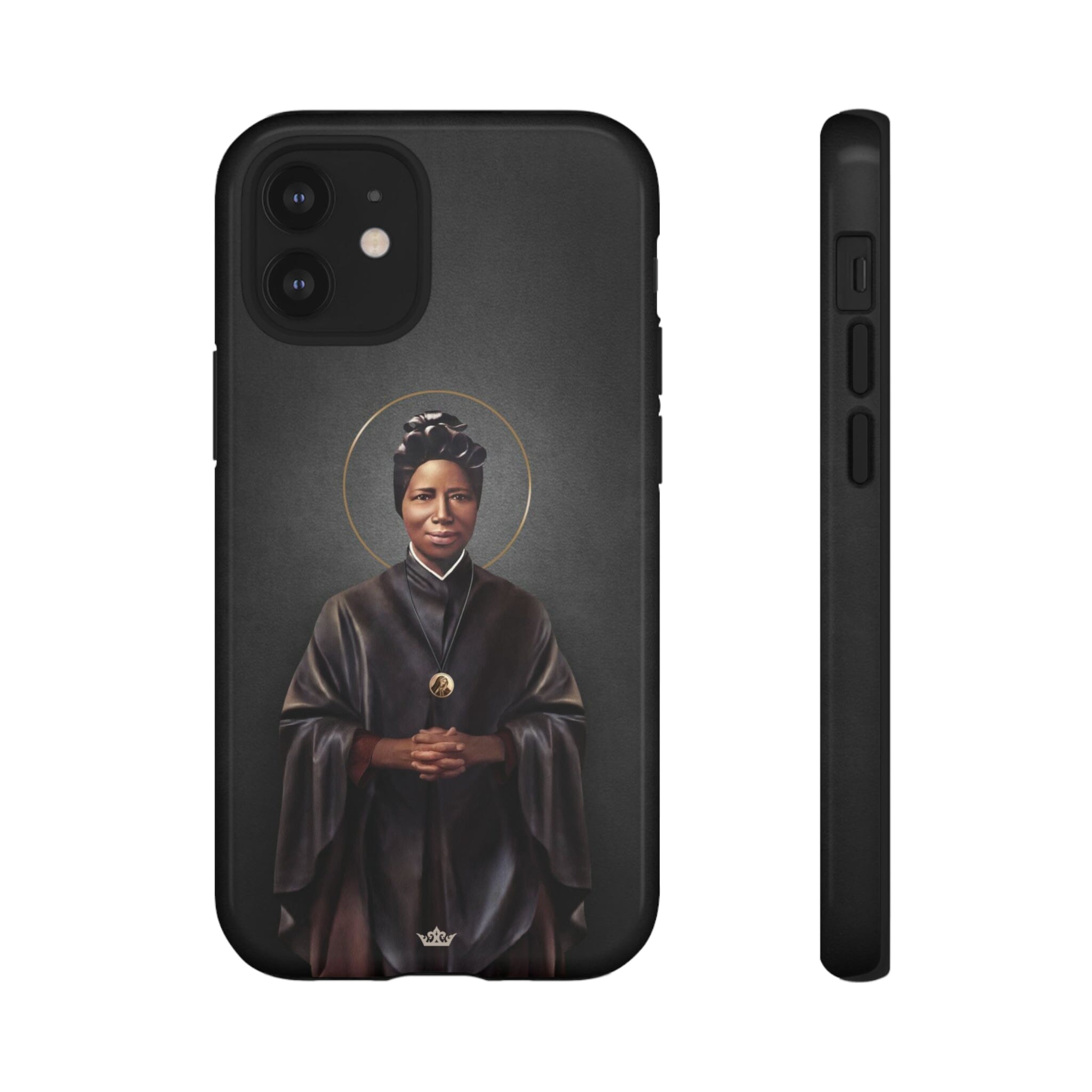
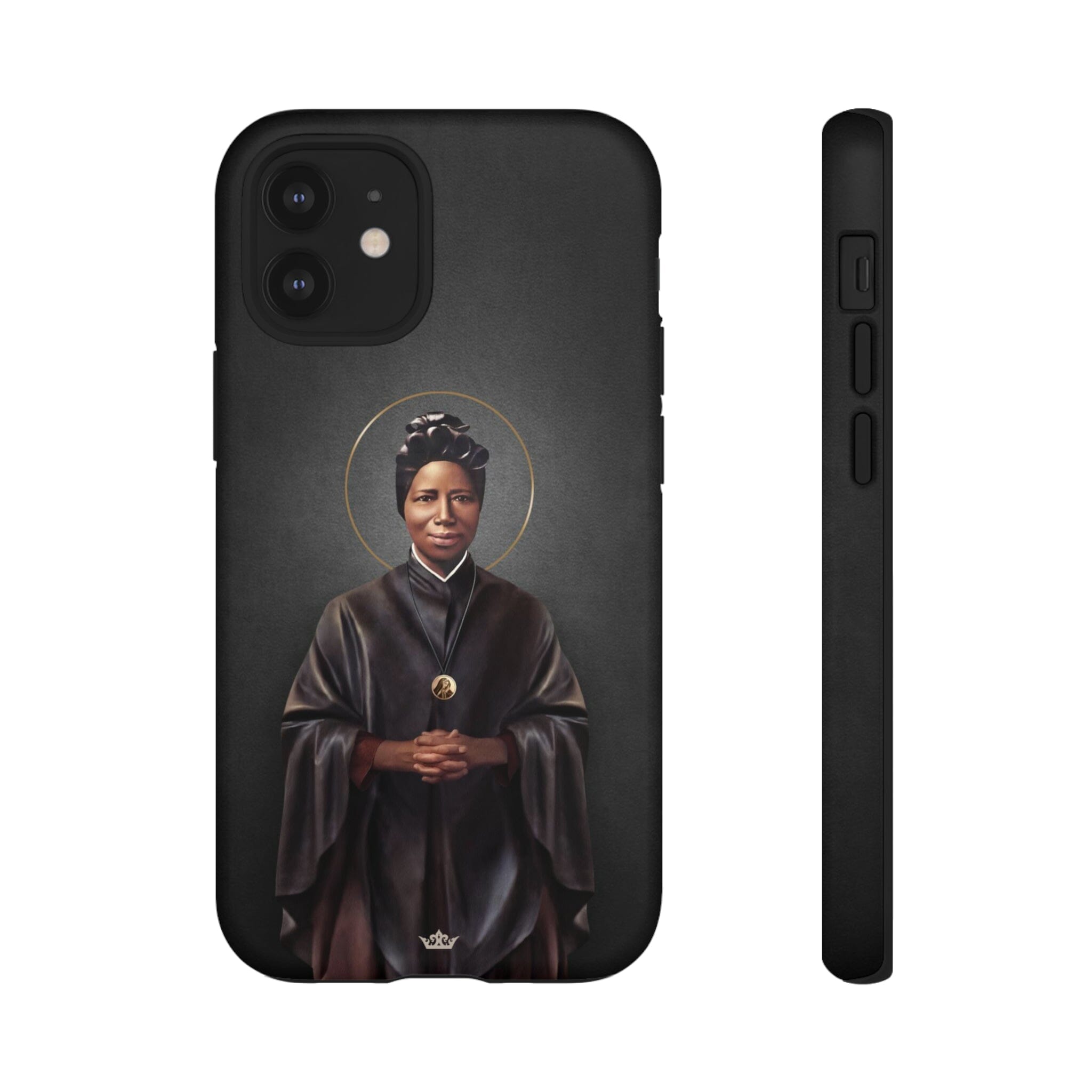
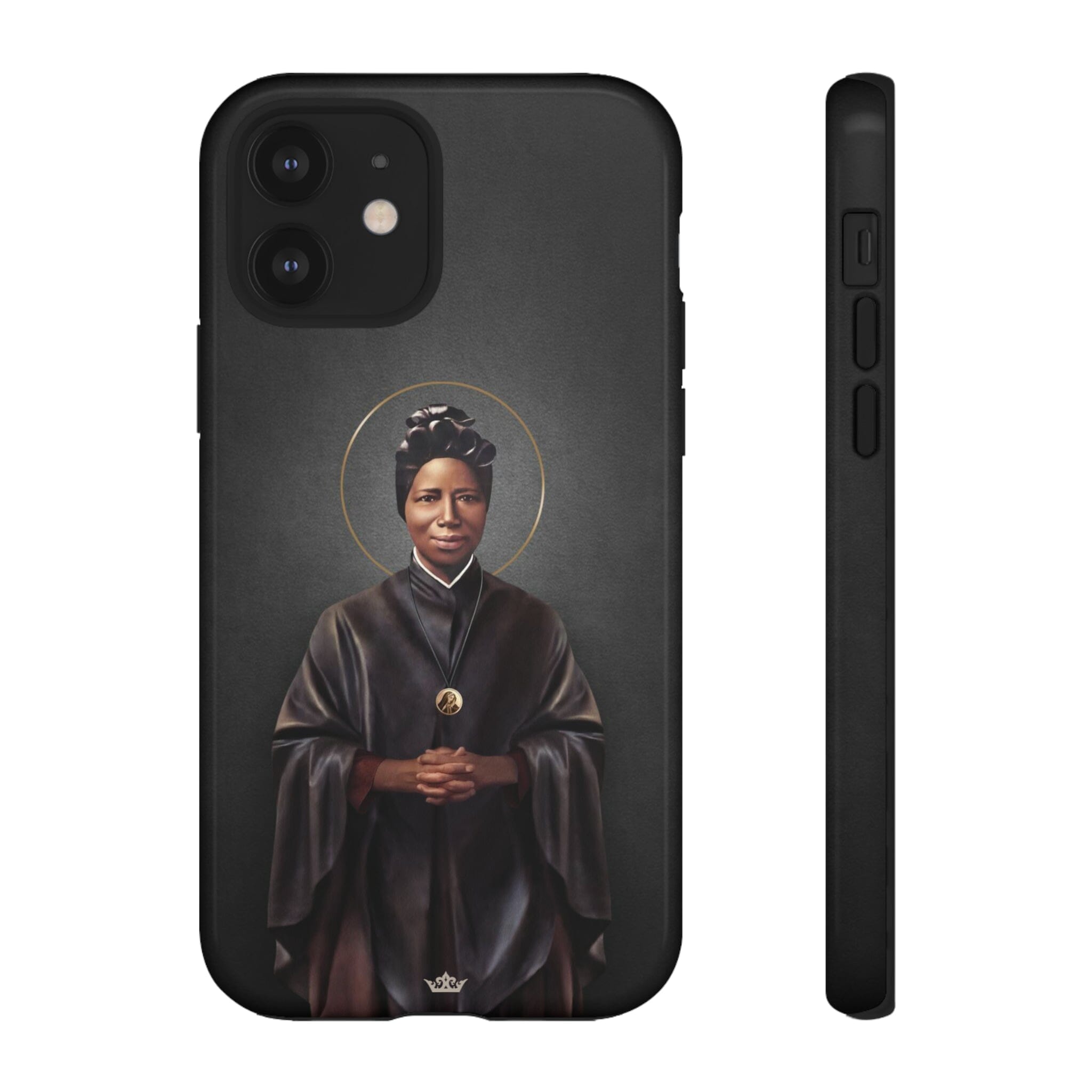
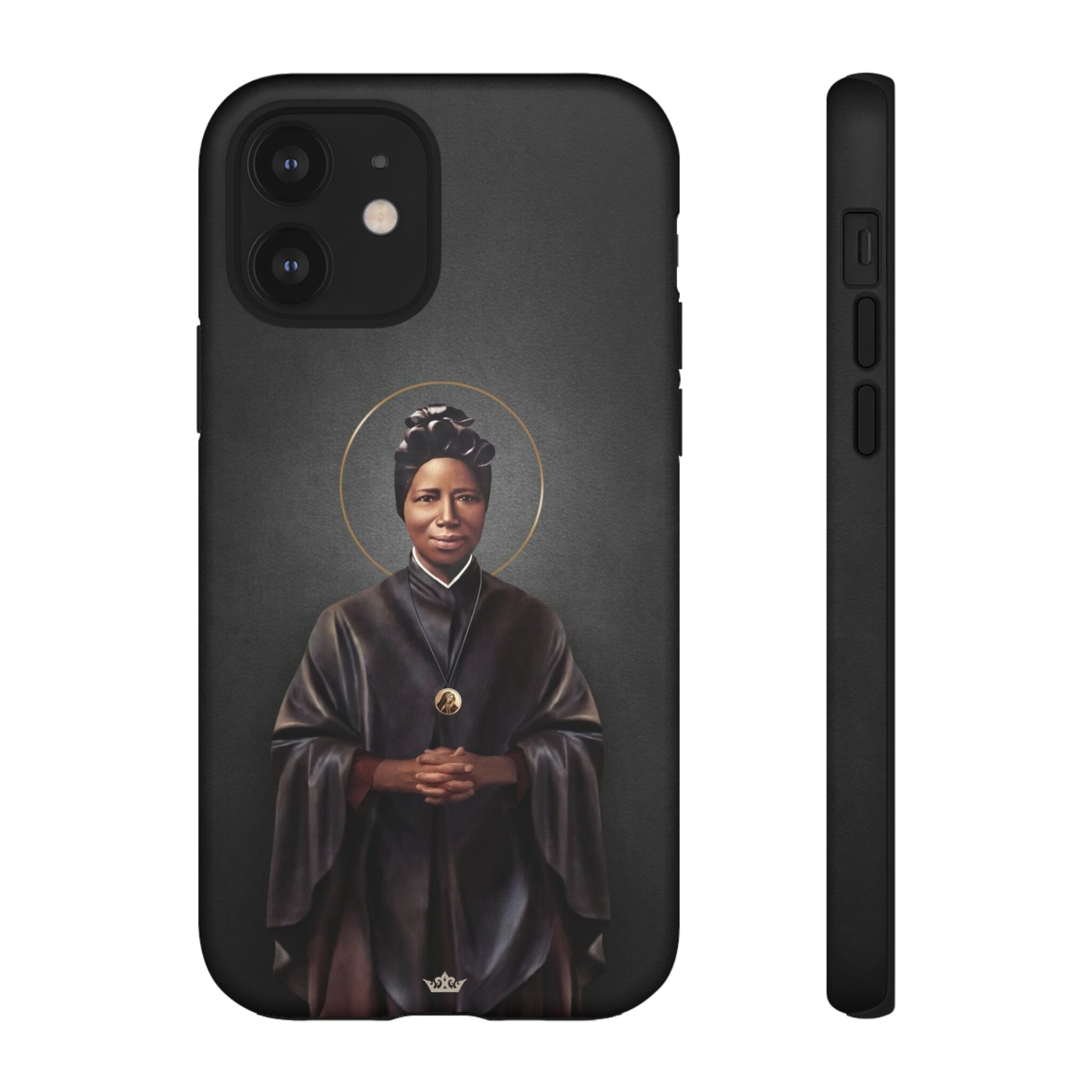
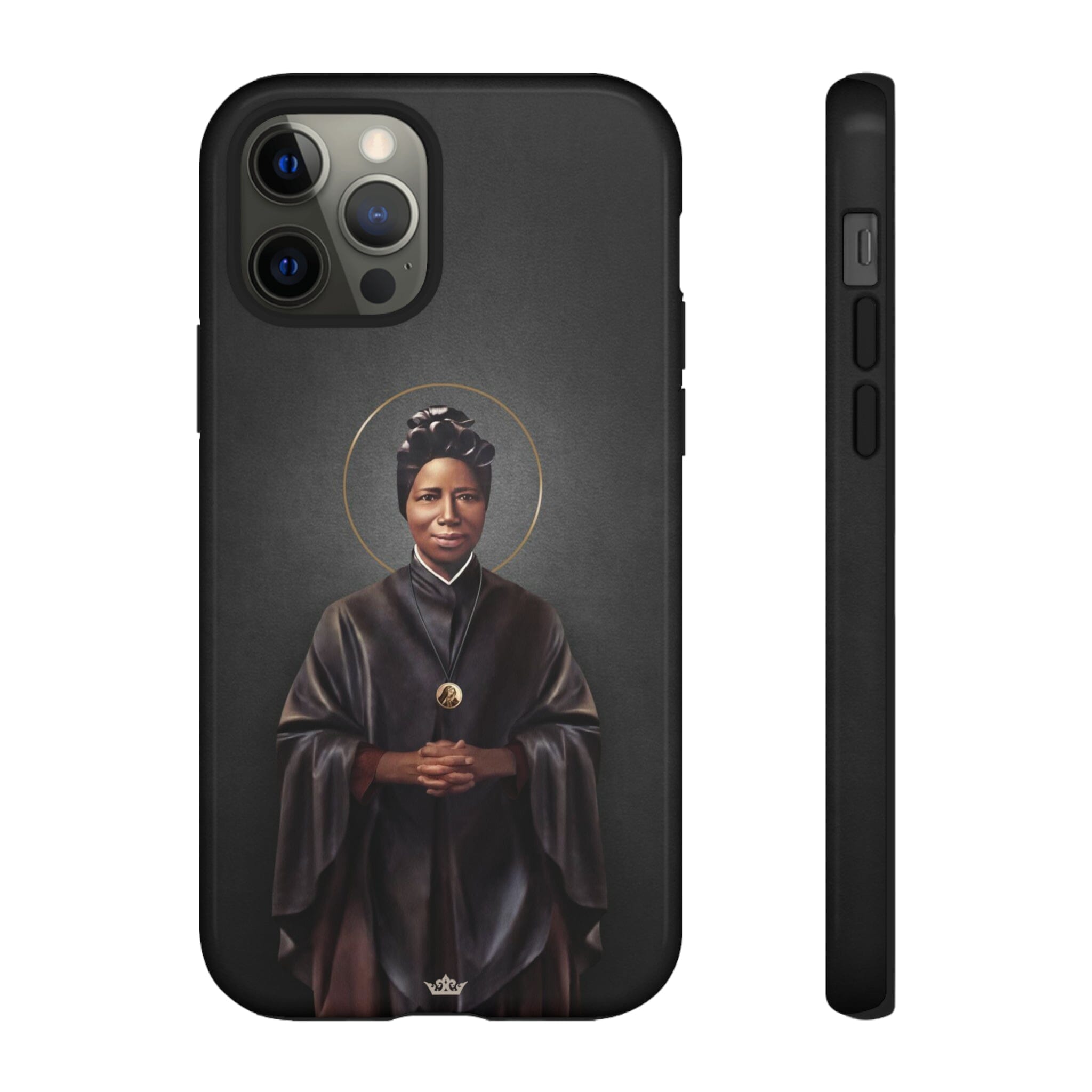

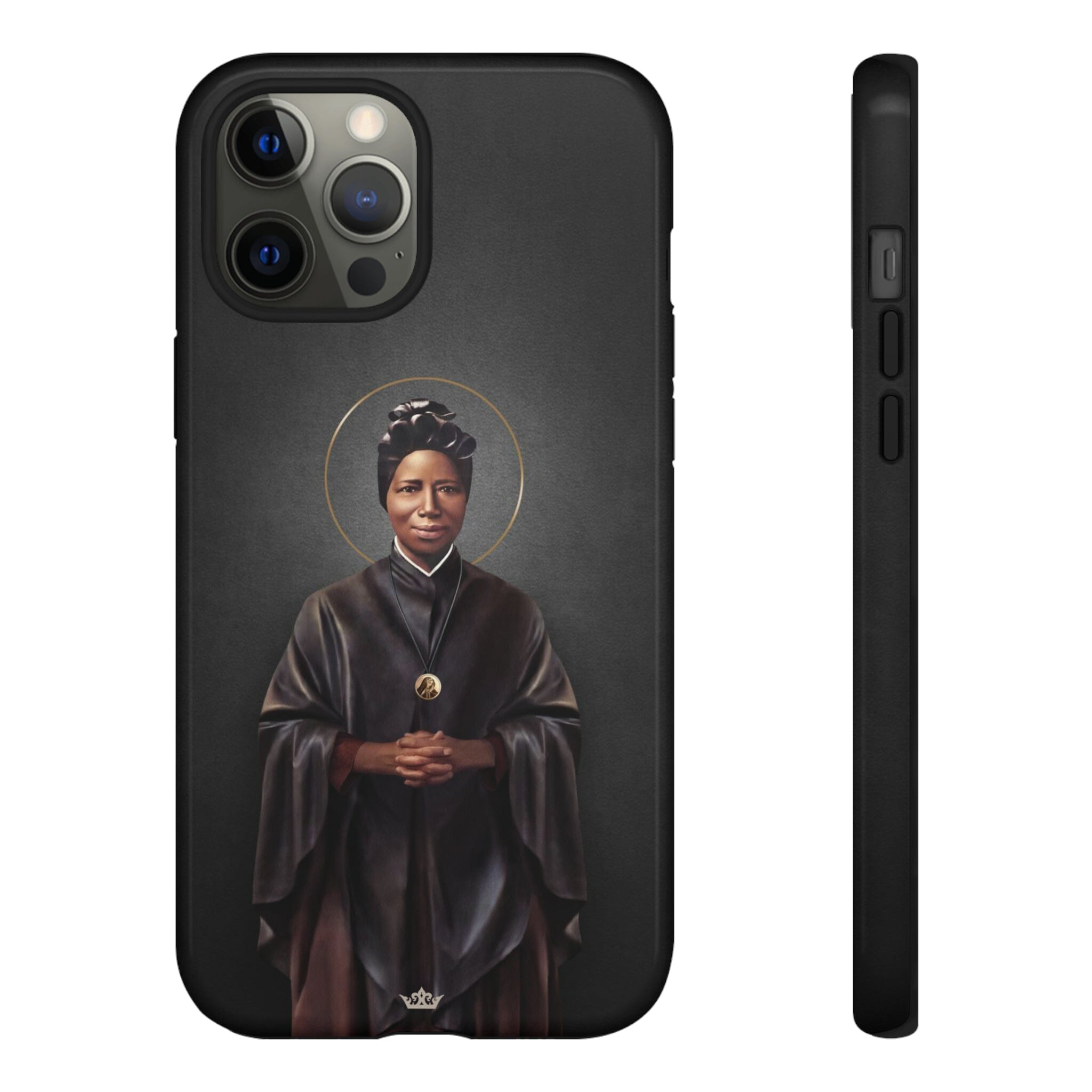
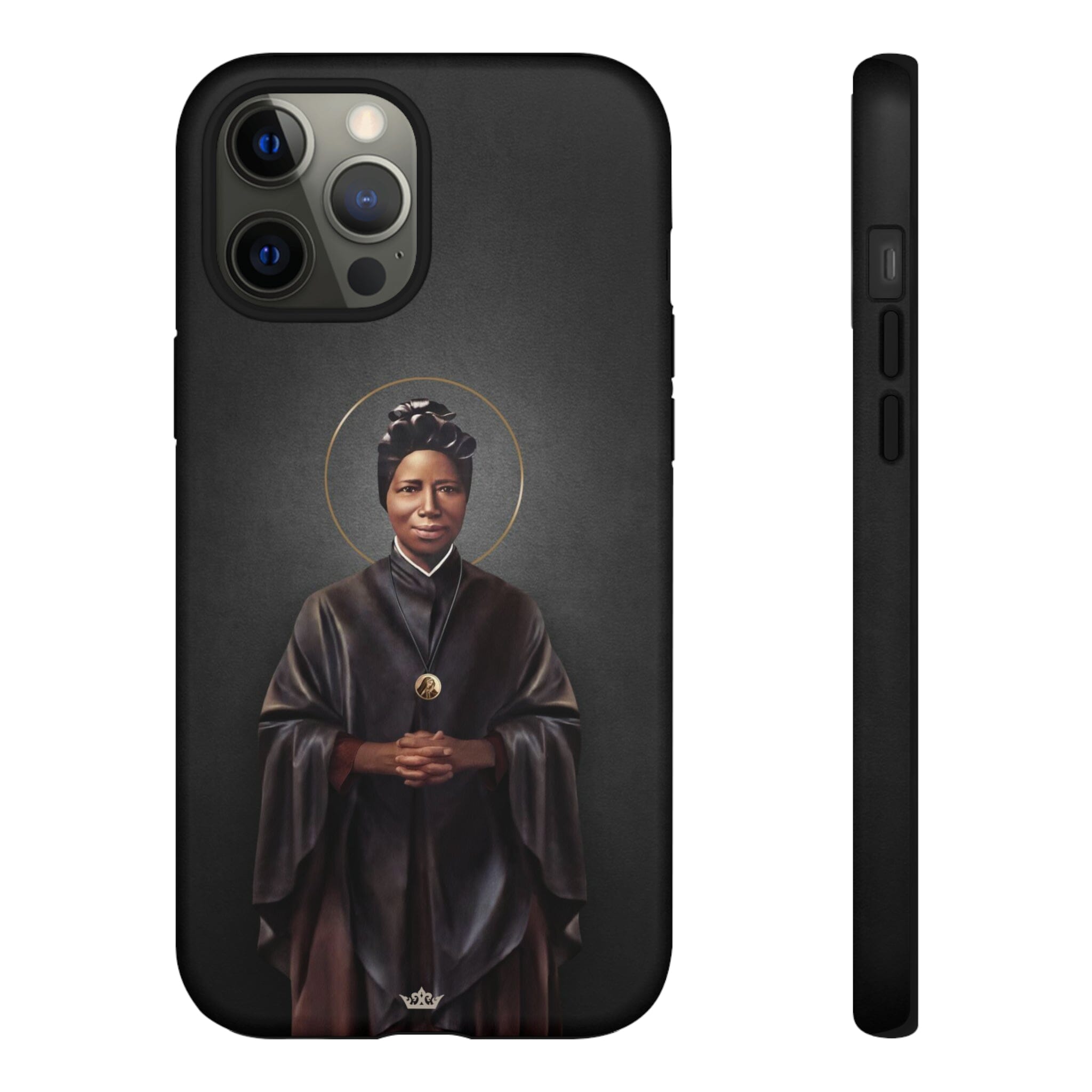
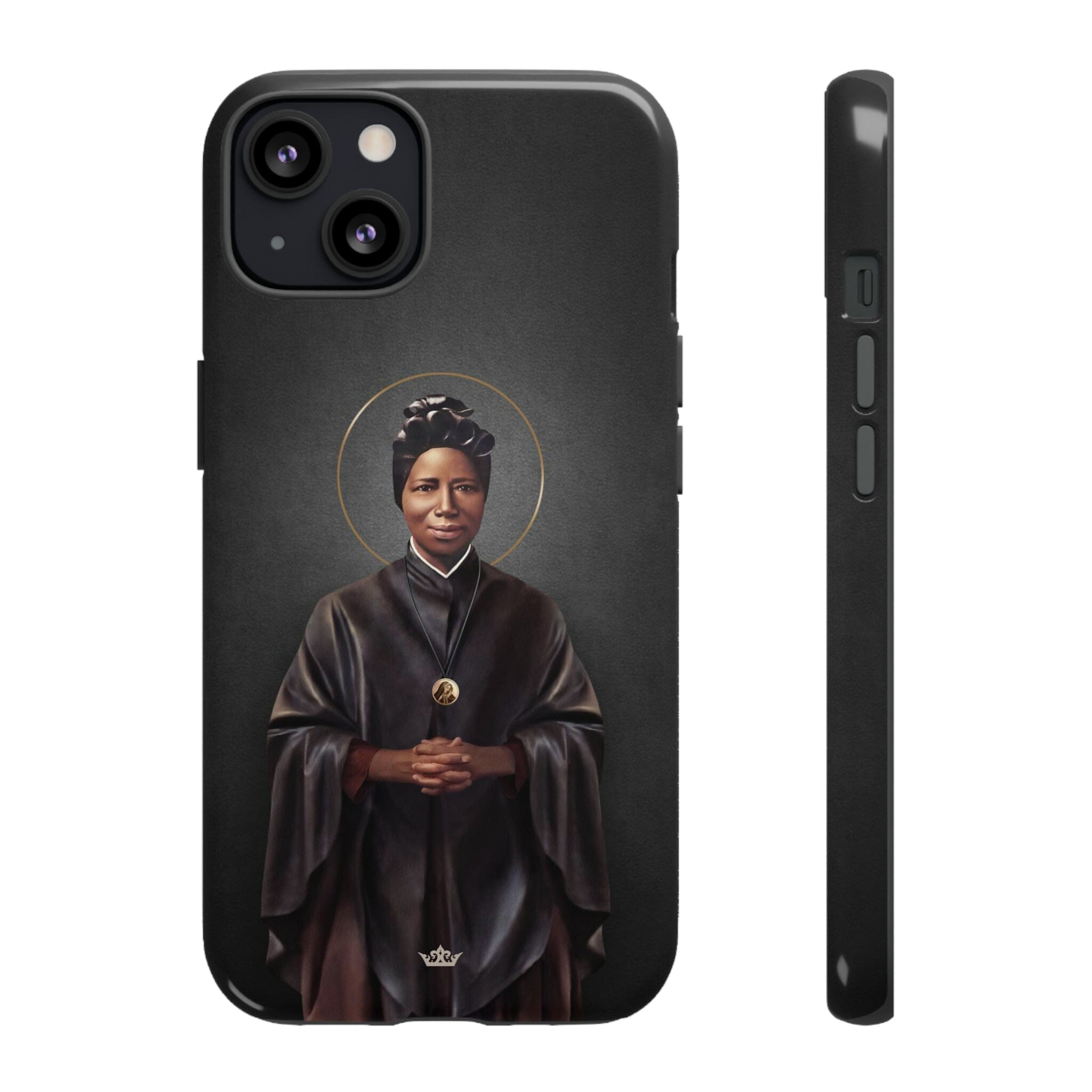
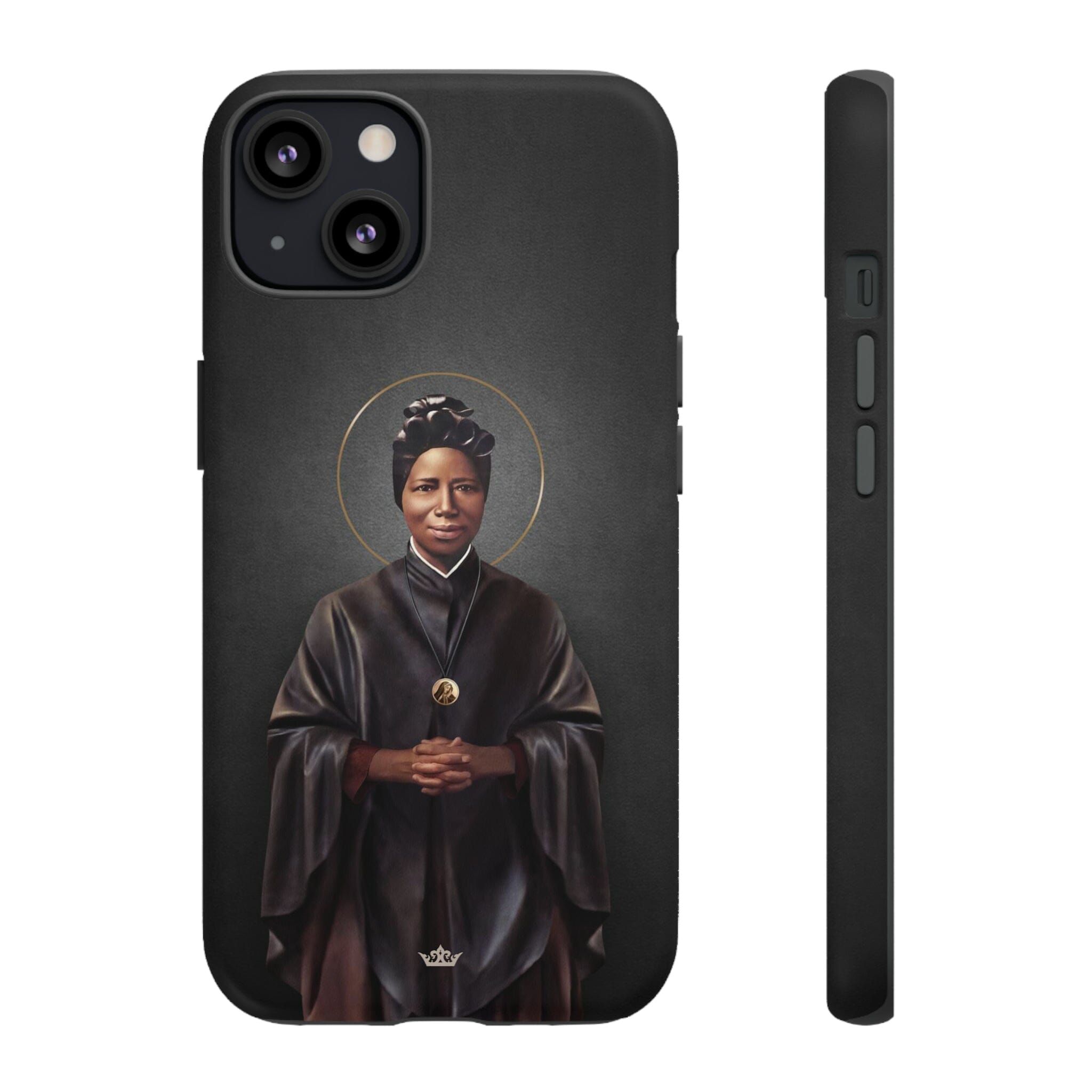
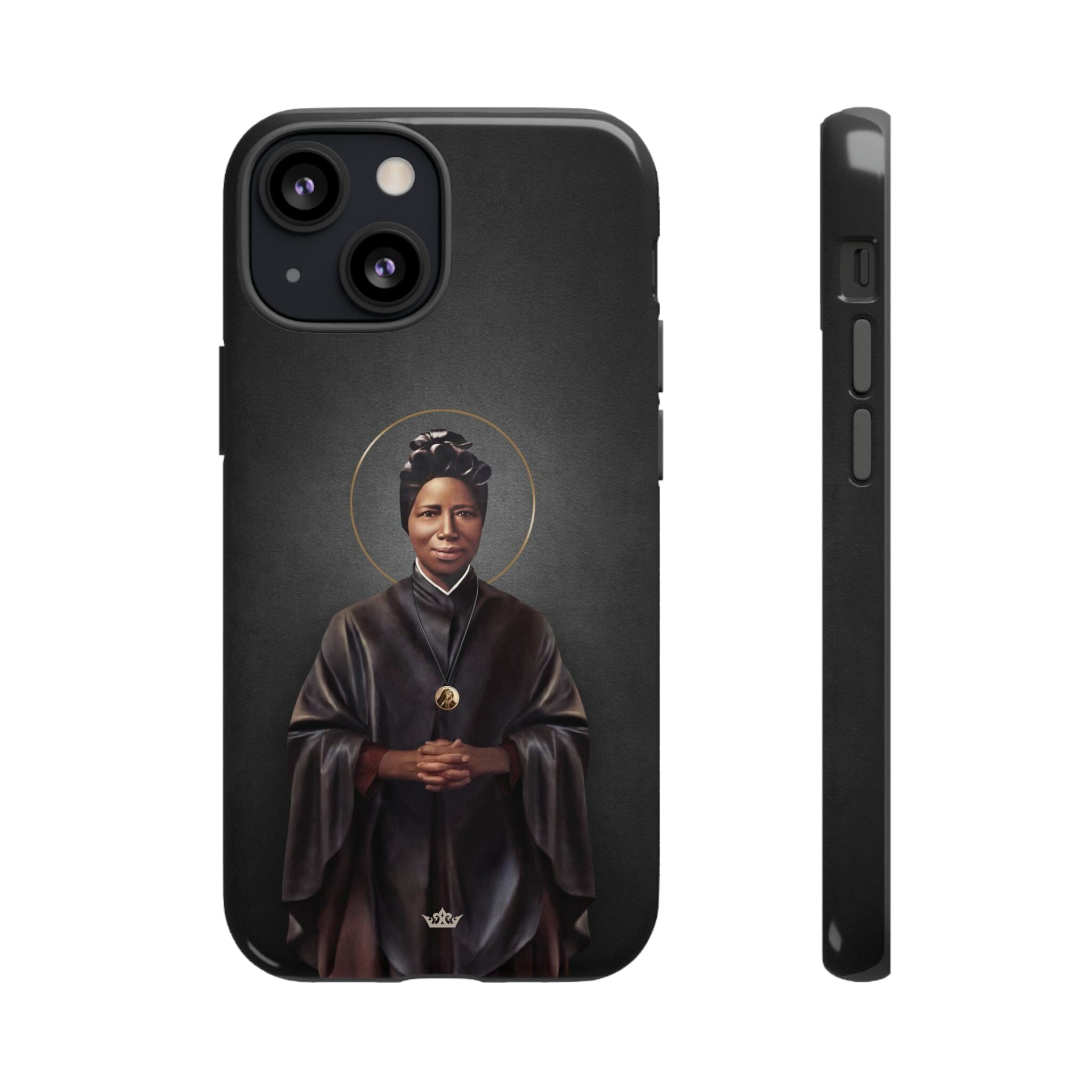
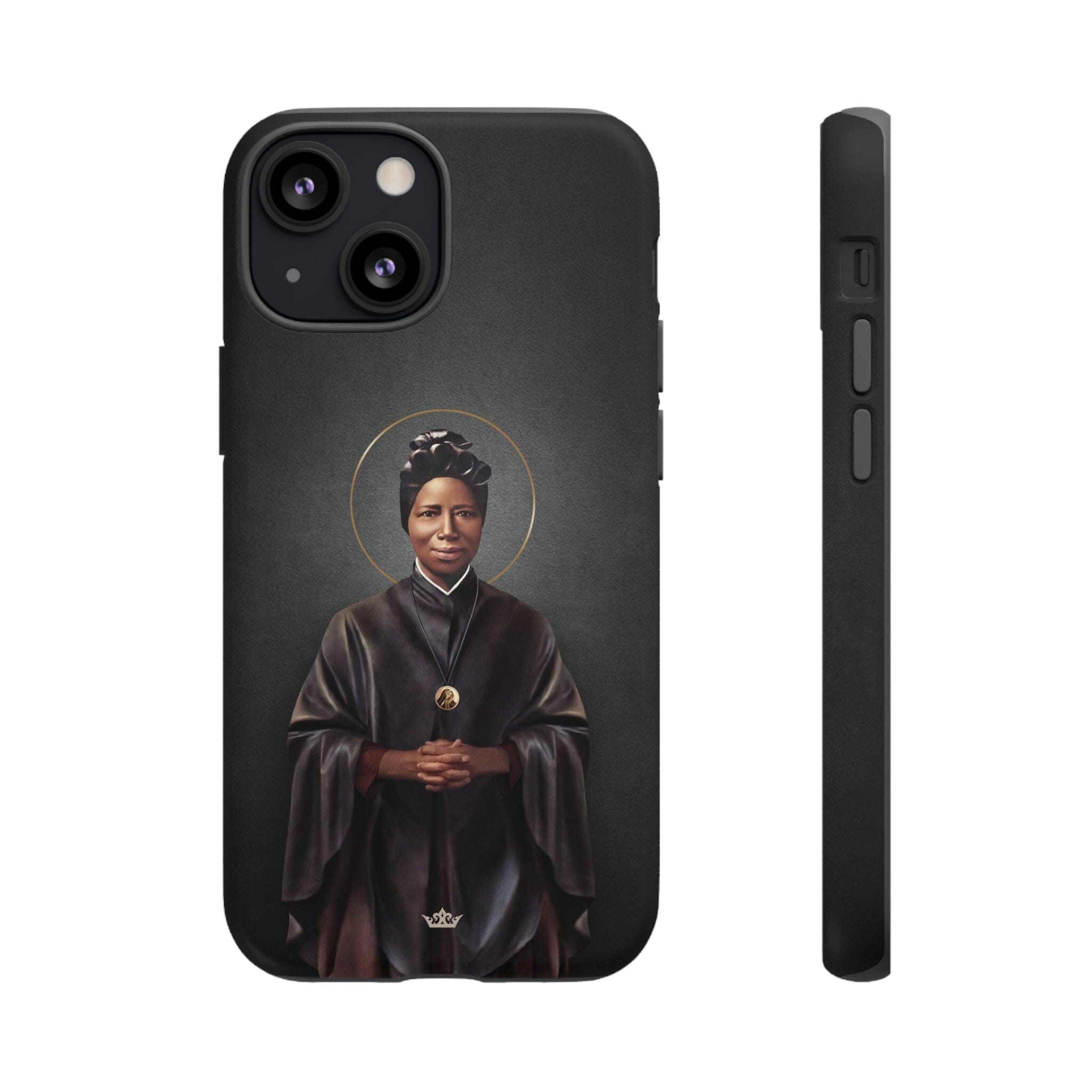
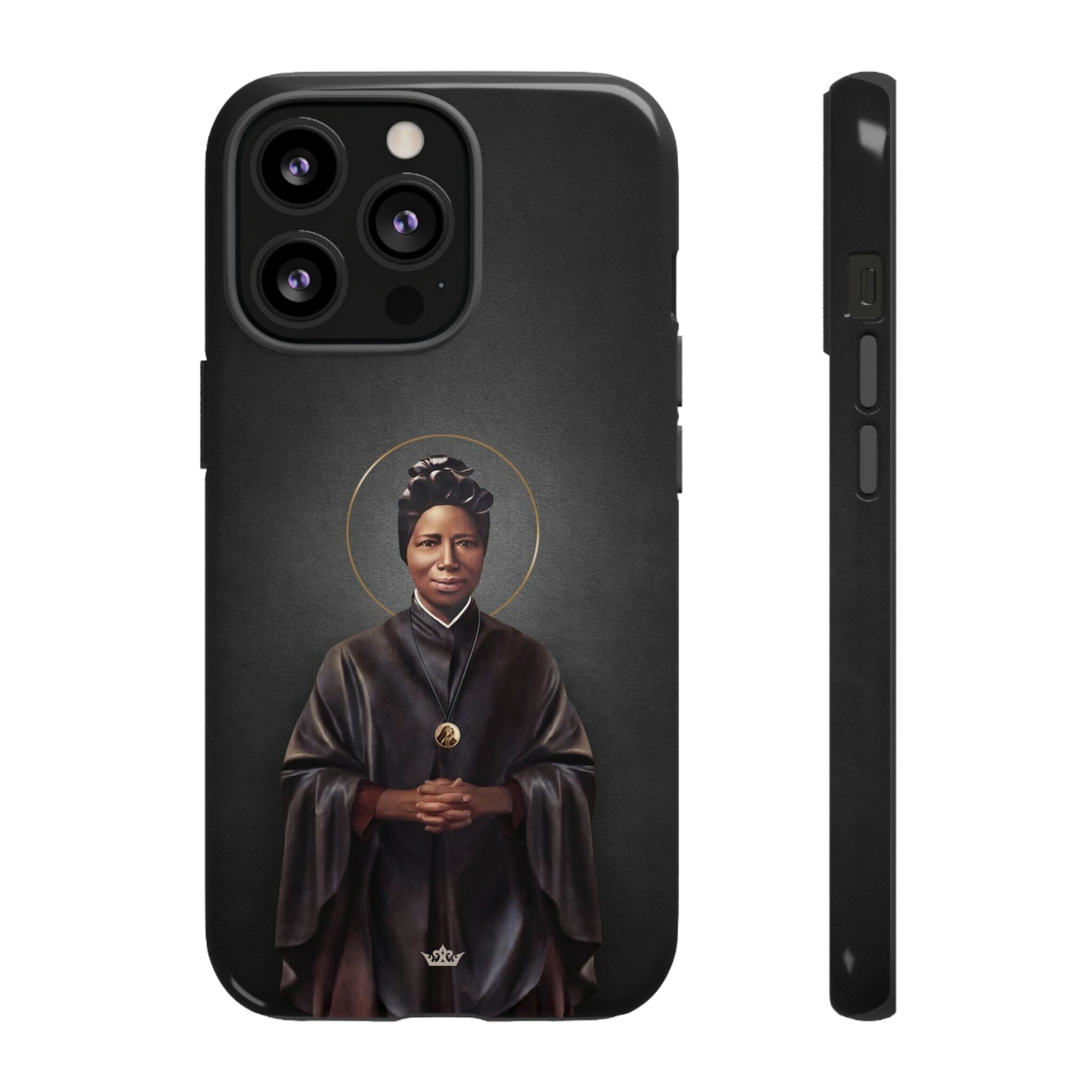
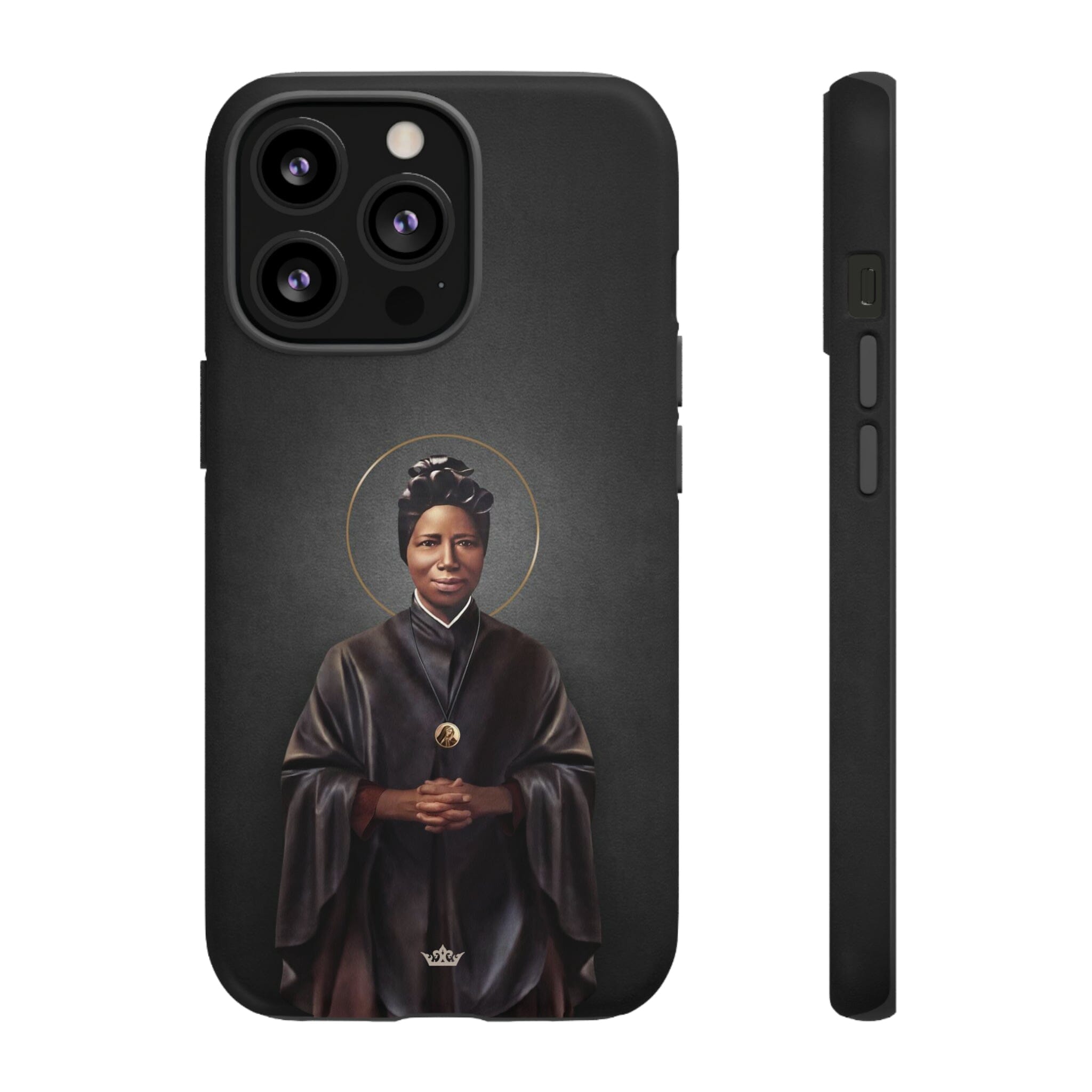
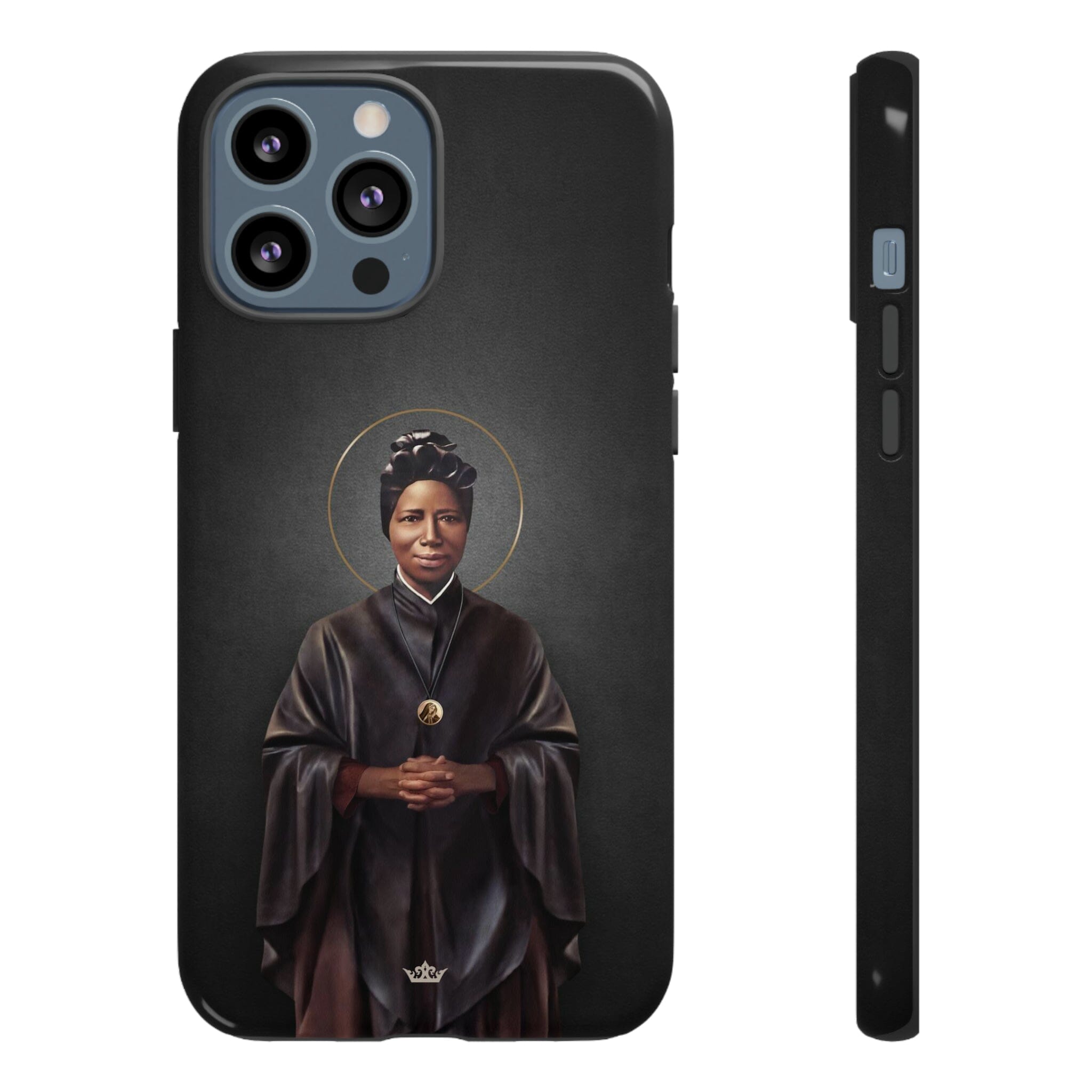
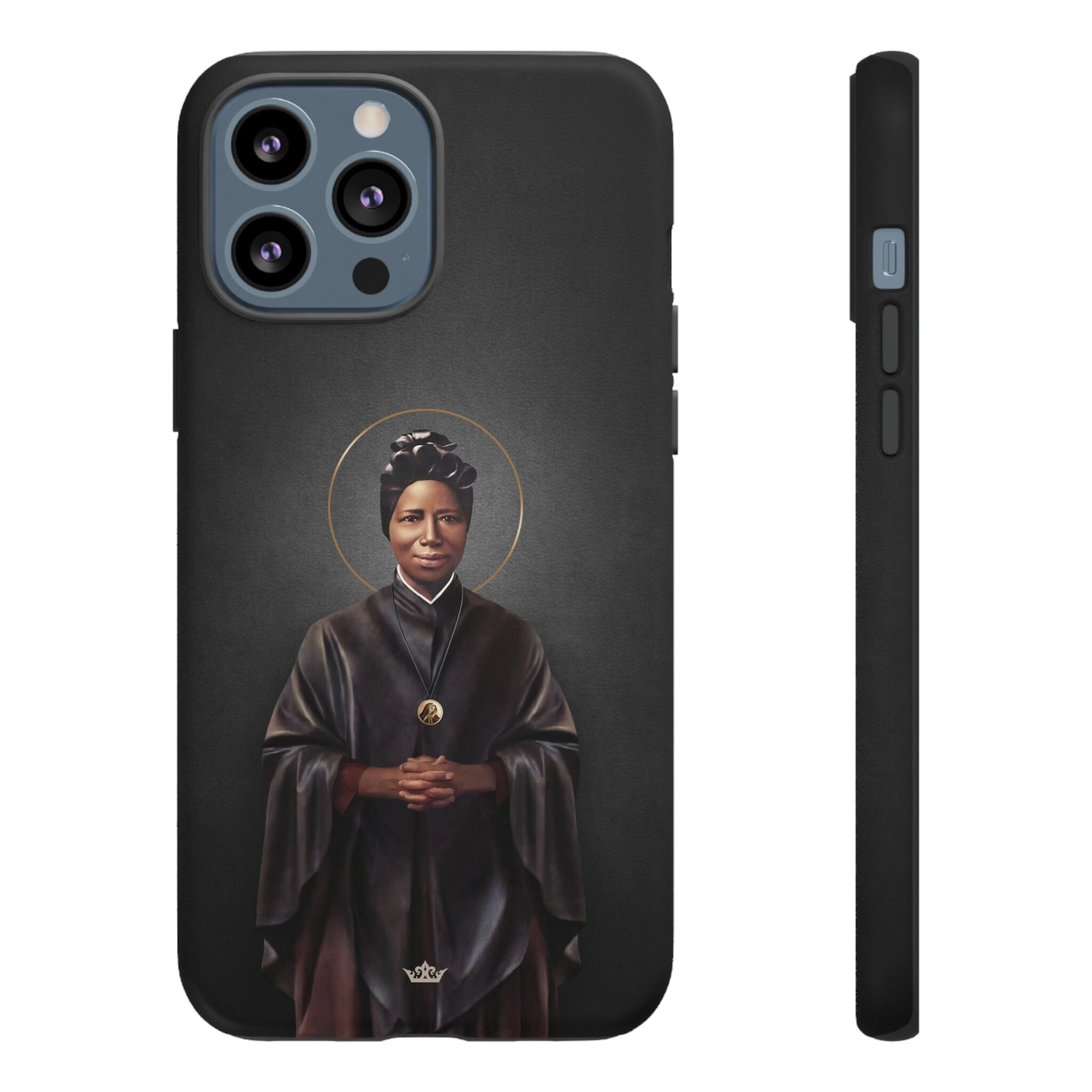
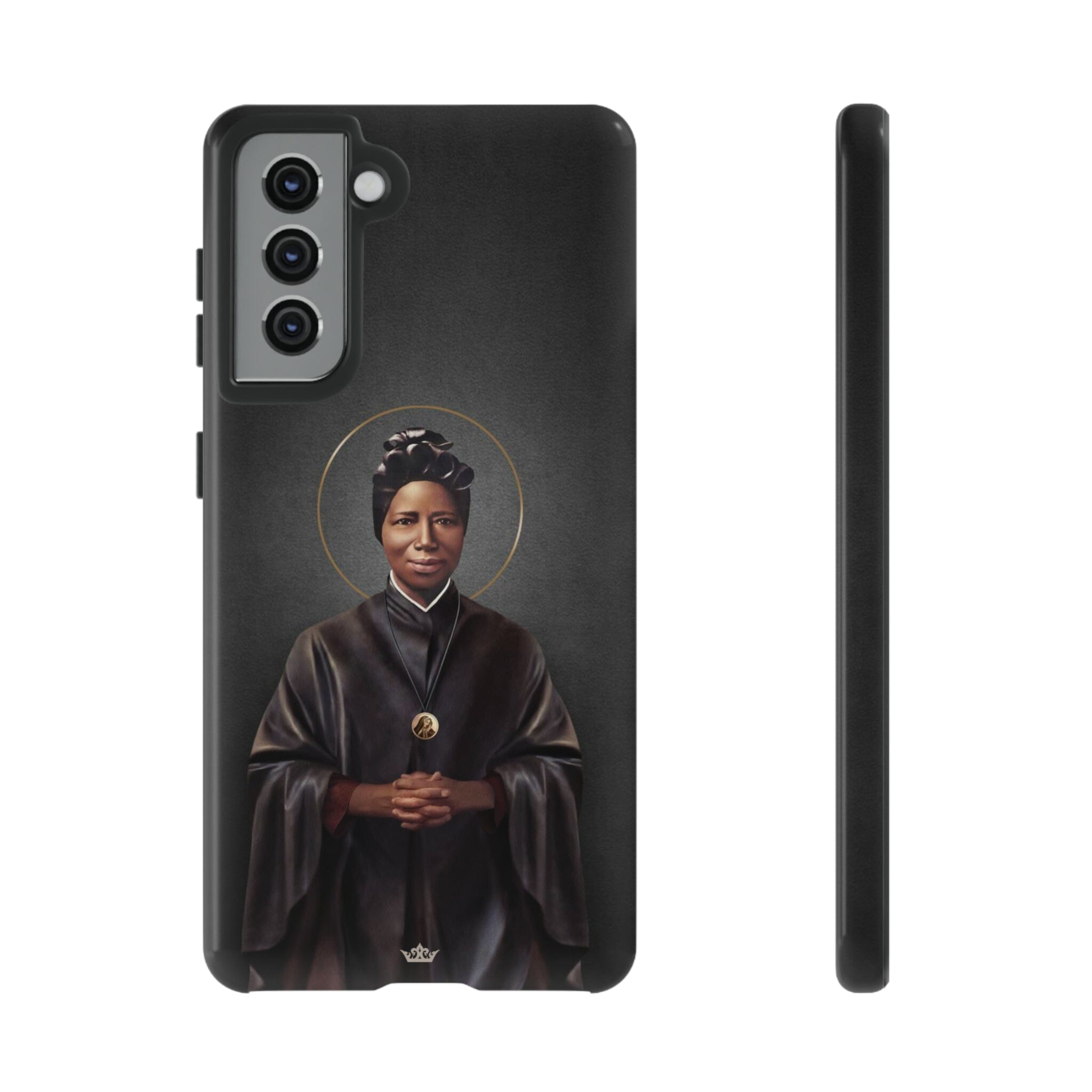
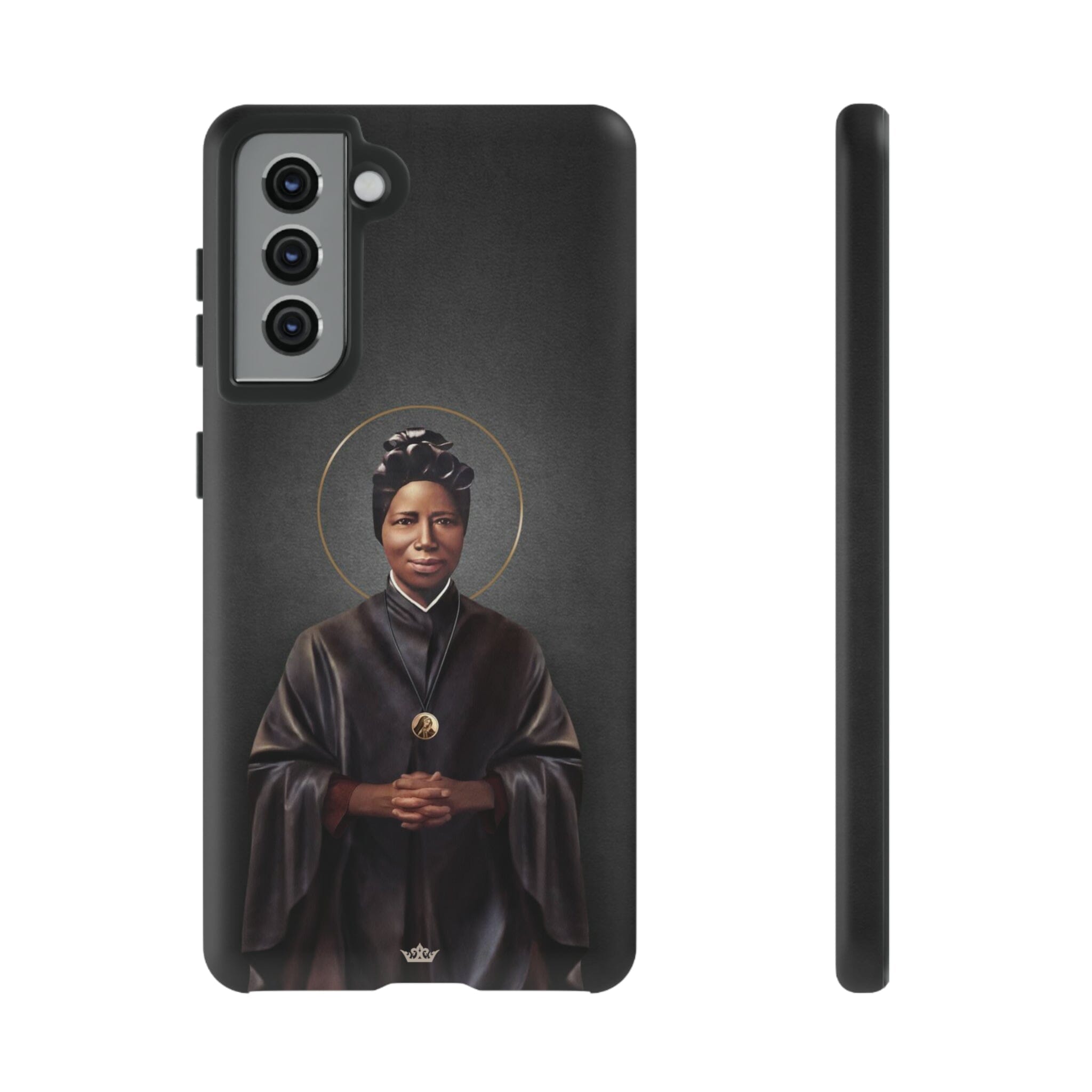
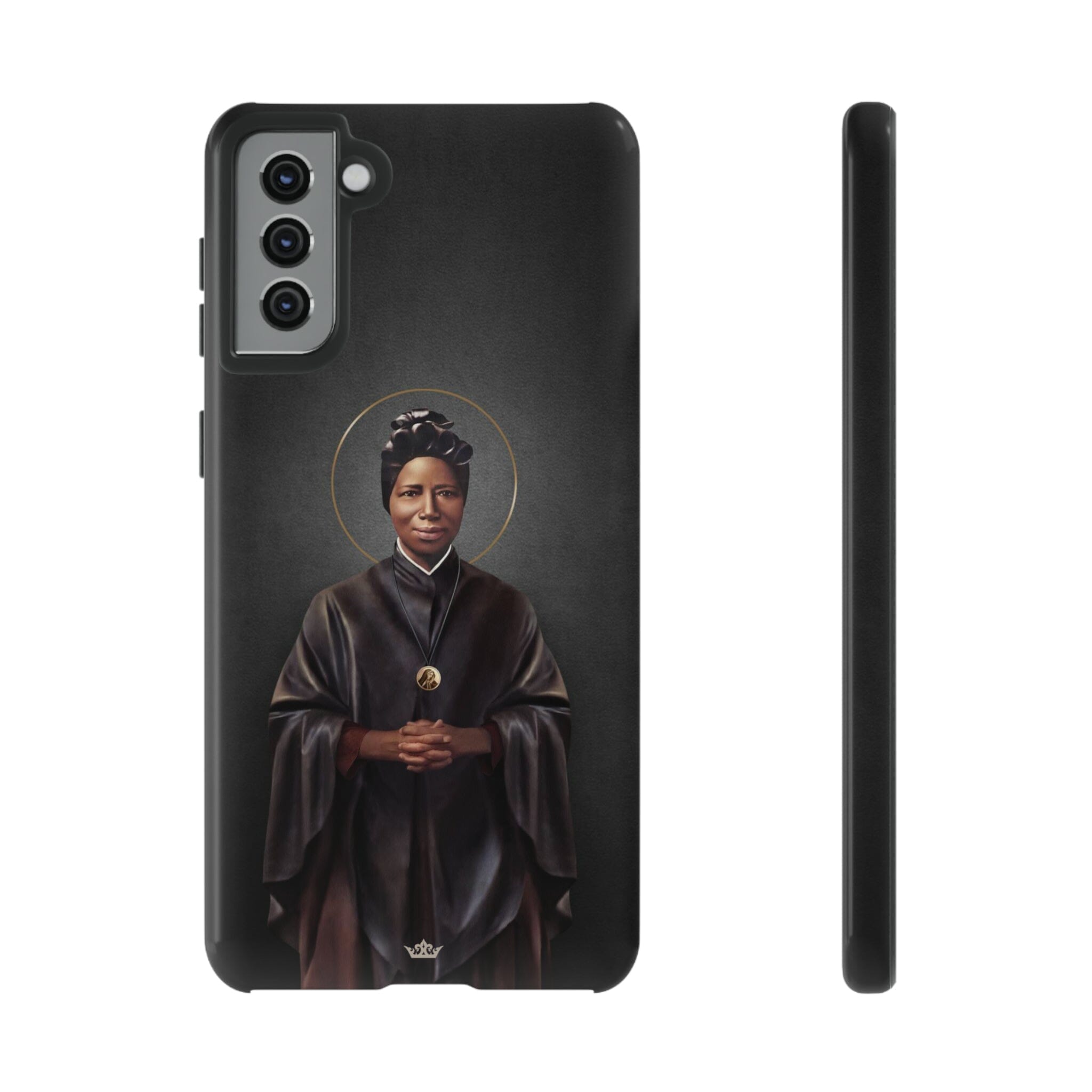
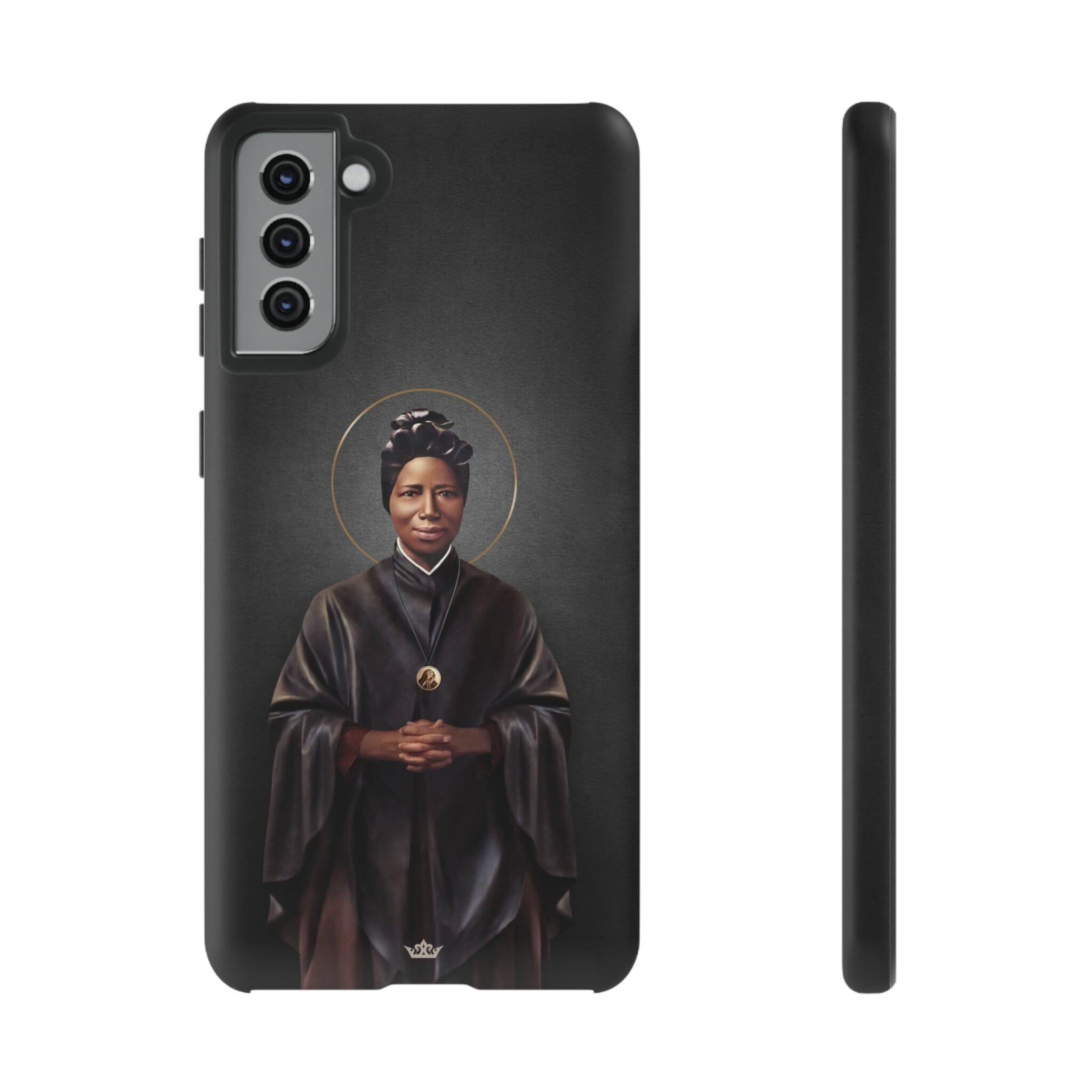
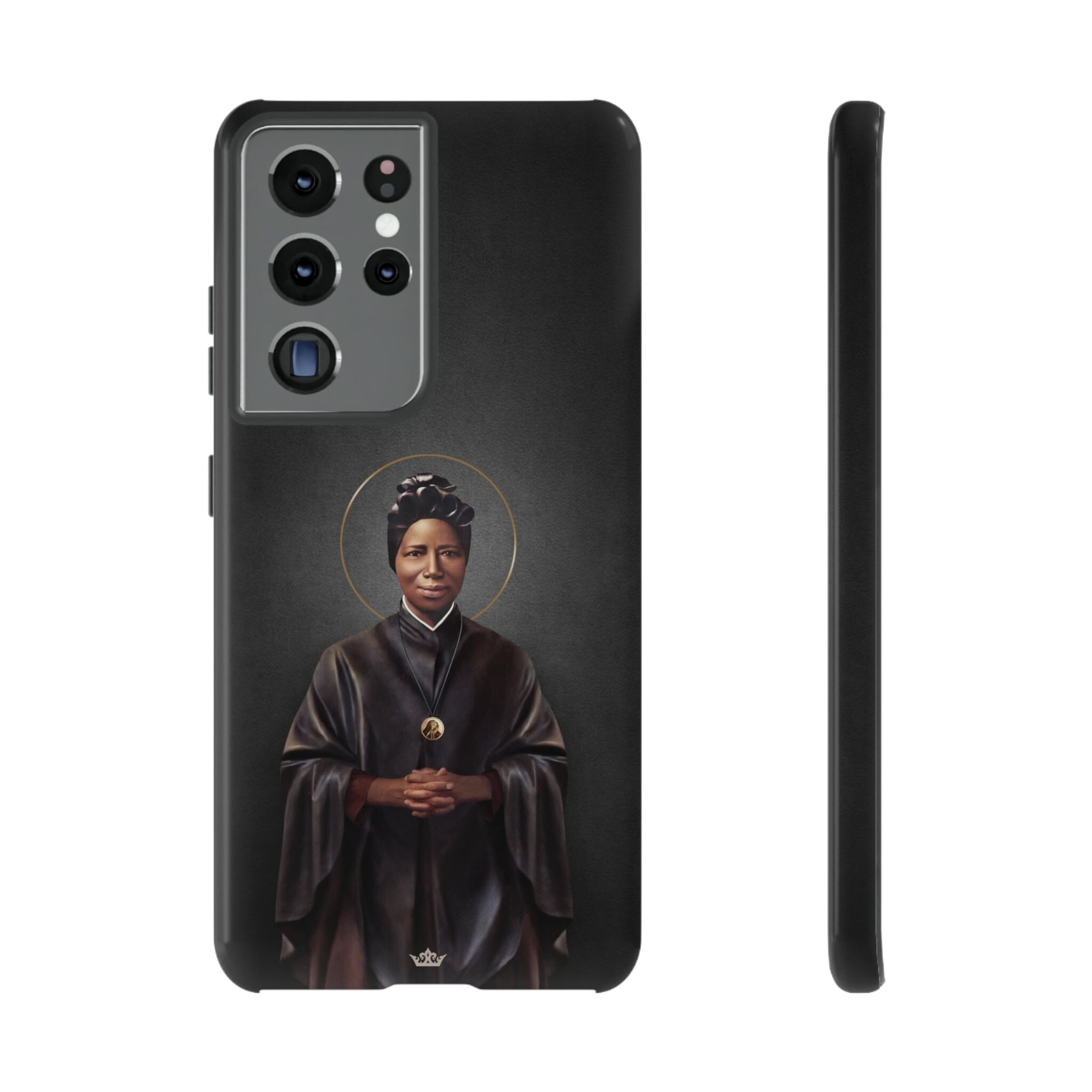
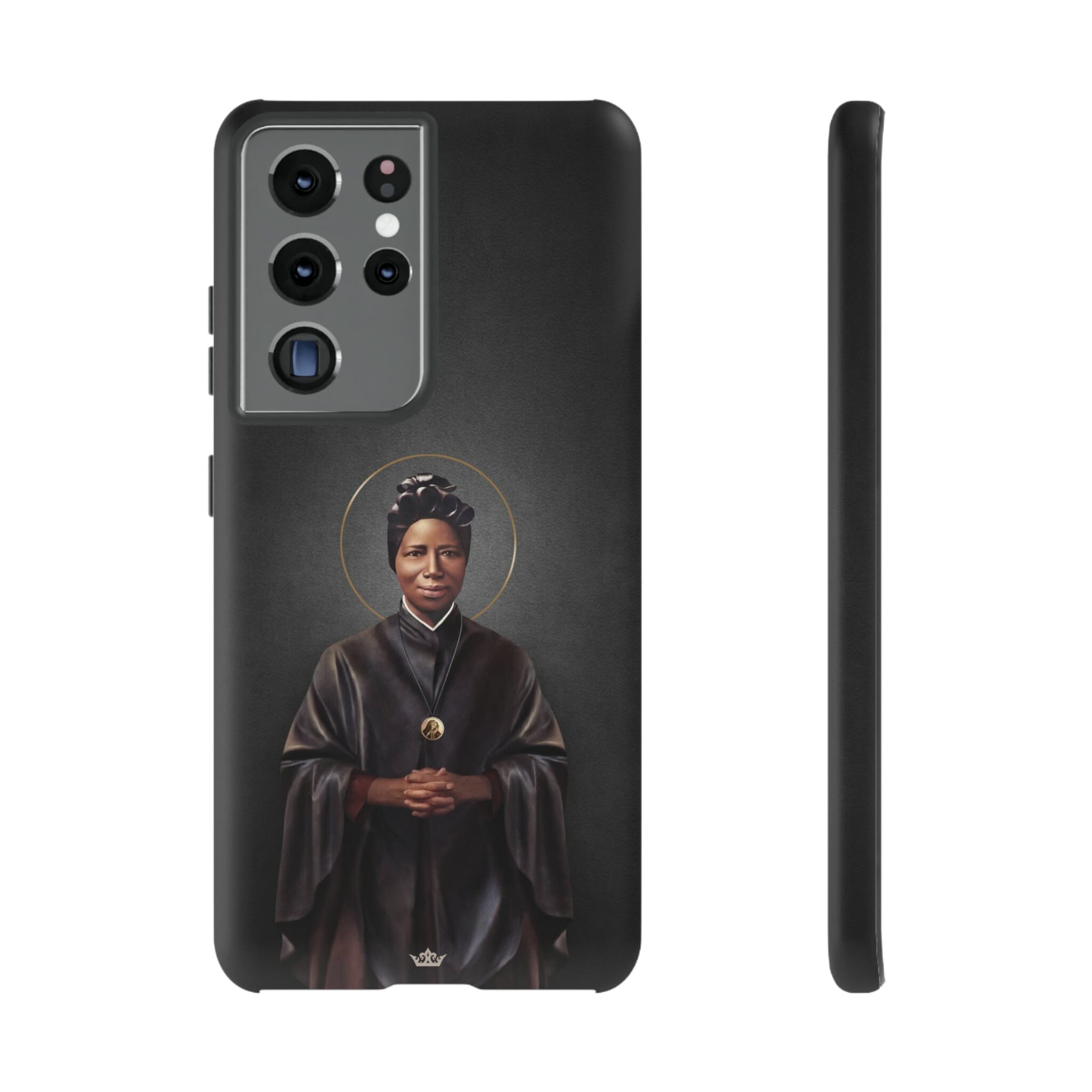
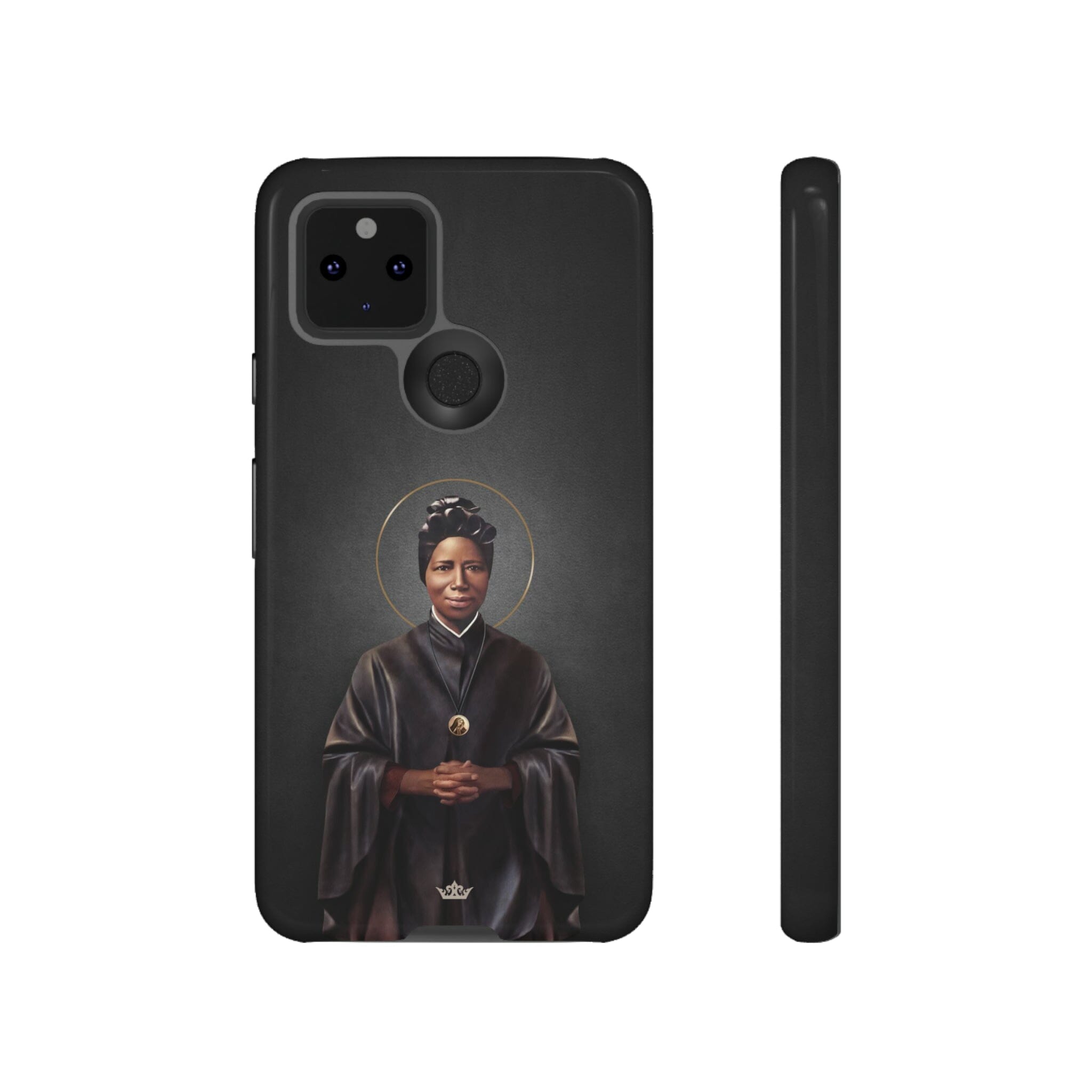

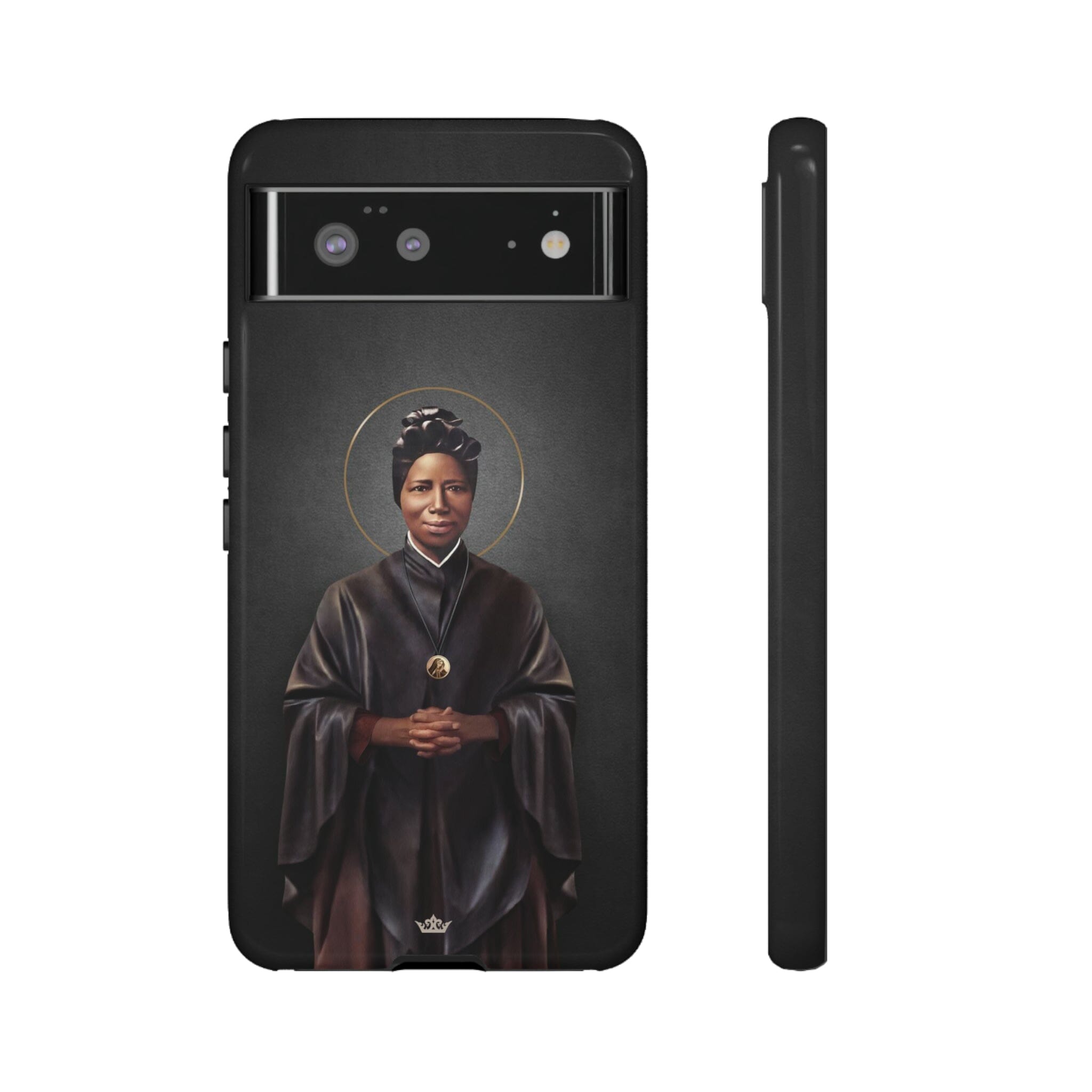
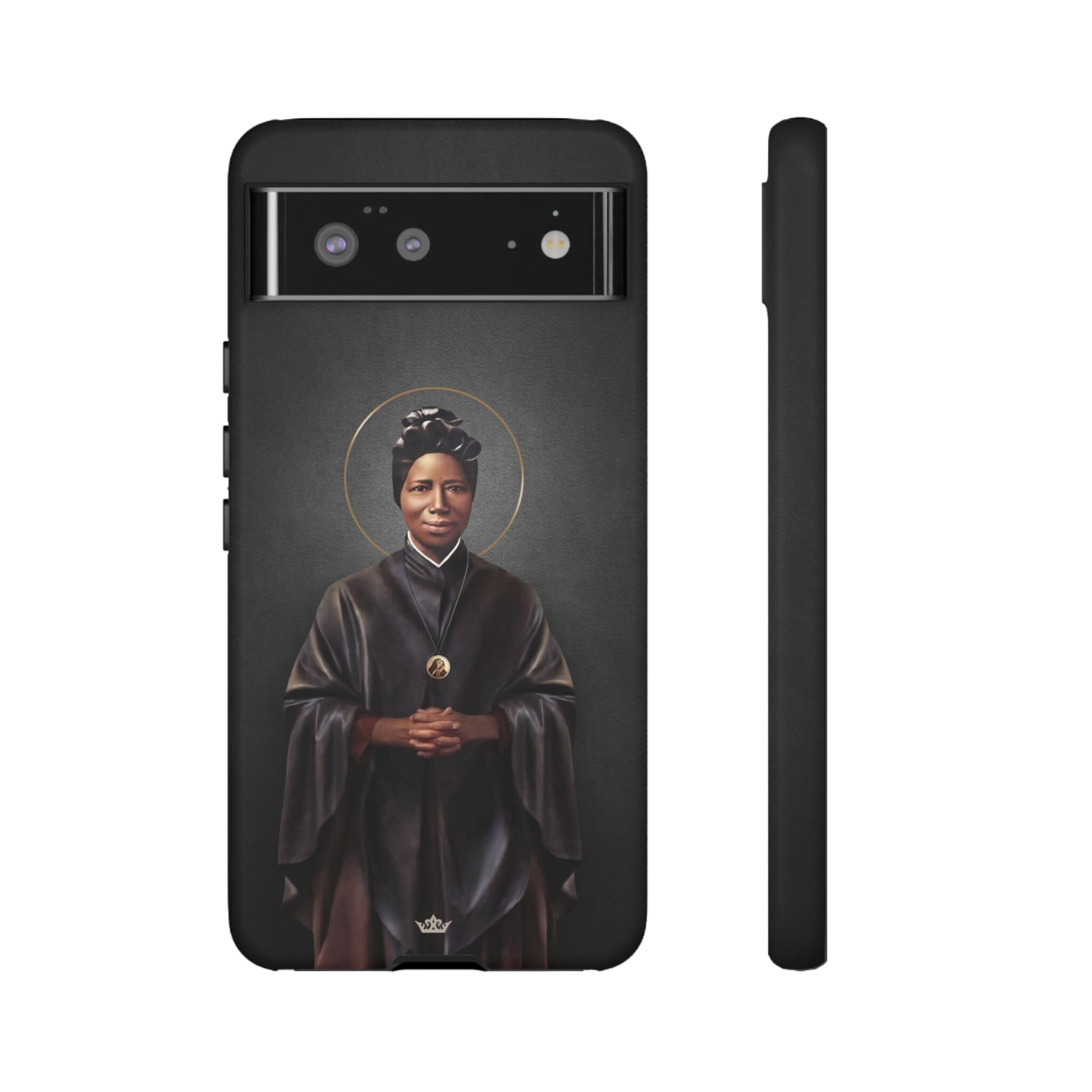
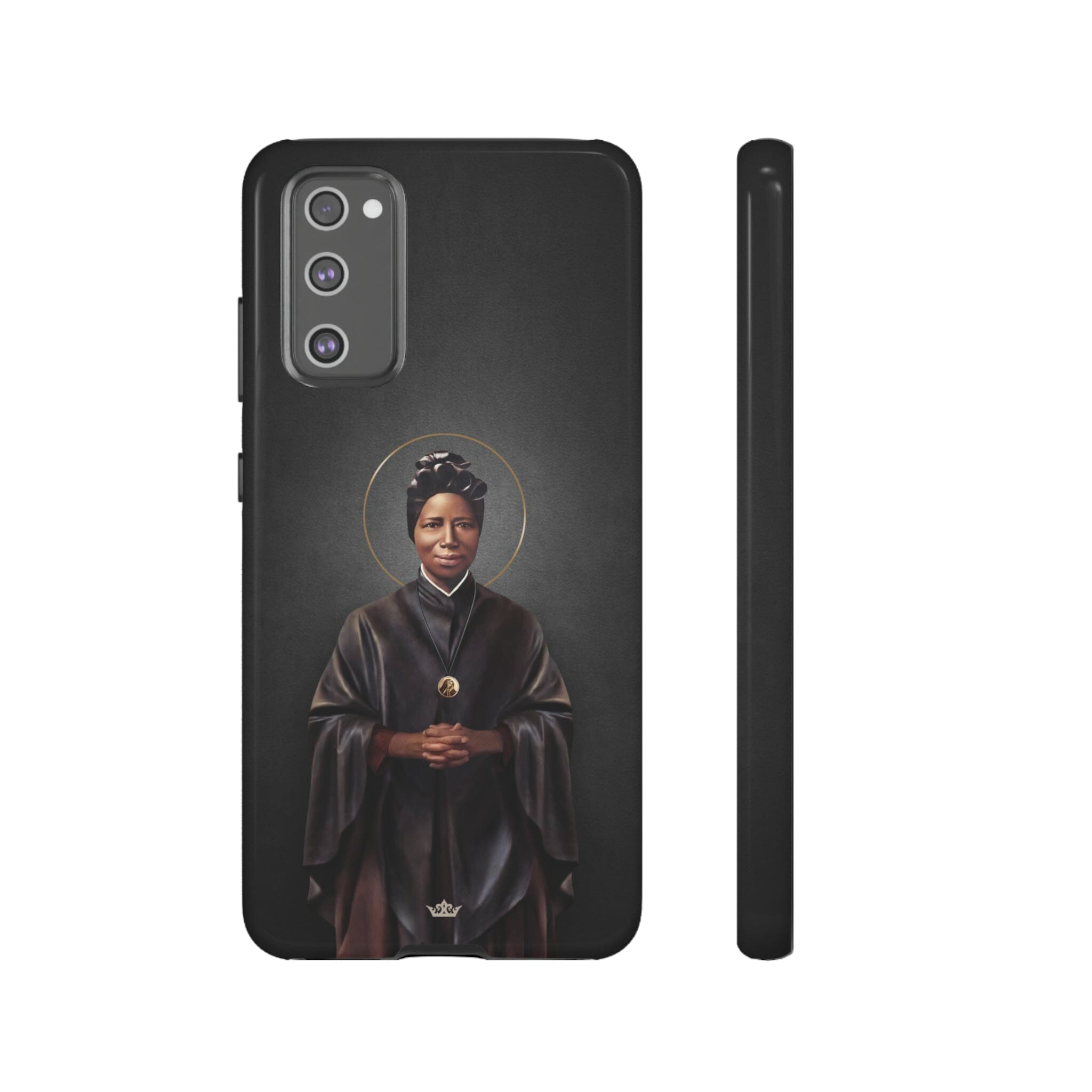
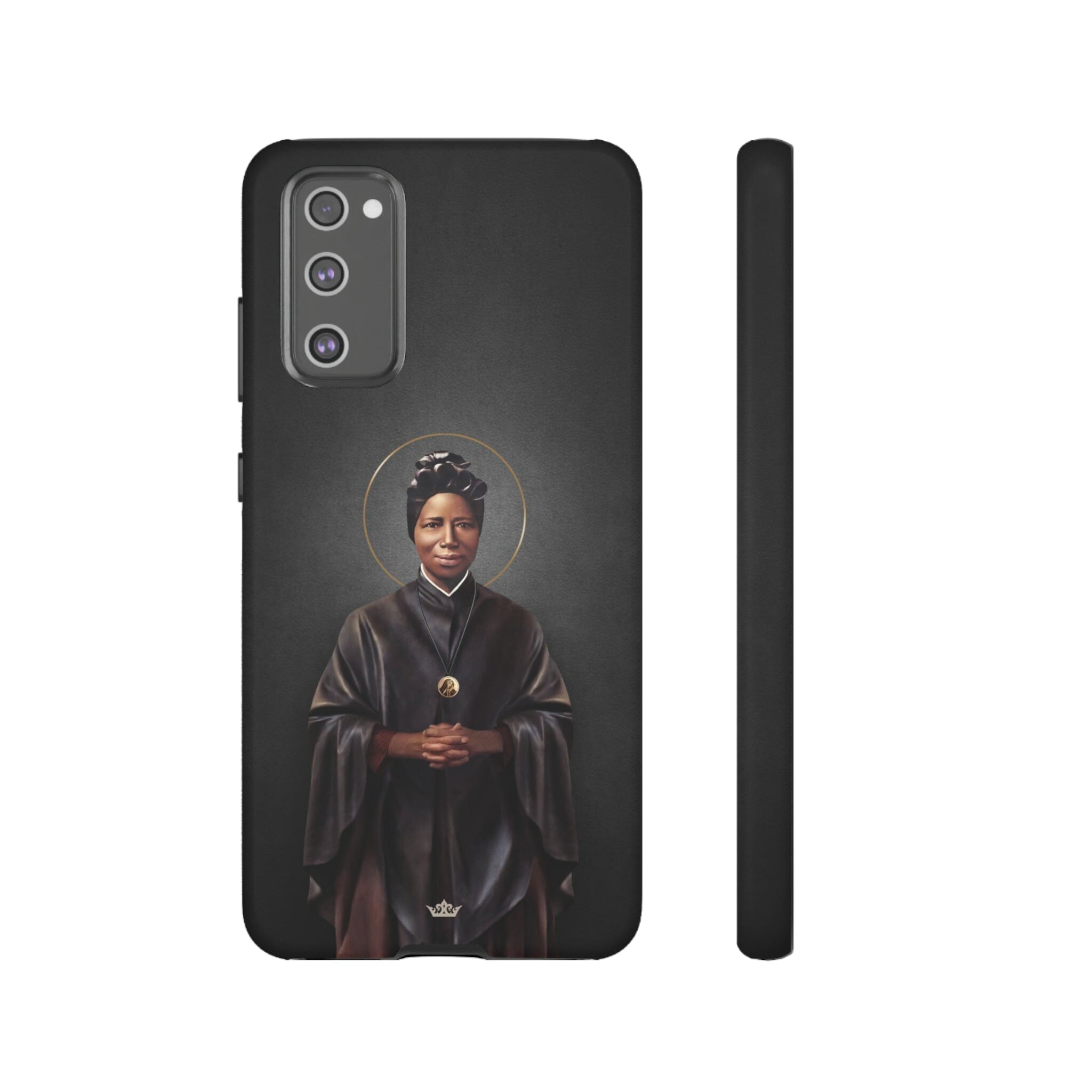
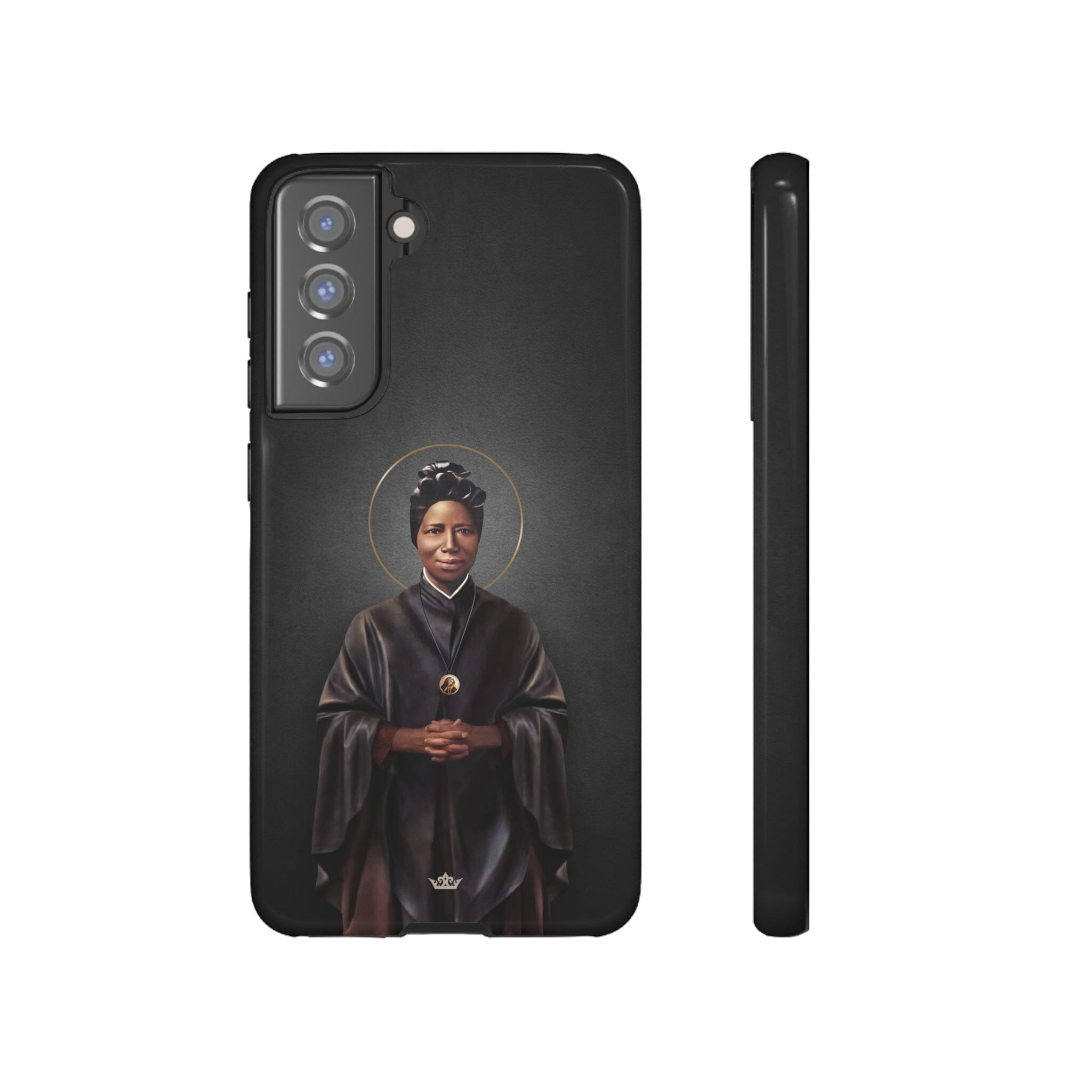
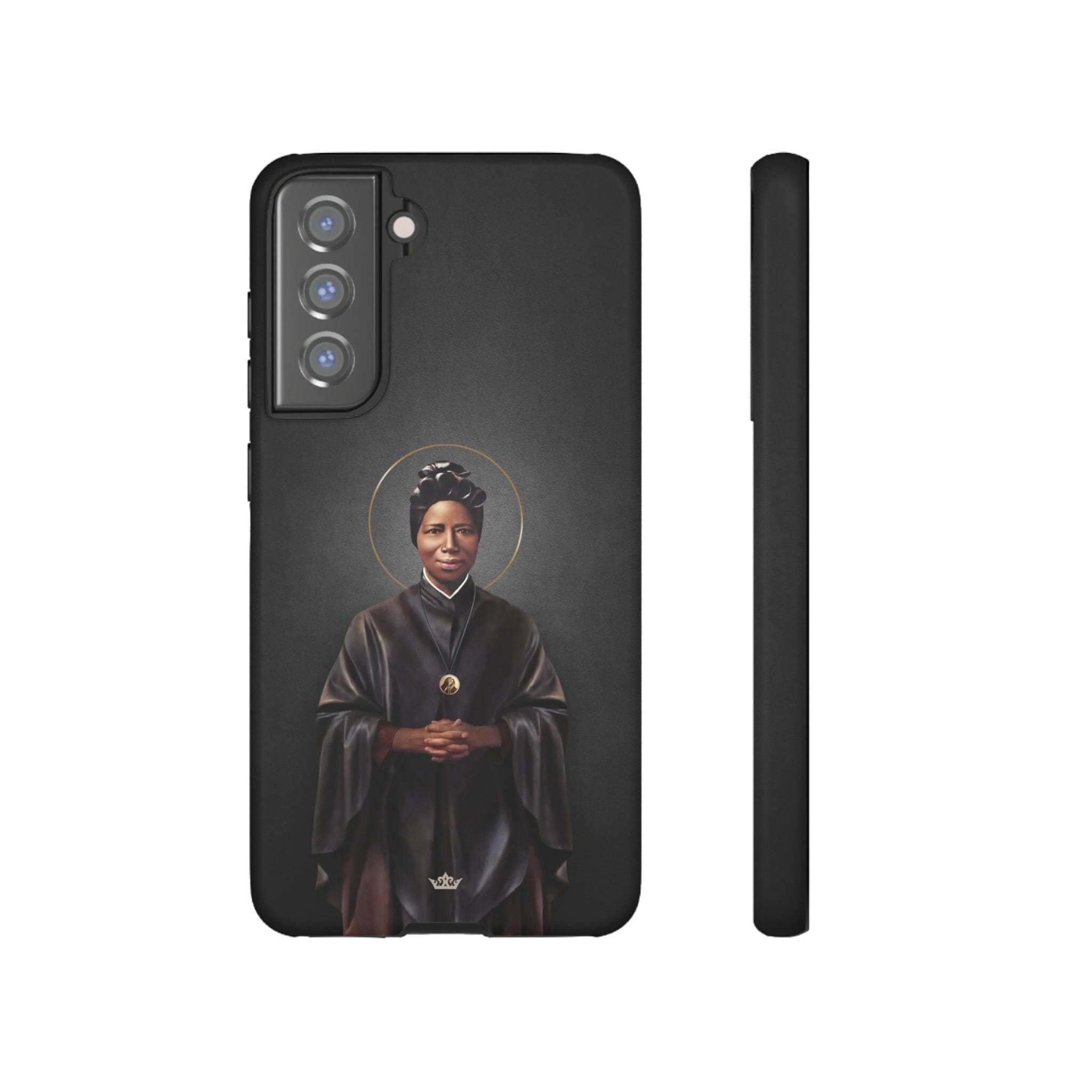
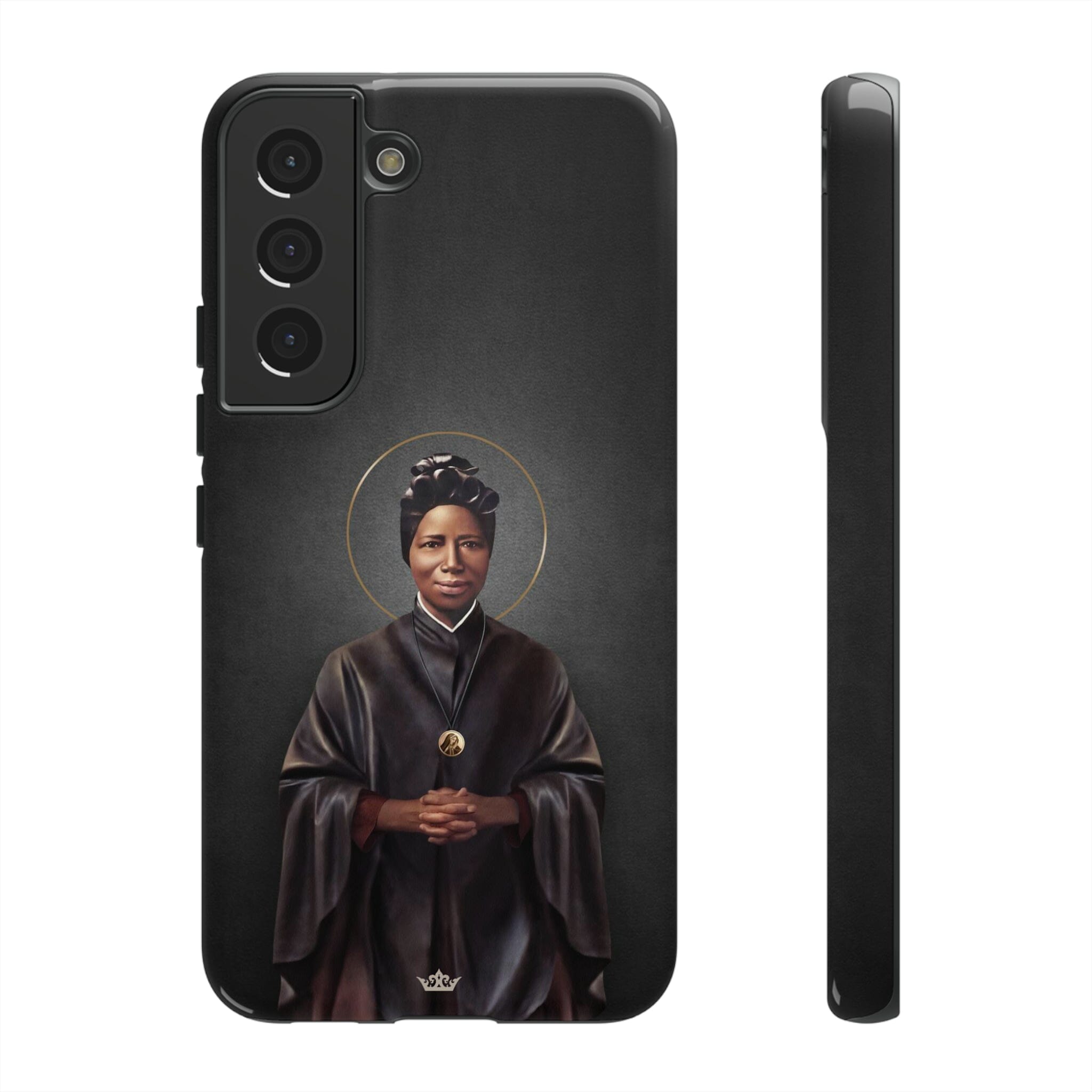
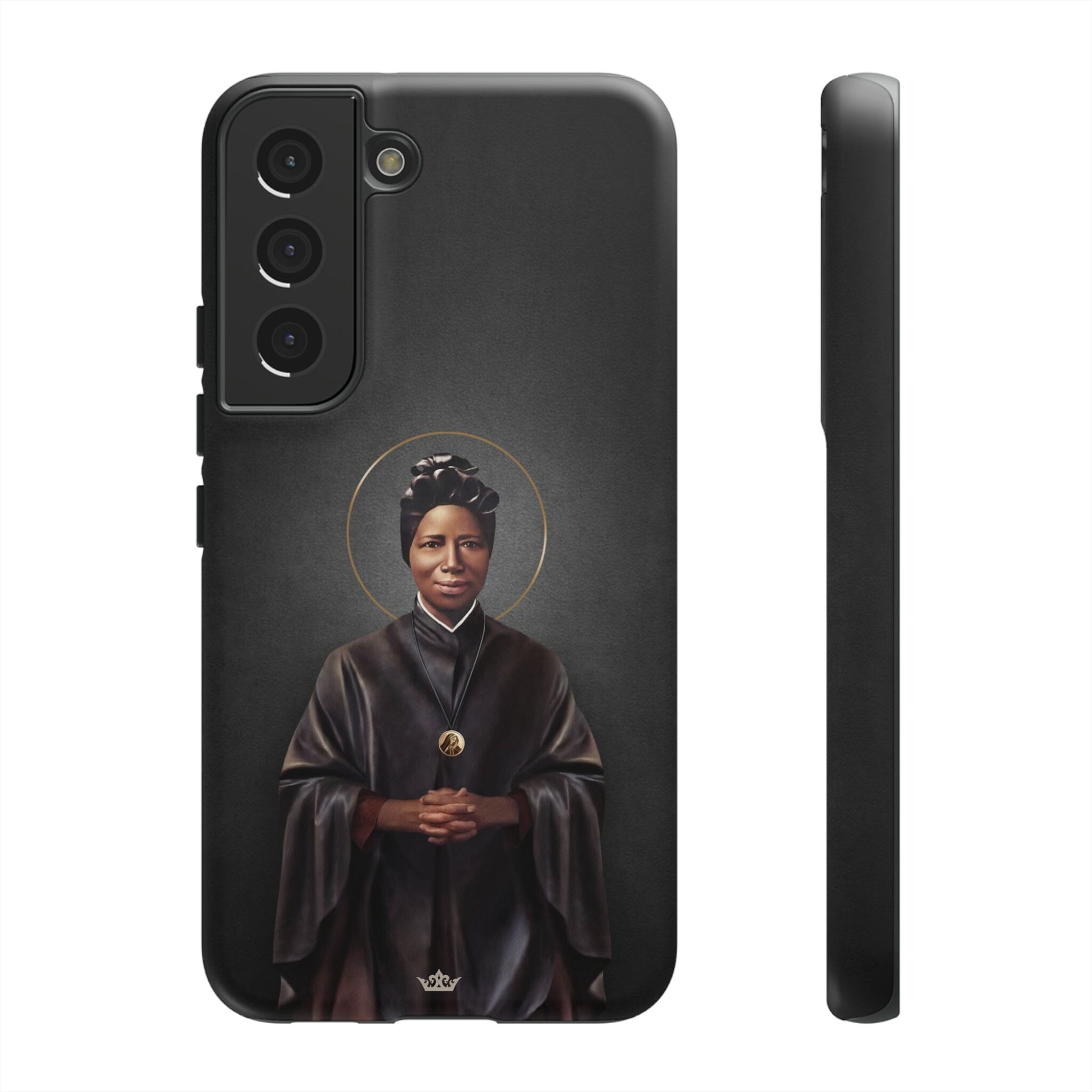
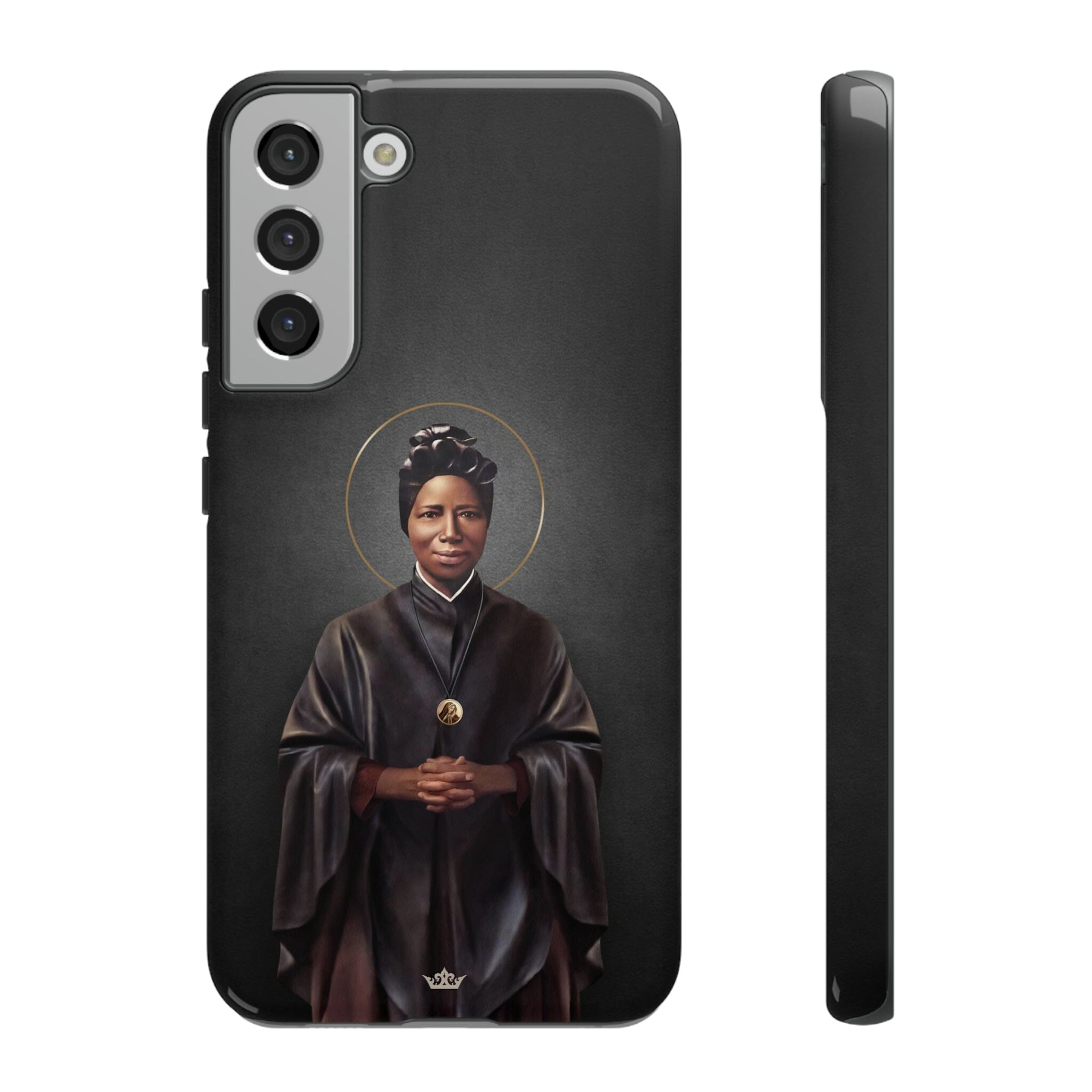
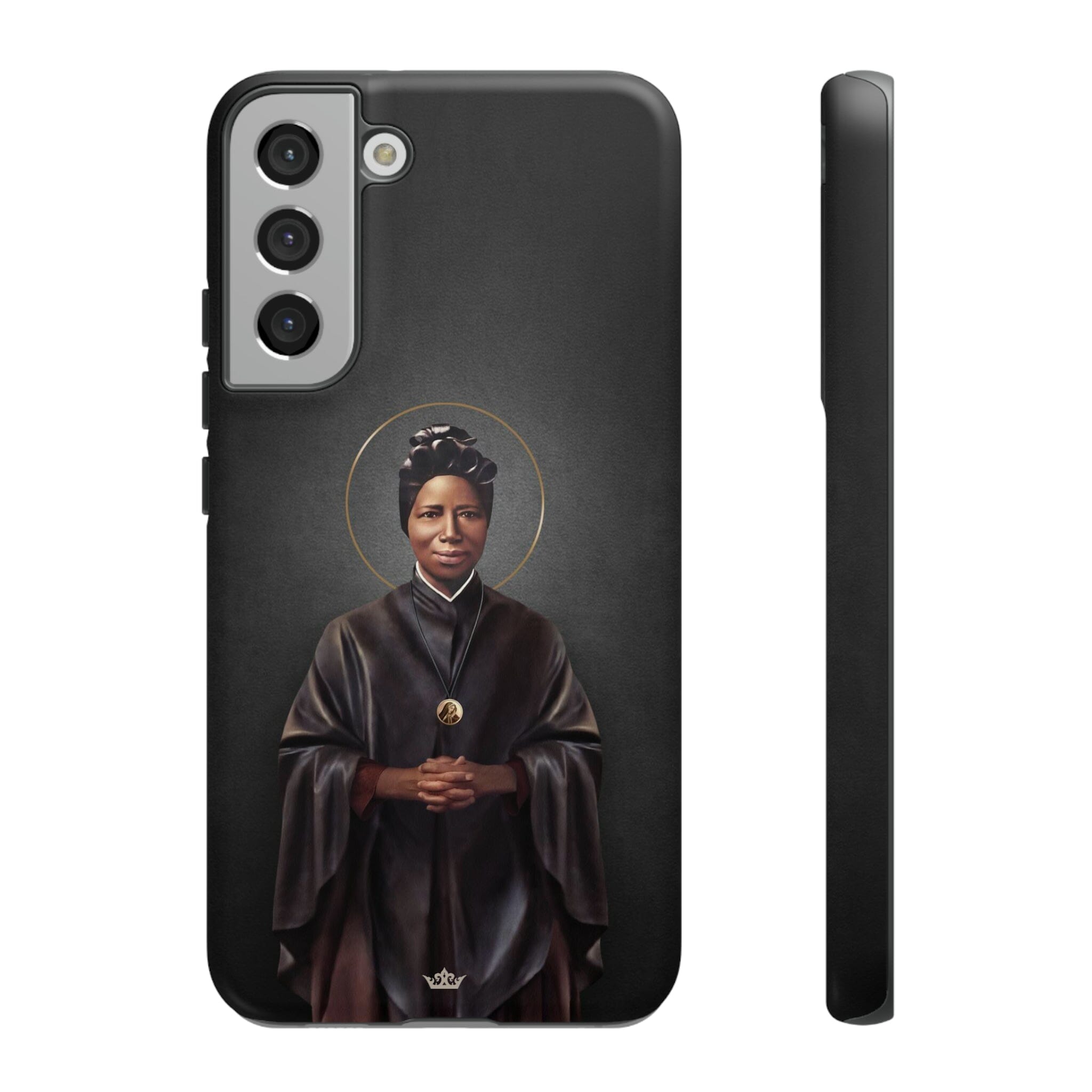
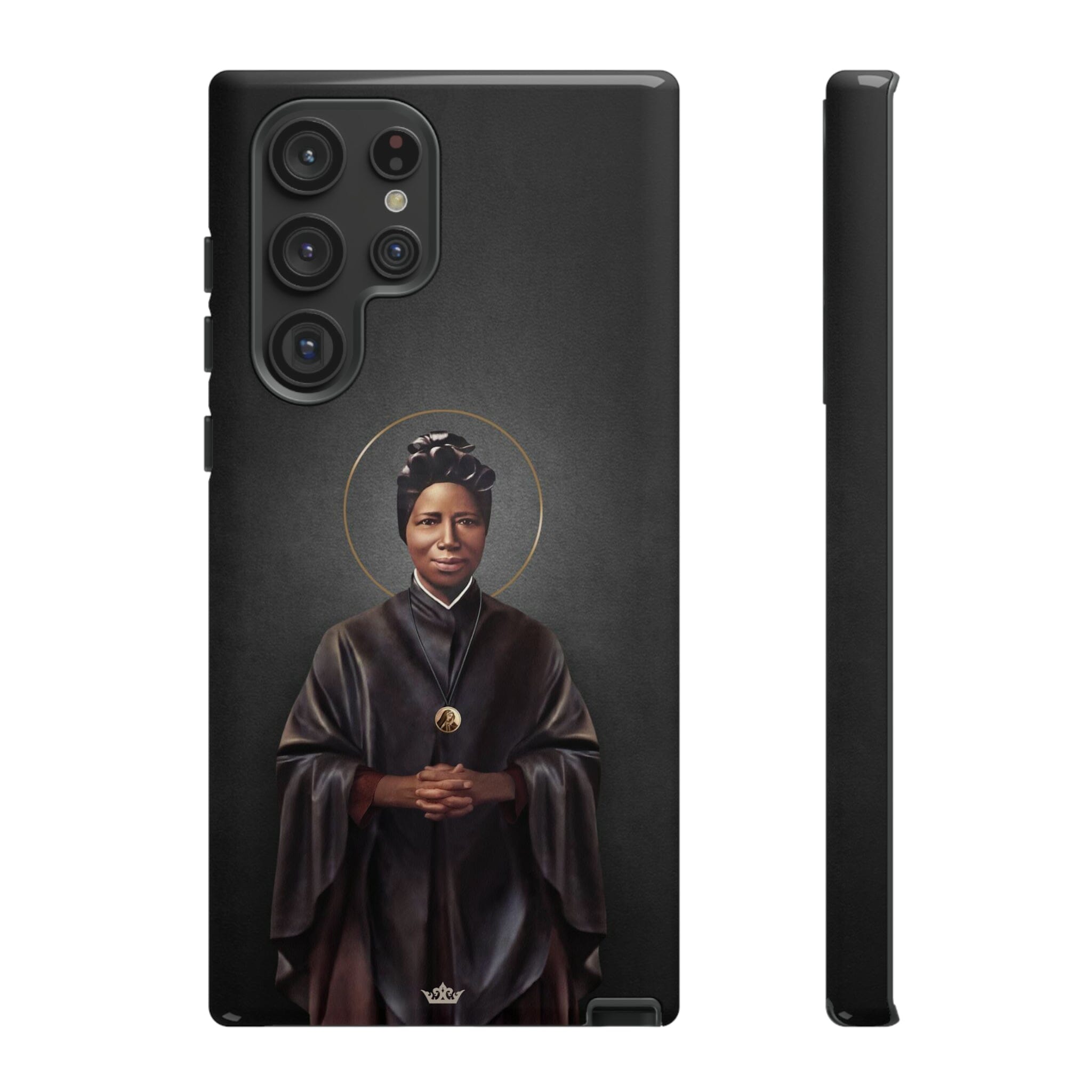
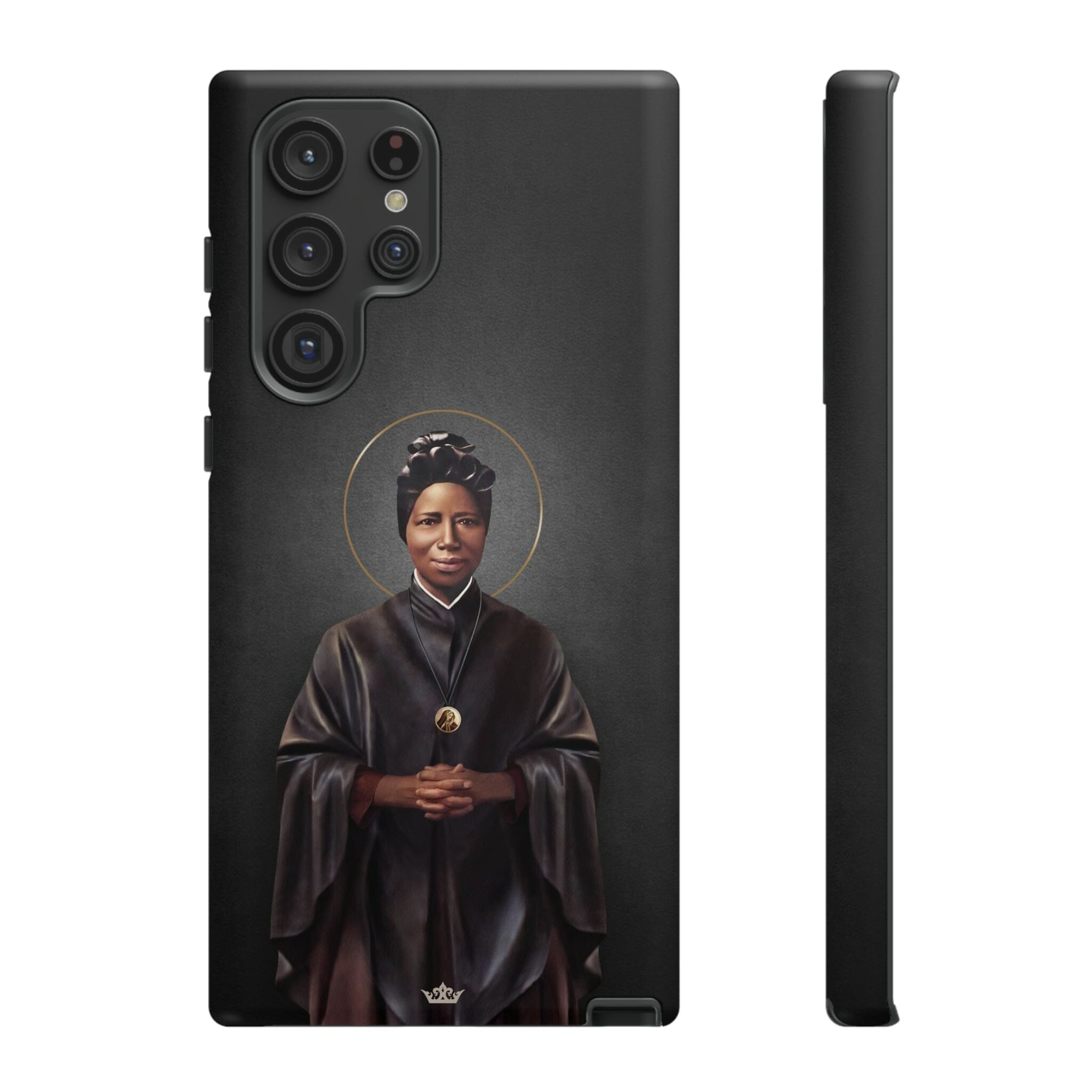
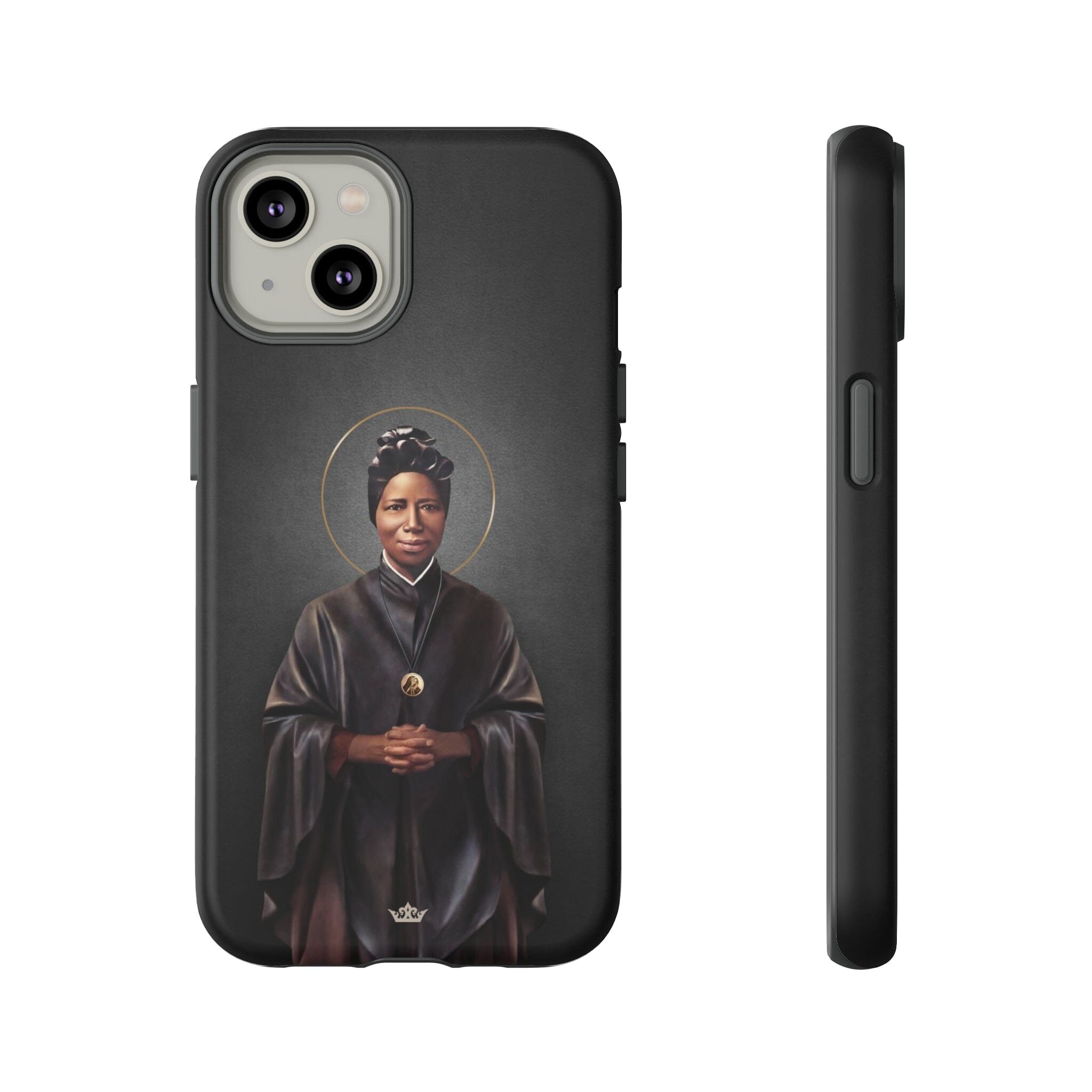
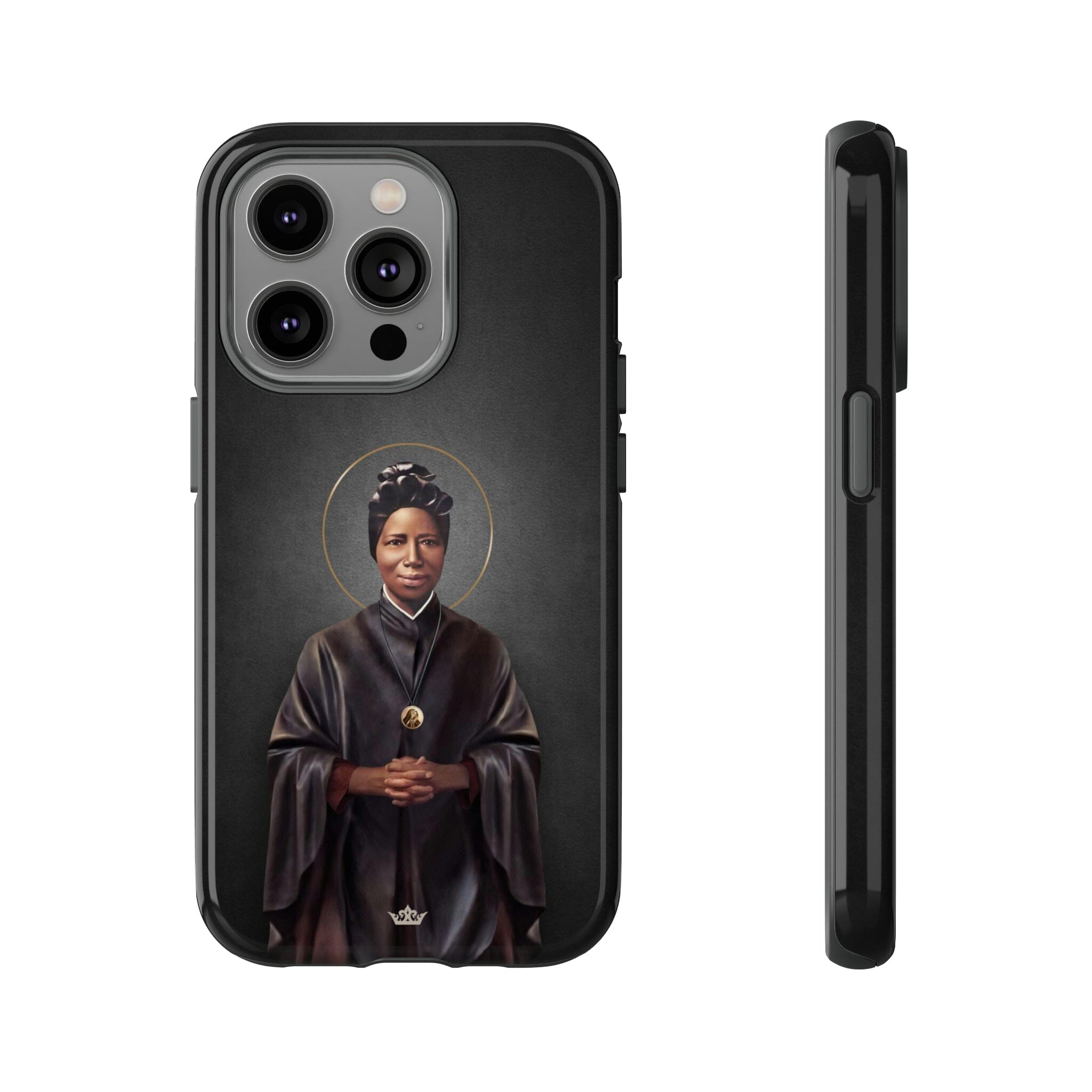
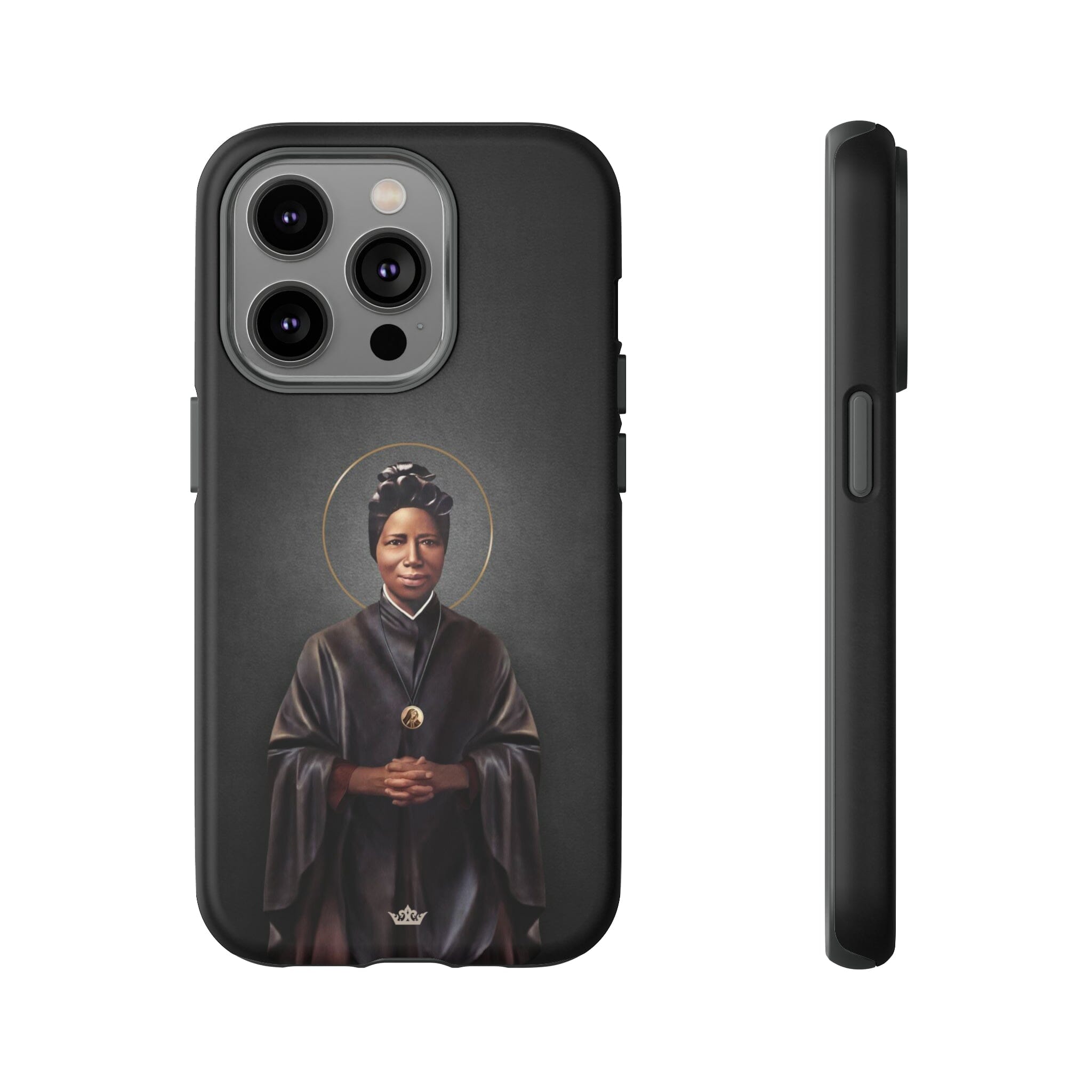
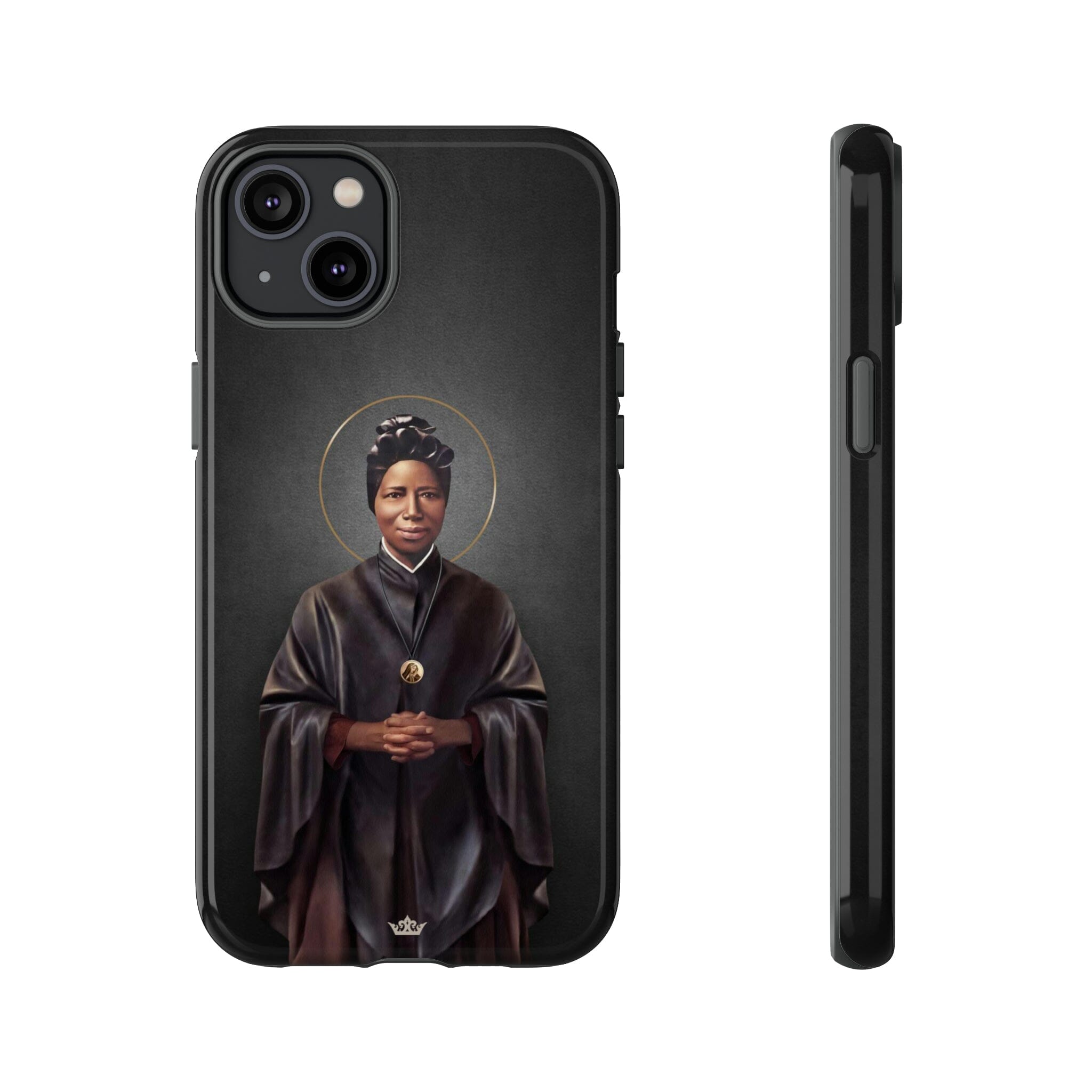
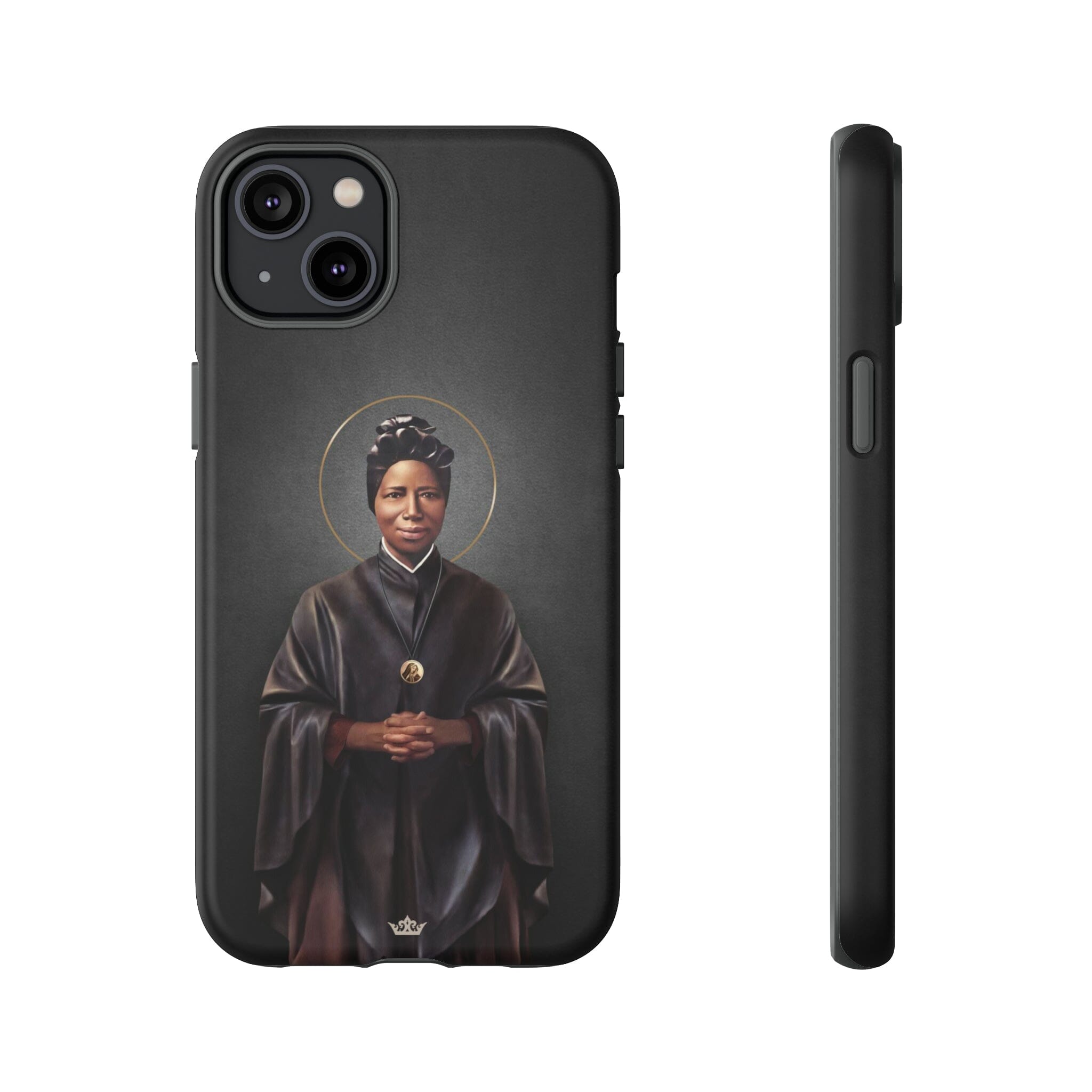
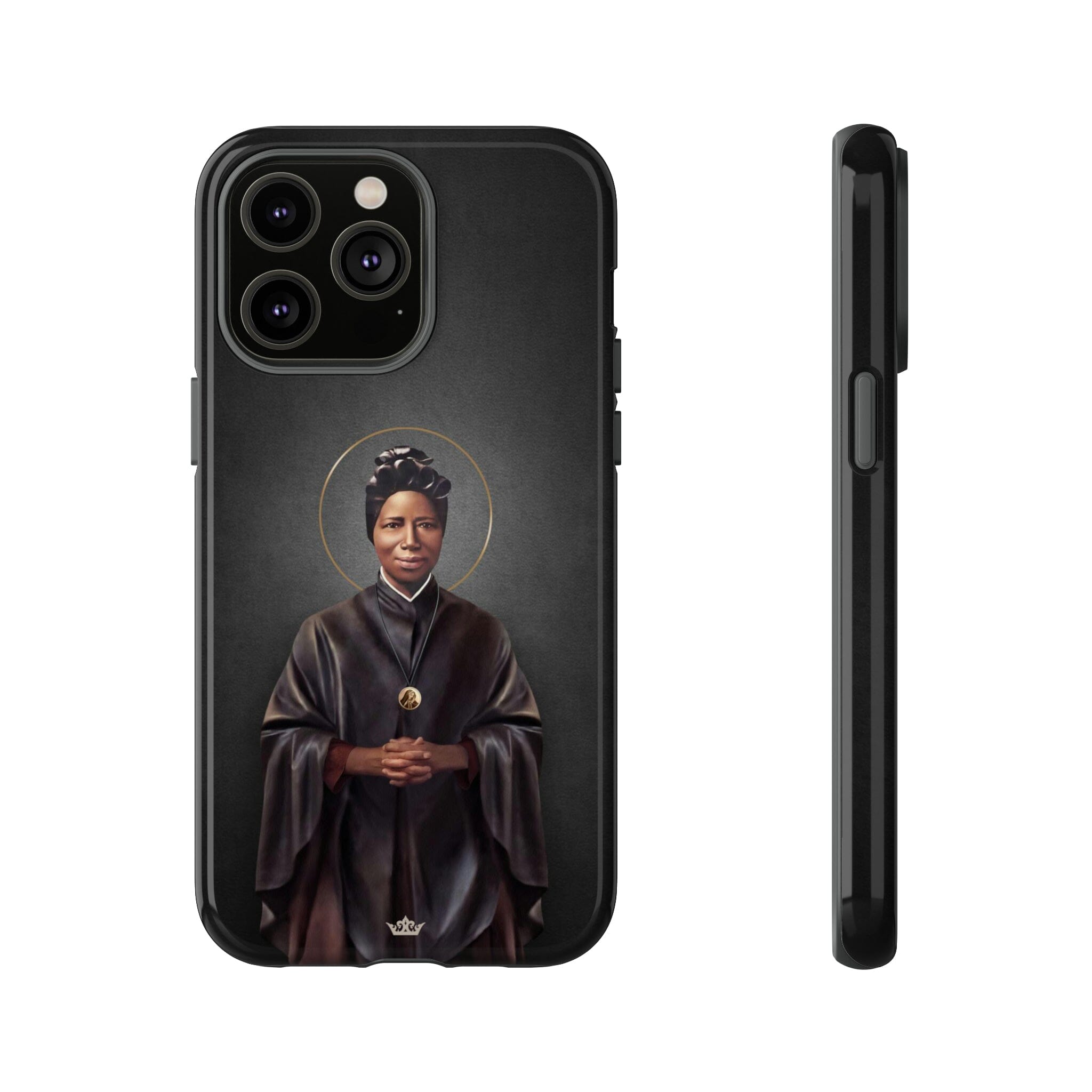
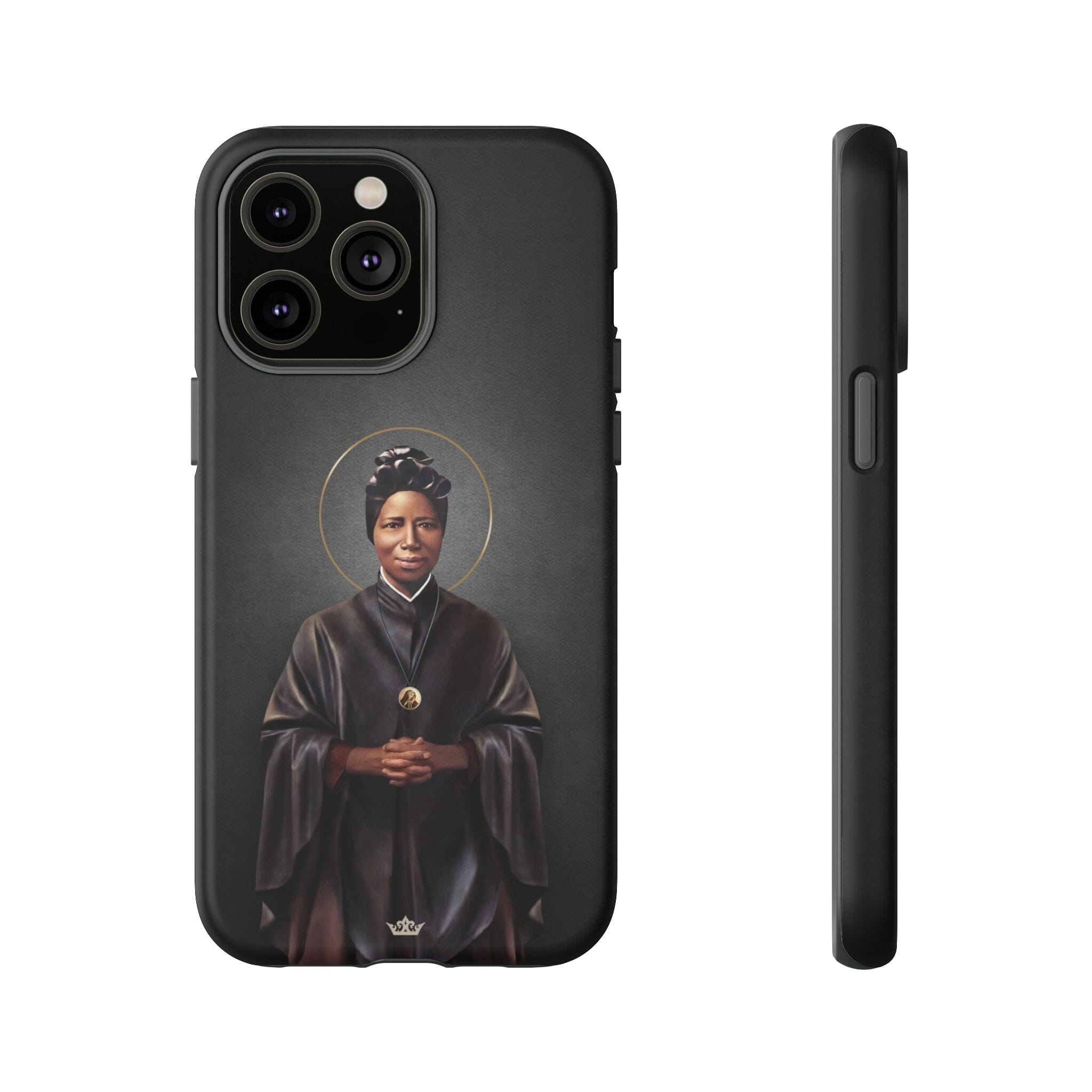
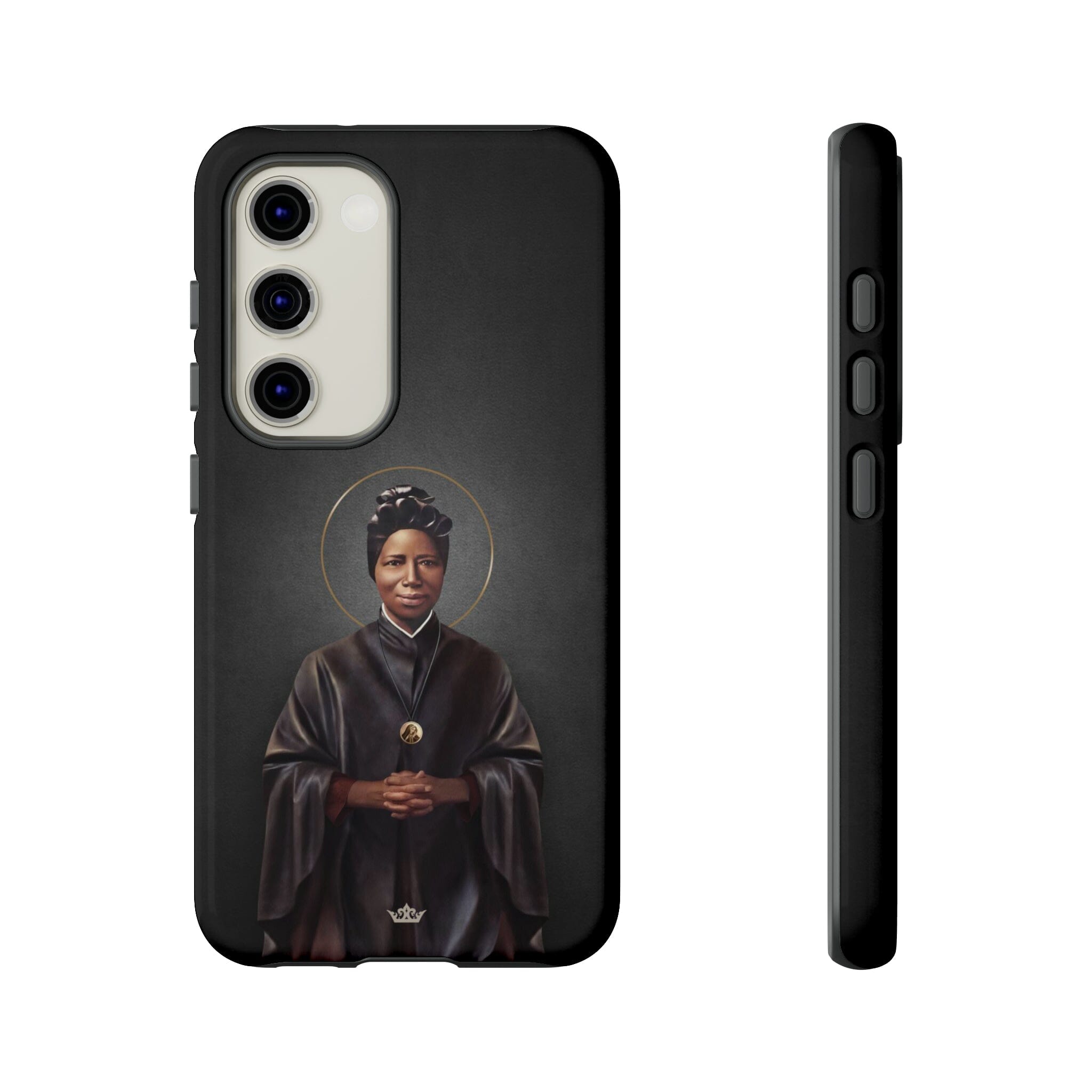
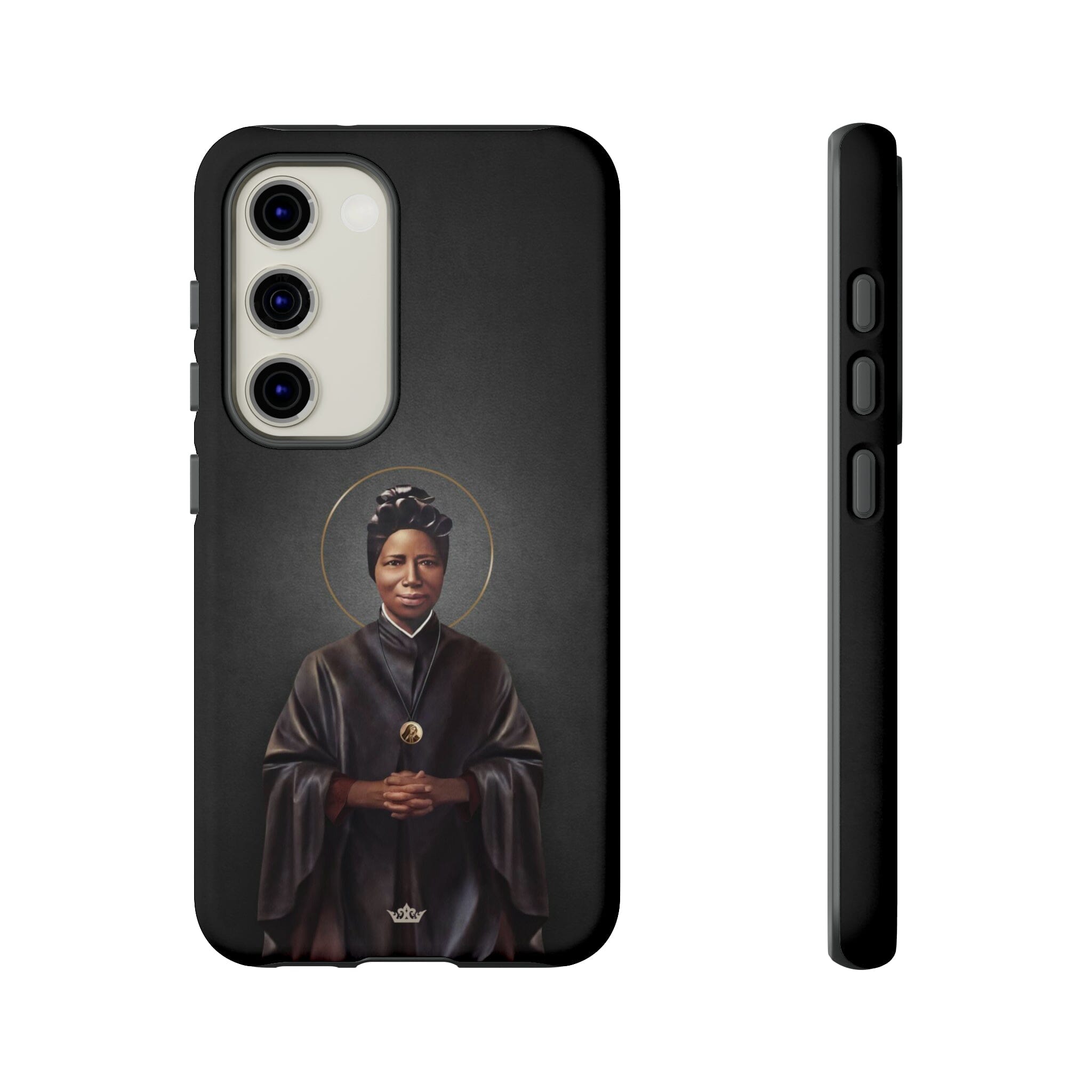
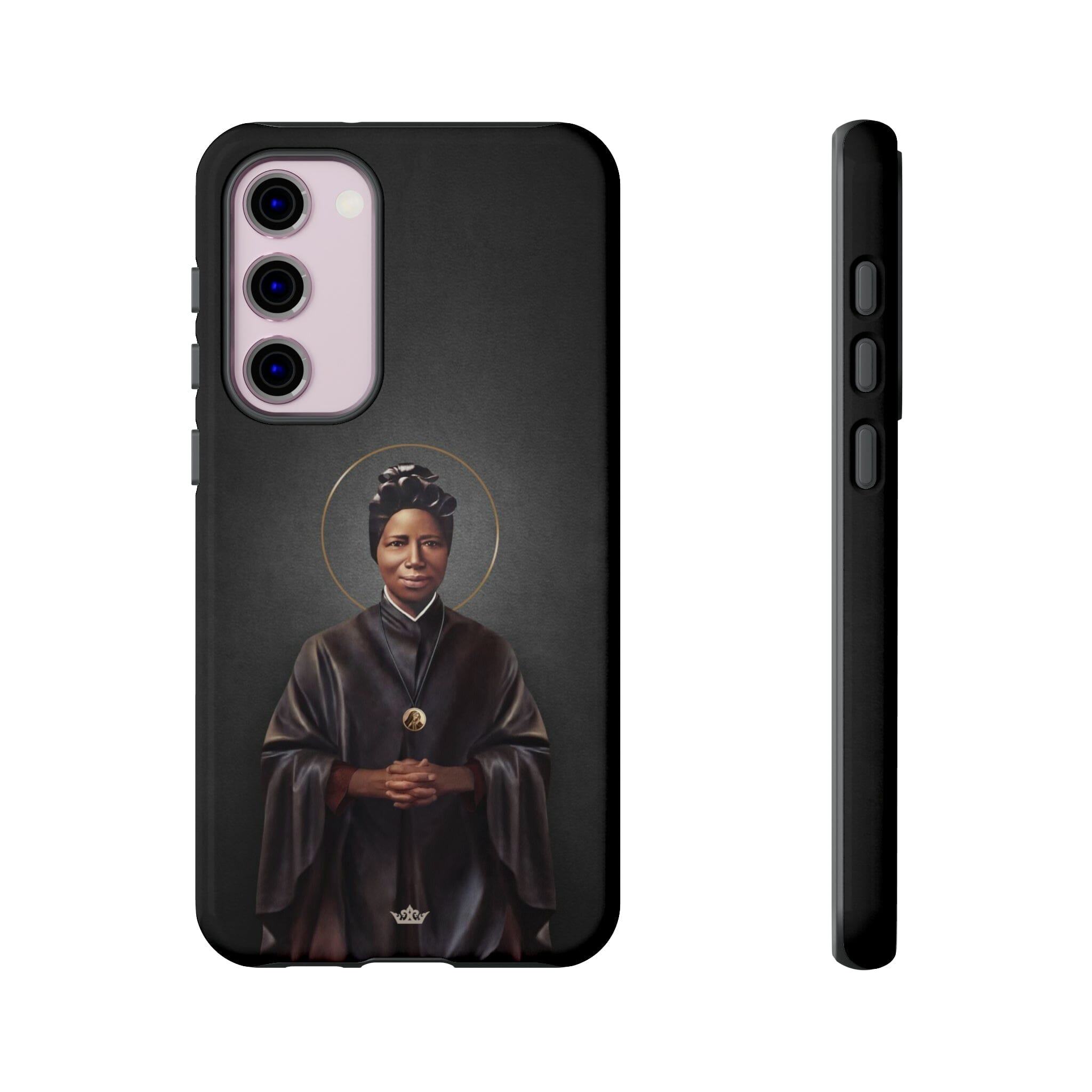
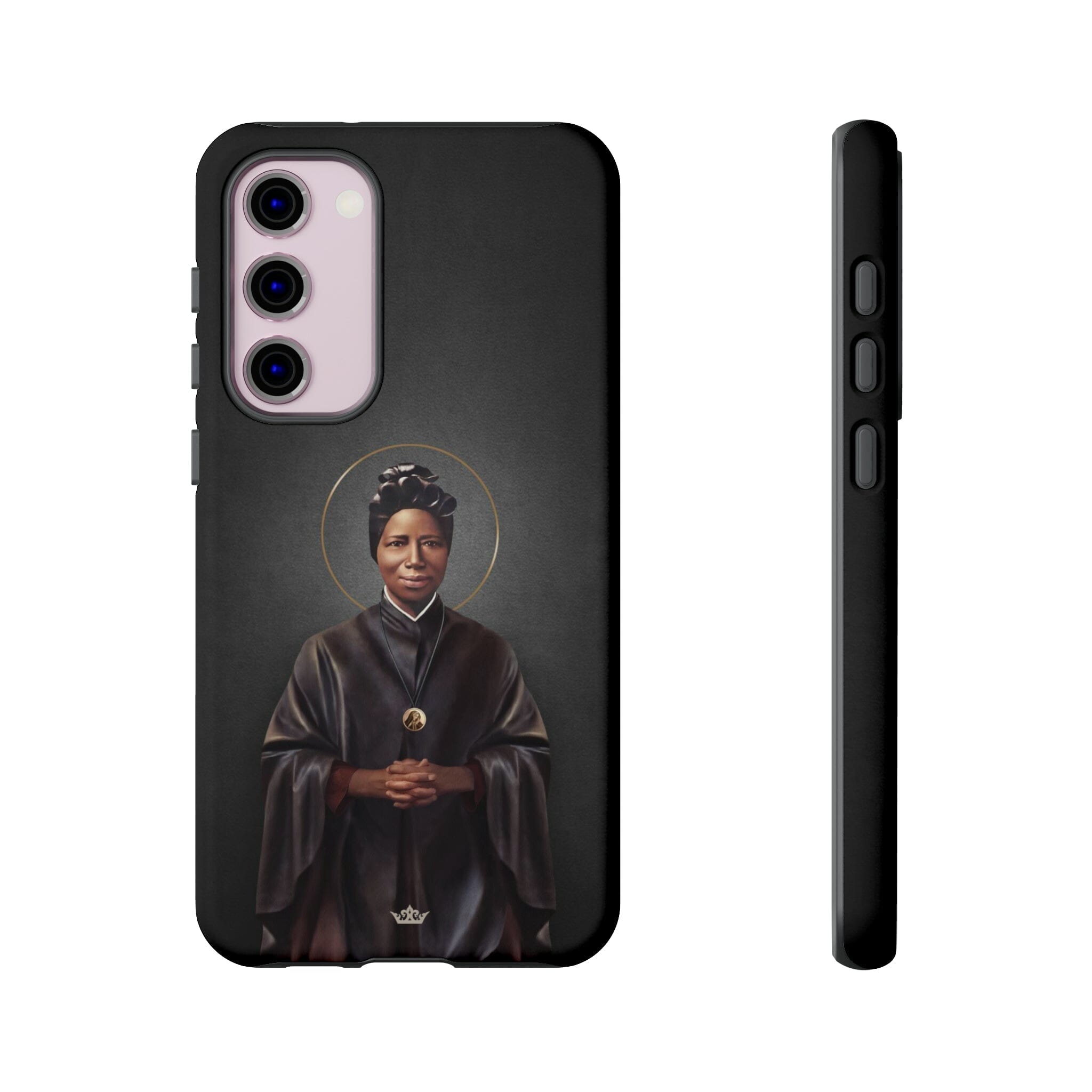
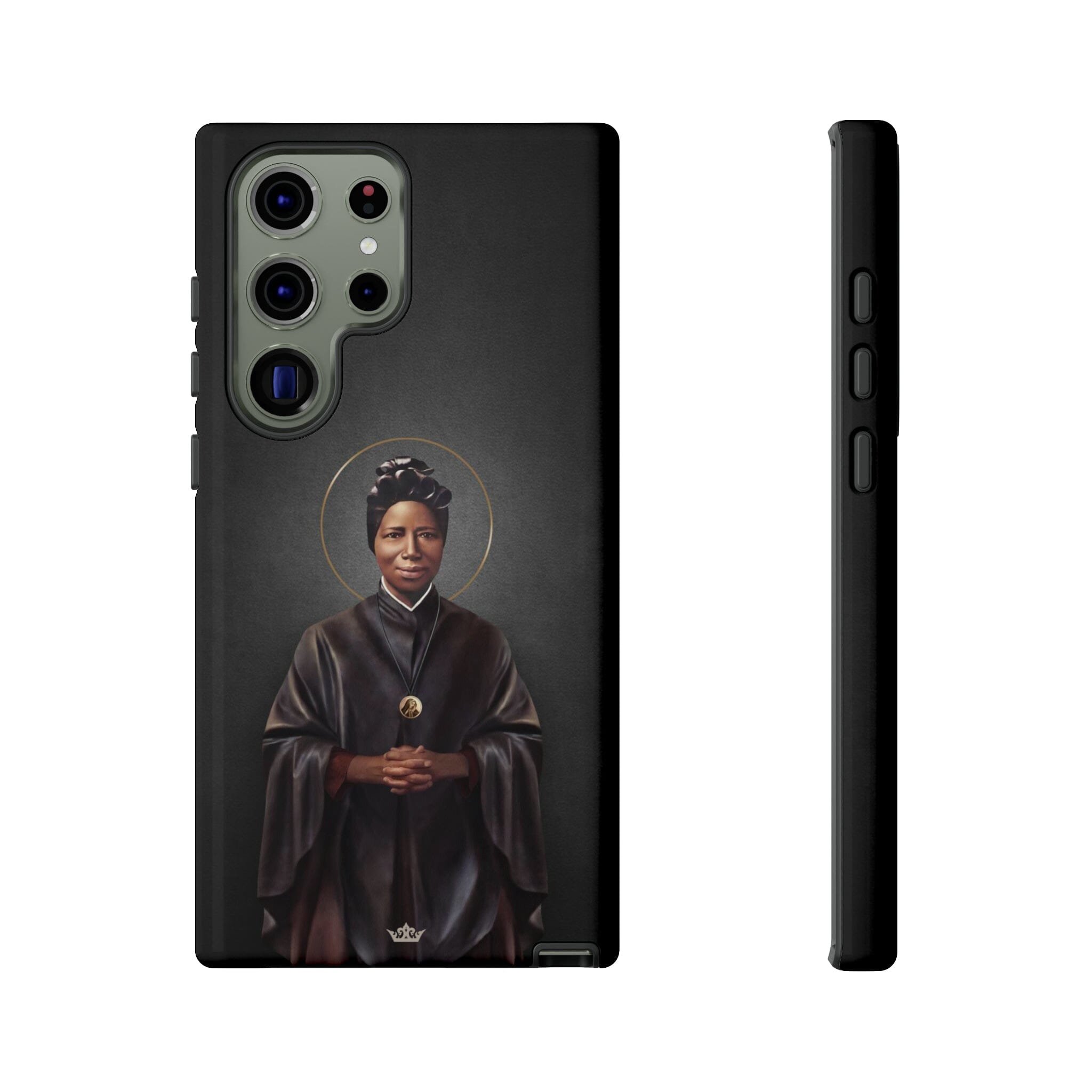

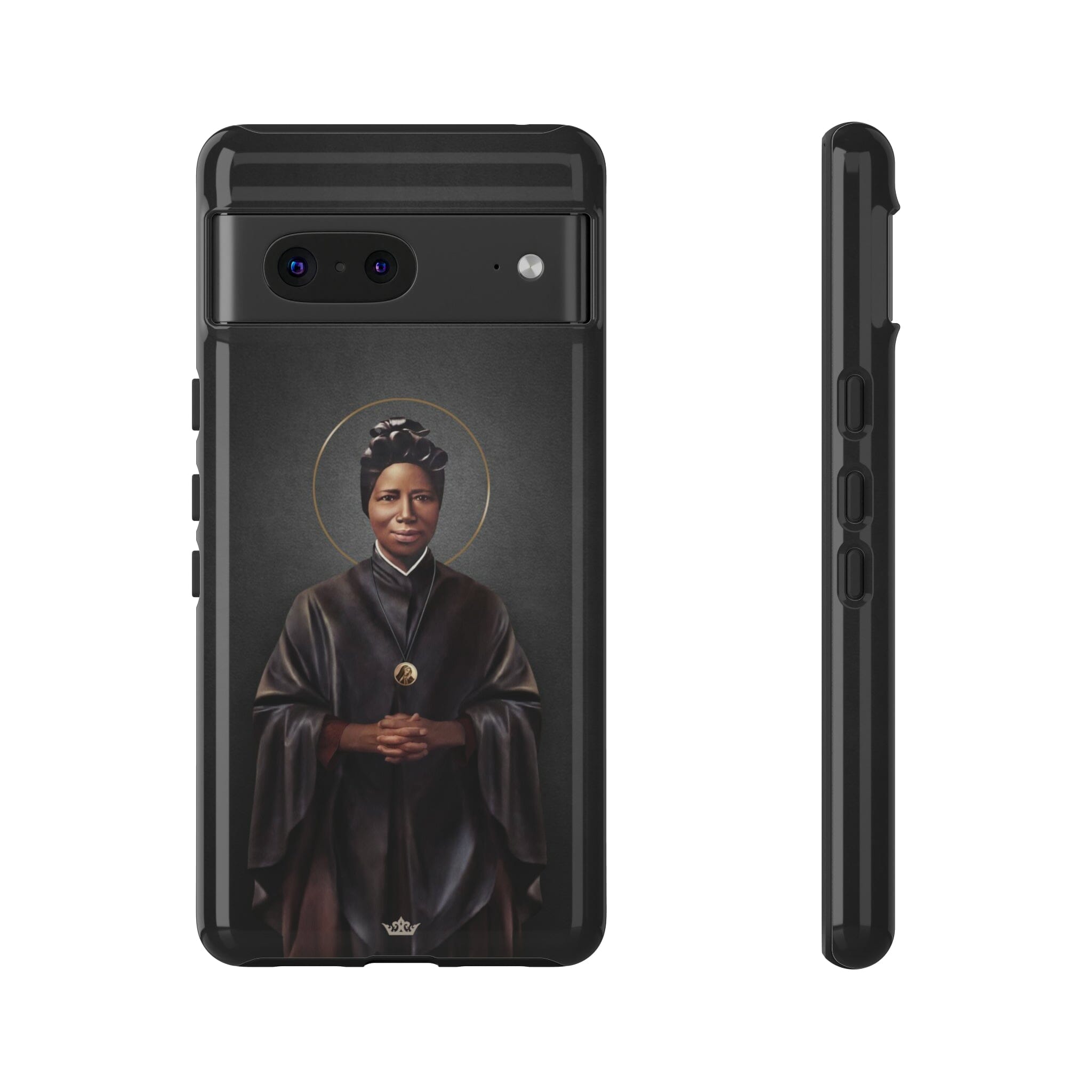
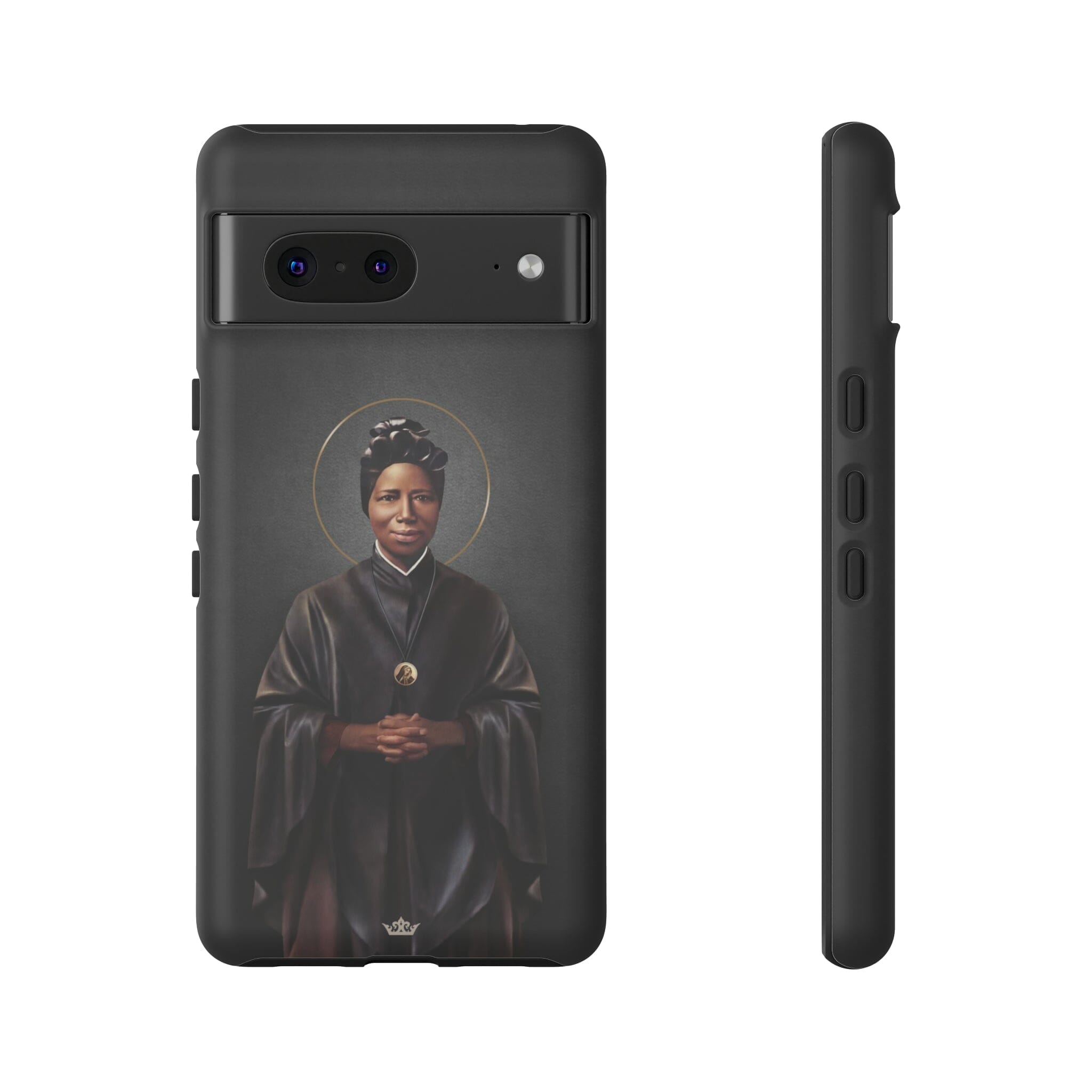
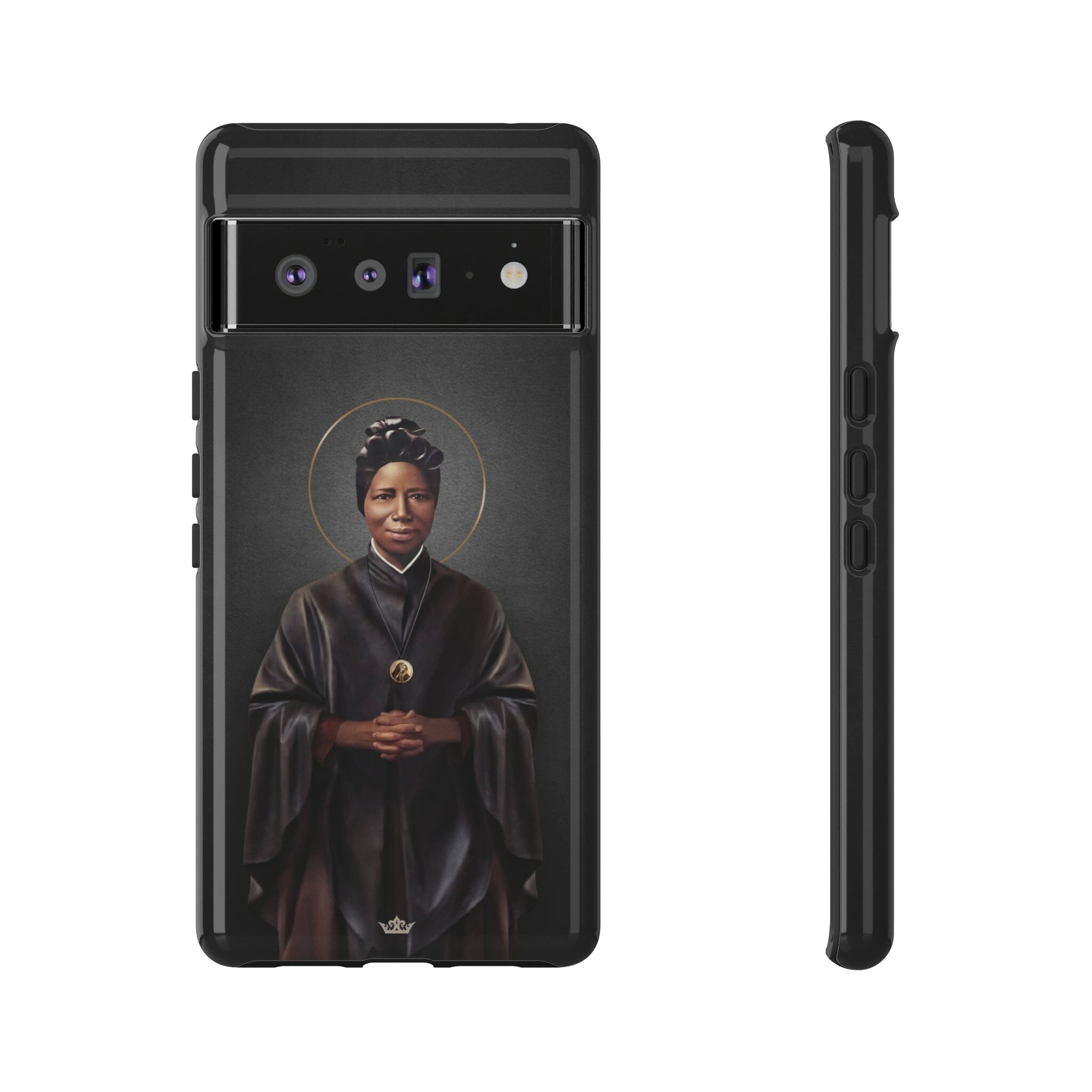
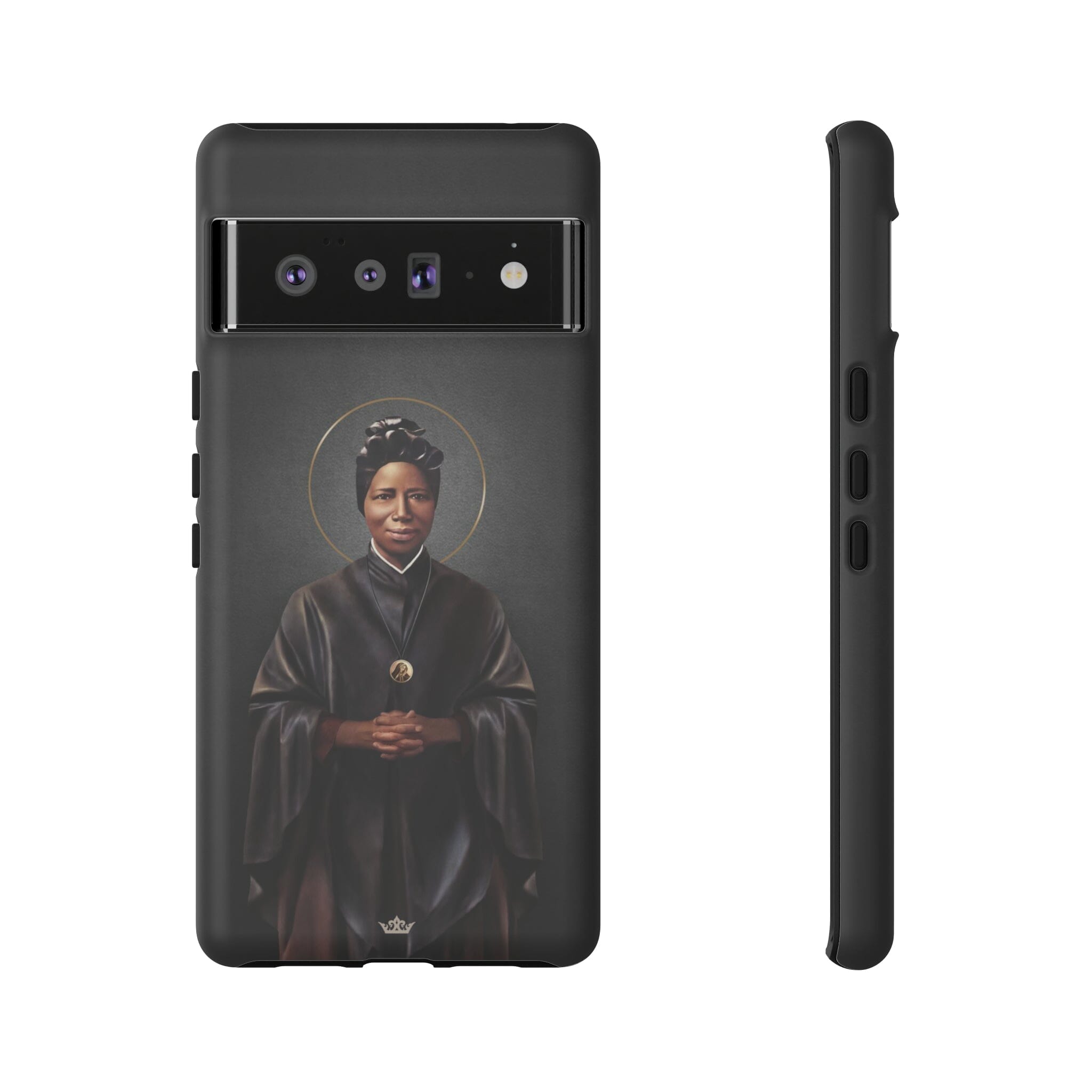
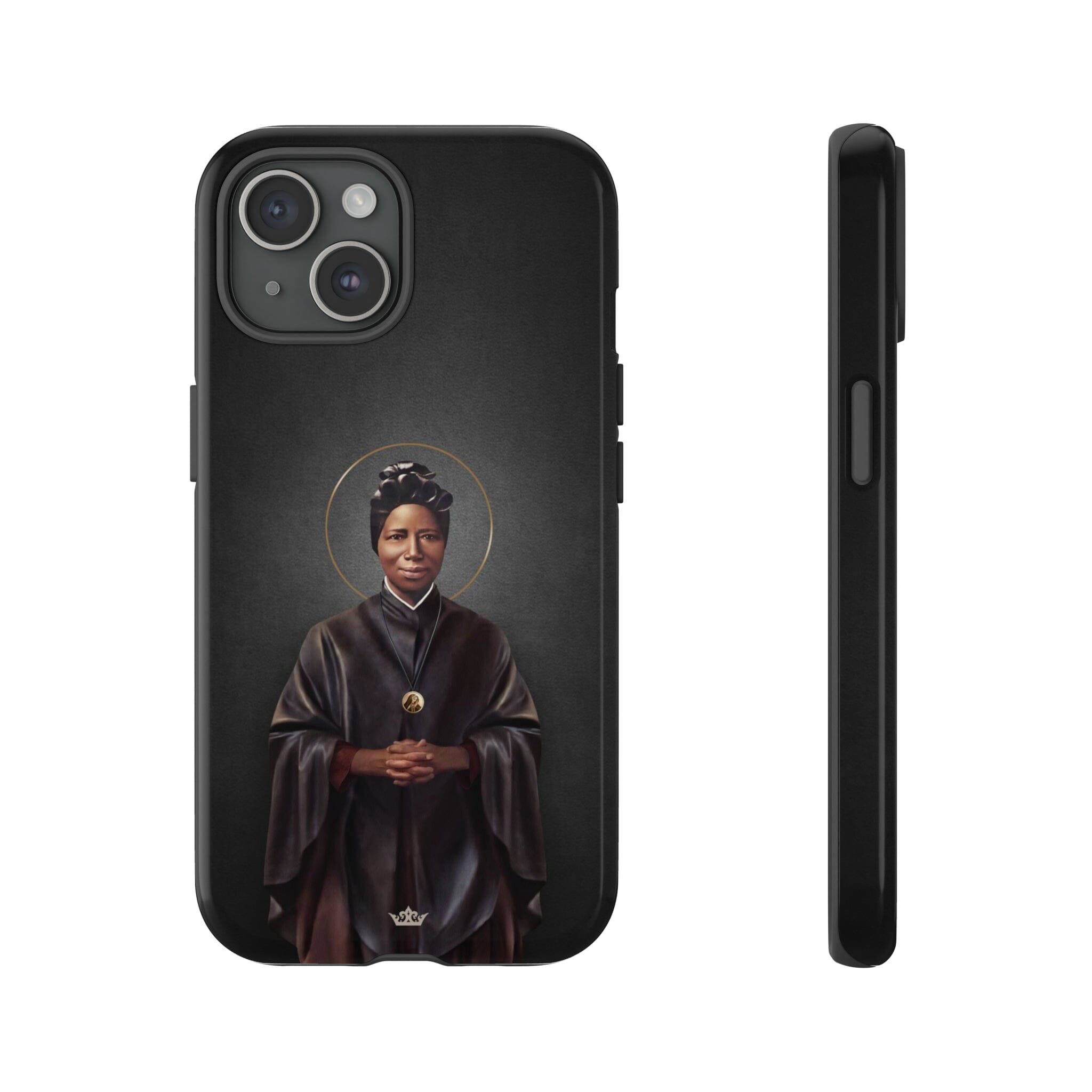
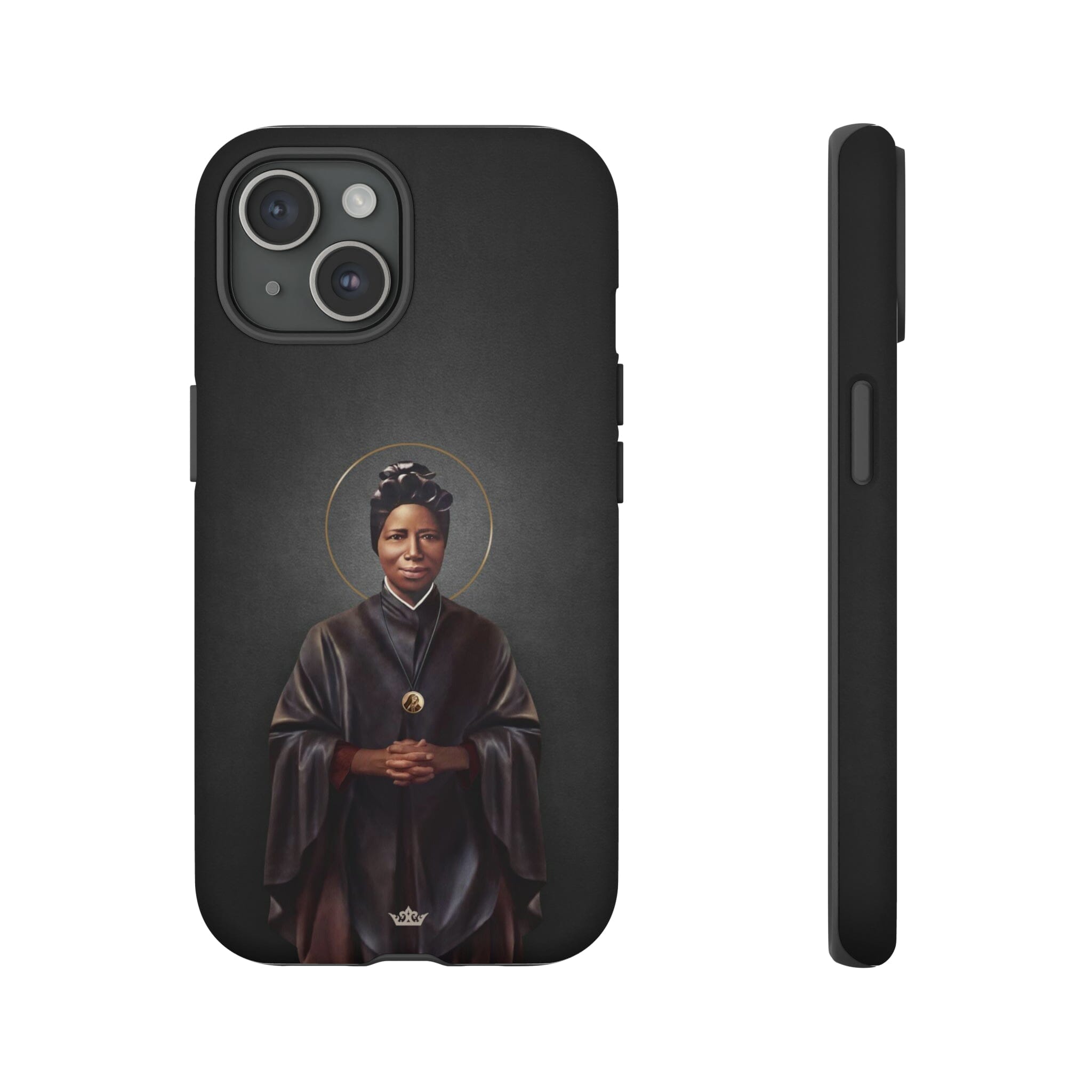
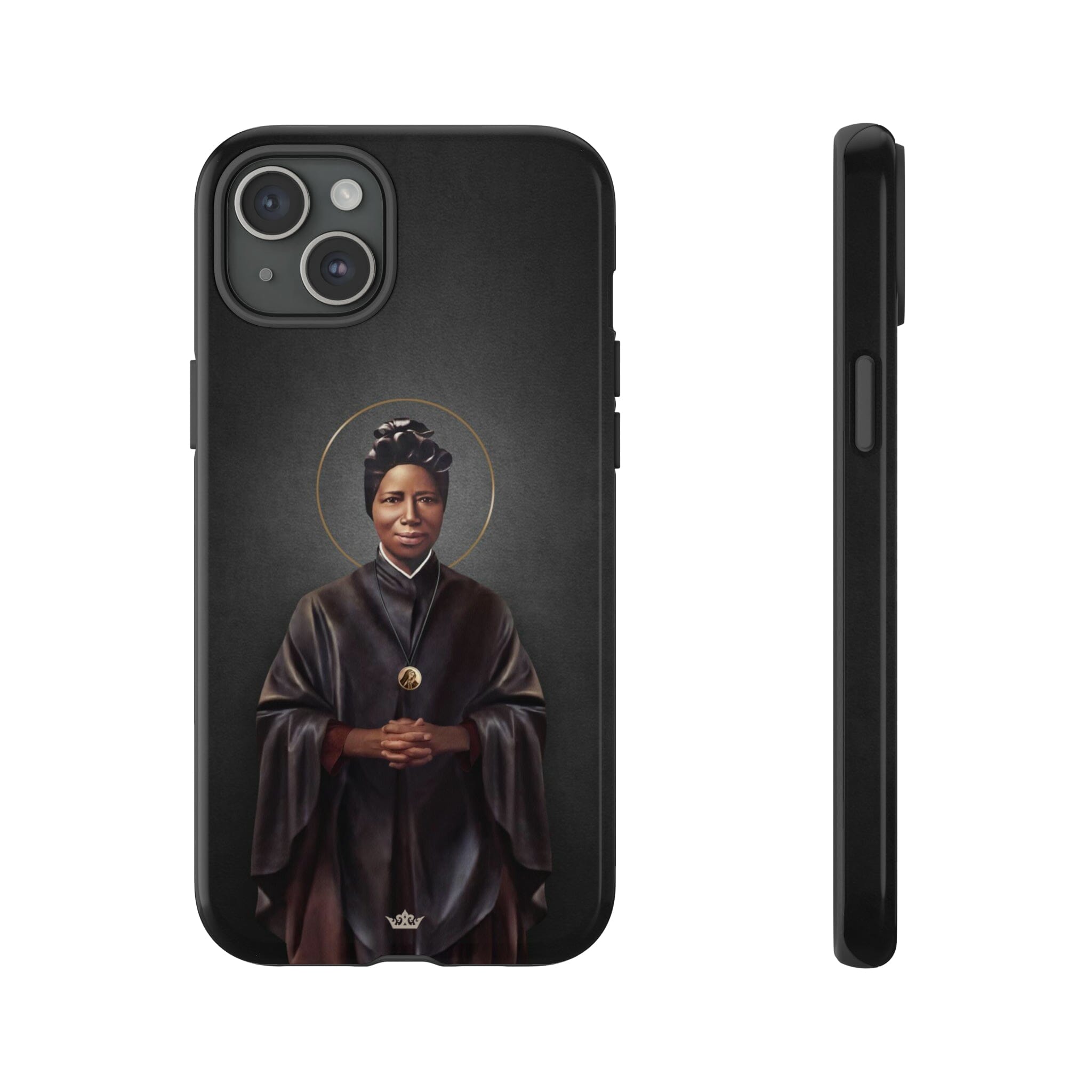
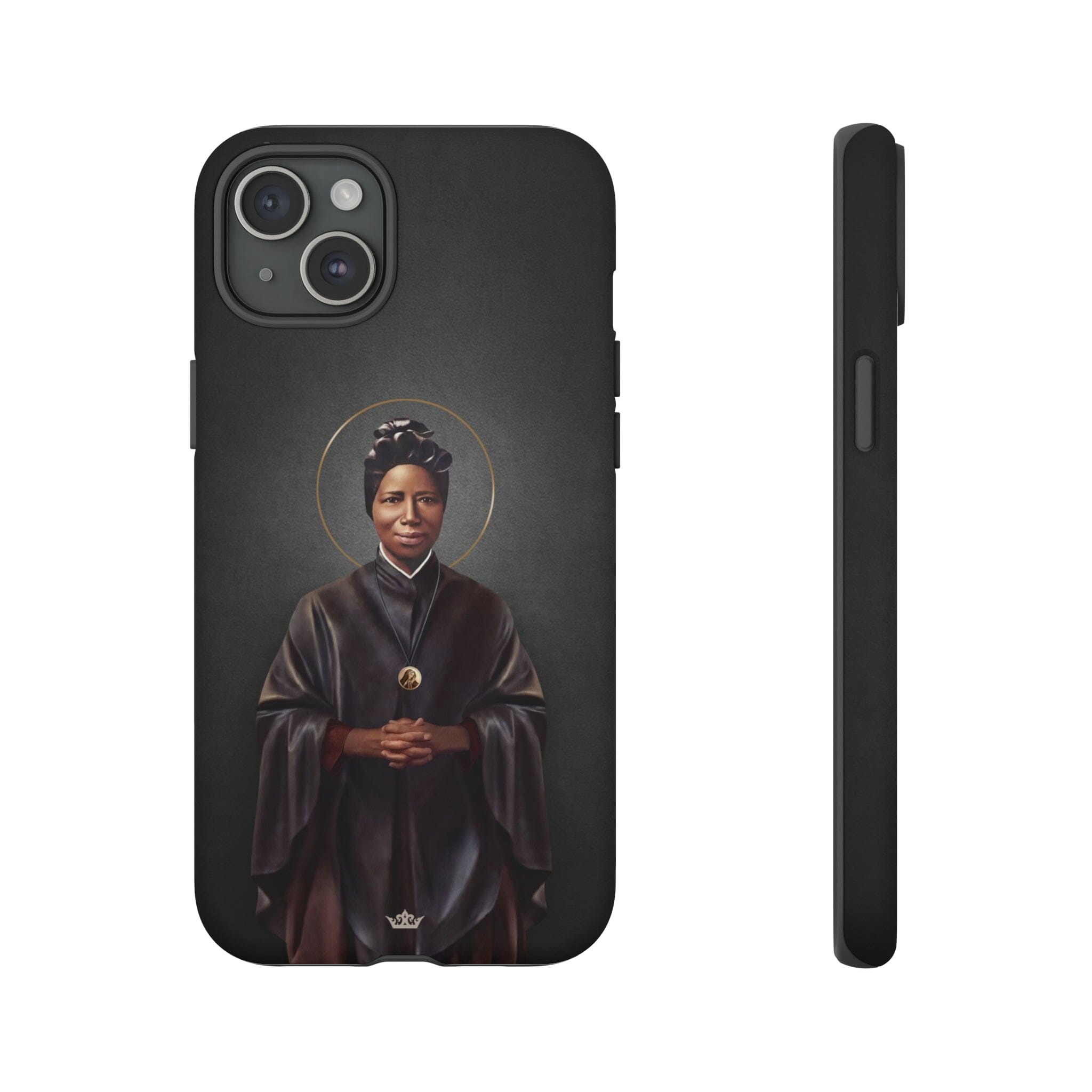
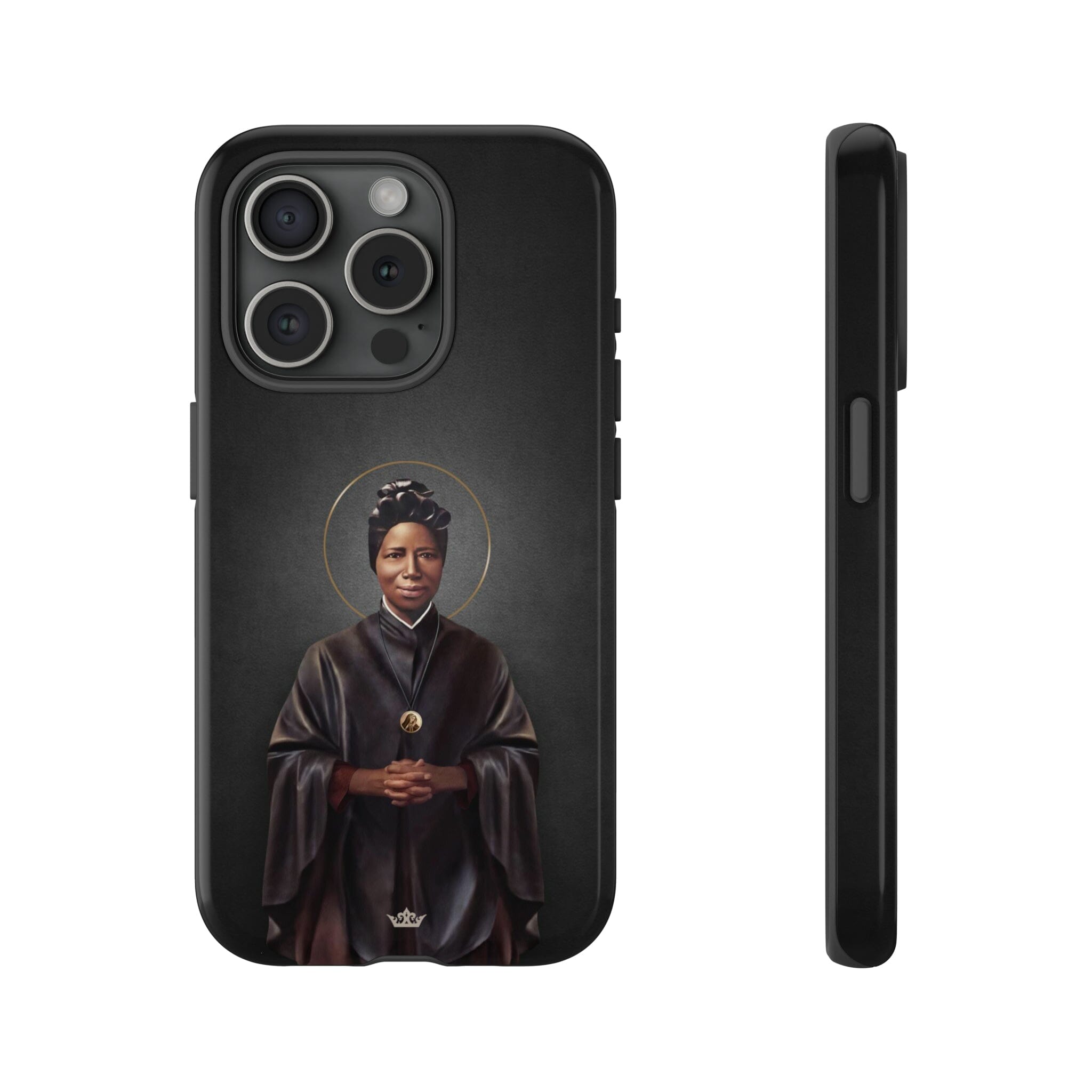
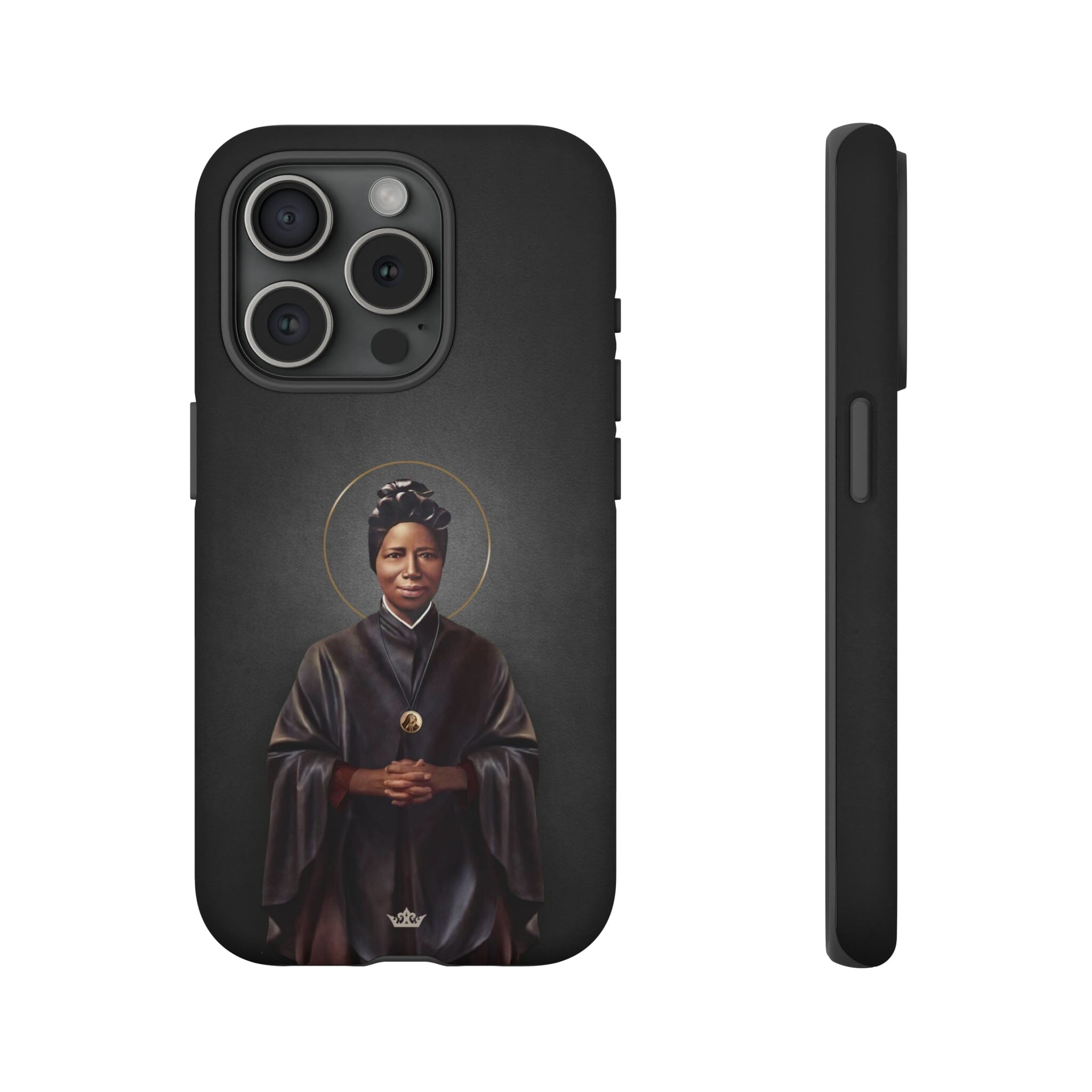
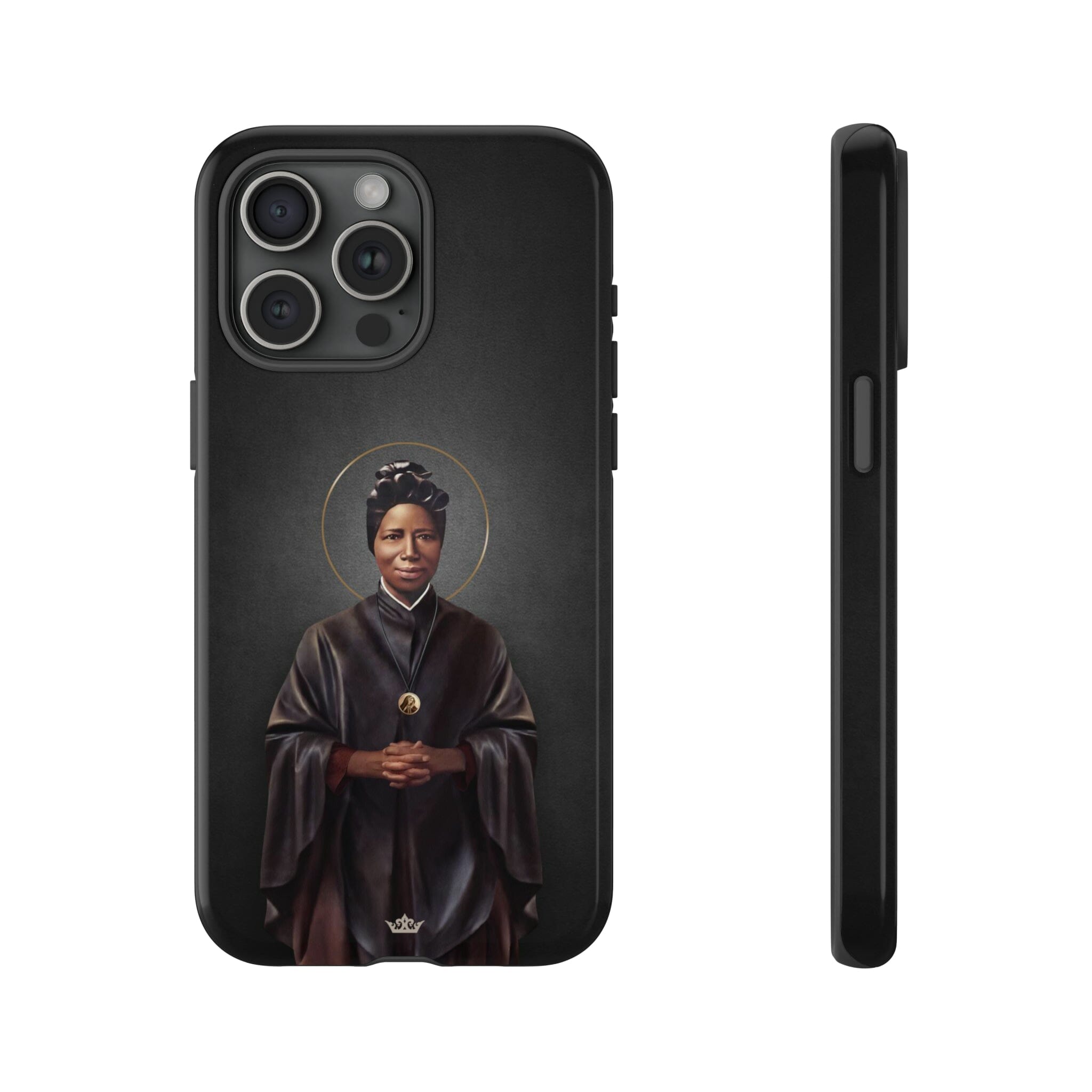
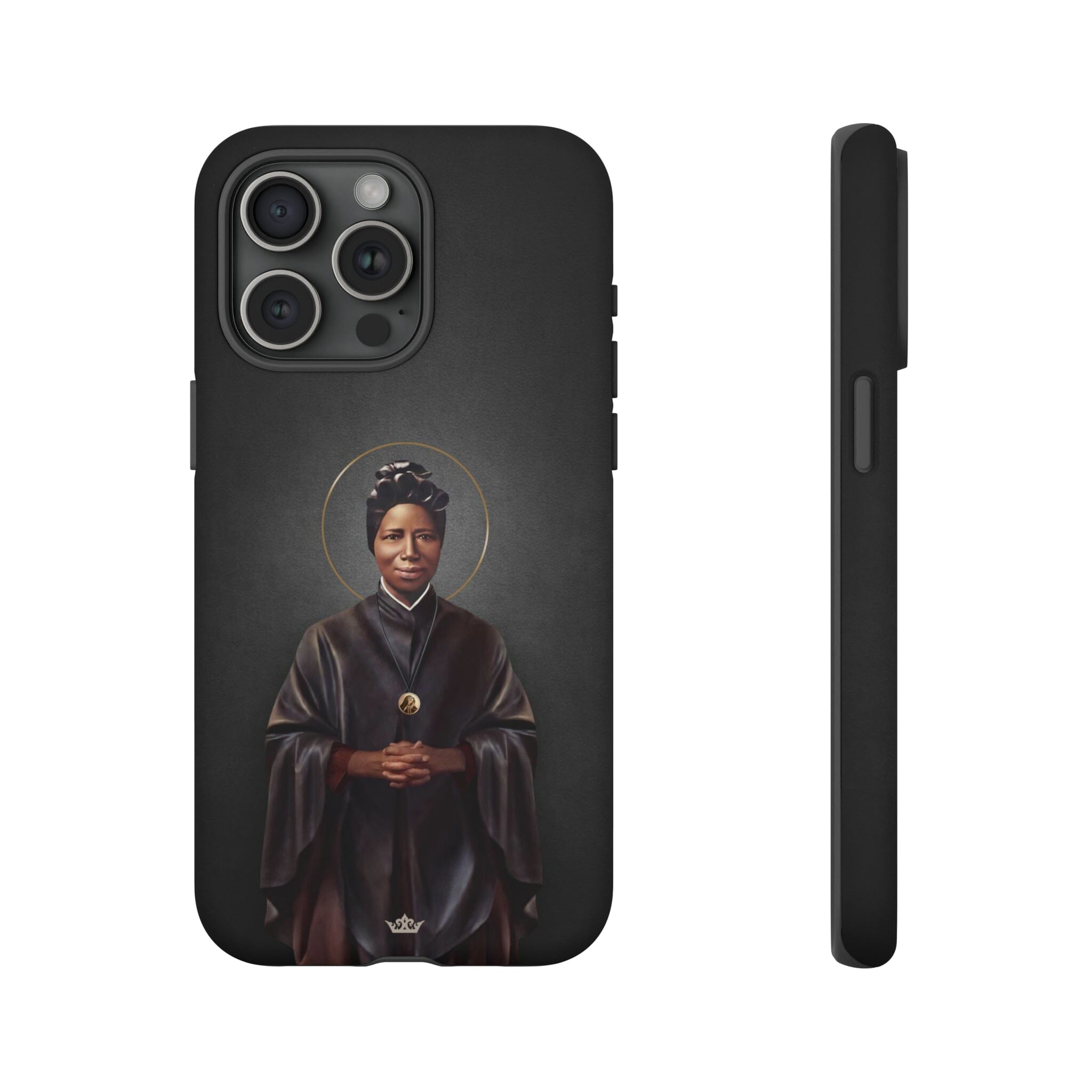
St. Josephine Bakhita Hard Phone Case (Dark)
The St. Josephine Bakhita Hard Phone Case is a premium quality and durable impact resistant hard polycarbonate phone case with an inner thermoplastic polyurethane liner to protect your phone from bumps and drops while maintaining a slim, sleek profile. A beautiful accessory to carry and share your faith or a truly unique gift.
■ Exterior finishes: Glossy or Soft Touch Matte
■ Available for iPhone | Samsung | Google

This is a couture item which is custom made-on-demand. Our couture collections feature exclusive, custom designs with our signature crown somewhere within the design. Not sold in stores and you won’t find this anywhere else. EXCLUSIVELY AT VENXARA.
SHIPPING + DELIVERY
These custom made-on-demand Hard Phone Cases ship world-wide directly from our case-makers in Wisconsin, USA. Destination tracking is available for most countries. A tracking number will be emailed to you once your order has shipped.
Production Time: 3-6 days
Ship Time: 3-12 days
Please Note: During peak shopping seasons, production and ship time may take a little longer than normal. If you are buying this item as a gift, please order as early as possible. We don't want to disappoint you or the gift recipient with a potentially delayed order.
For countries where tracking numbers are not available, this item should arrive by regular post within 2-4 weeks. Orders that have not arrived within 45 days of order processing are eligible for a free reshipment or a refund.
GLOSSY VS MATTE
These Hard Phone Cases are available in a Glossy or Matte exterior finish. Understanding the differences will hopefully help you in deciding which option to choose.
The Matte Finish is smooth, has very little glare and does not show fingerprints and smudges. It has a luxe look to it but it can be a little slick when carrying or holding.
The Glossy Finish does show fingerprints and smudges and because it's glossy, it has a slight glare. But the gloss finish makes it easier to grip and less likely to slip out of your hand when carrying or holding.
Both are equally durable with a superior print quality. Incredible cases regardless of which finish you choose.
ABOUT THIS SAINT

ST. JOSEPHINE BAKHITA
1869 — 1947
Feast Day February 8
Patron Saint of Sudan, victims of human trafficking and slavery.
Josephine Bakhita was born in a small village in the Darfur region of Sudan. She was kidnapped at age 7 while working in the fields with her family and was sold into slavery. Her captors asked for her name but she was too terrified to remember so they named her “Bakhita” which means “fortunate” in Arabic.
Retrospectively, Bakhita was very fortunate, but the first years of her life do not necessarily attest to it. She was tortured by her various owners who branded her, beat and cut her. In her biography she notes one particularly terrifying moment when one of her masters cut her 114 times and poured salt in her wounds to ensure that the scars remained.
She bore her suffering valiantly even though she did not know Christ or the redemptive nature of suffering. She also had a certain awe for the world and its creator. Bakhita wrote, “Seeing the sun, the moon and the stars, I said to myself: 'Who could be the Master of these beautiful things?' And I felt a great desire to see Him, to know Him and to pay Him homage.”
After being sold a total of five times, Bakhita was purchased by Callisto Legnani, the Italian consul in Khartoum, the capital of Sudan. Two years later, he took Bakhita to Italy to work as a nanny for his colleague, Augusto Michieli. He, in turn, sent Bakhita to accompany his daughter to a school in Venice run by the Canossian Sisters.
Bakhita felt called to learn more about the Church, and was baptized with the name “Josephine Margaret.” In the meantime, Michieli wanted to take Bakhita and his daughter back to Sudan, but Bakhita refused to return.
The disagreement escalated and was taken to the Italian courts where it was ruled that Bakhita could stay in Italy because she was a free woman. Slavery was not recognized in Italy and it had also been illegal in Sudan since before Bakhita had been born.
Bakhita remained in Italy and entered the Institute of Saint Magdalene of Canossa in 1893 and made her profession three years later. In 1902, she was transferred to the city of Schio (northeast of Verona), where she assisted her religious community through cooking, sewing, embroidery, and welcoming visitors at the door. She soon became well loved by the children attending the sisters’ school and the local citizens.
She was known for her smile, gentleness and holiness. She even went on record saying, “If I were to meet the slave-traders who kidnapped me and even those who tortured me, I would kneel and kiss their hands, for if that did not happen, I would not be a Christian and Religious today.”
Josephine Bakhita died at the age of 78 and is the first person to be canonized from Sudan.
Choose options





























































































